(P)RESIDENT / Inhabiting the state
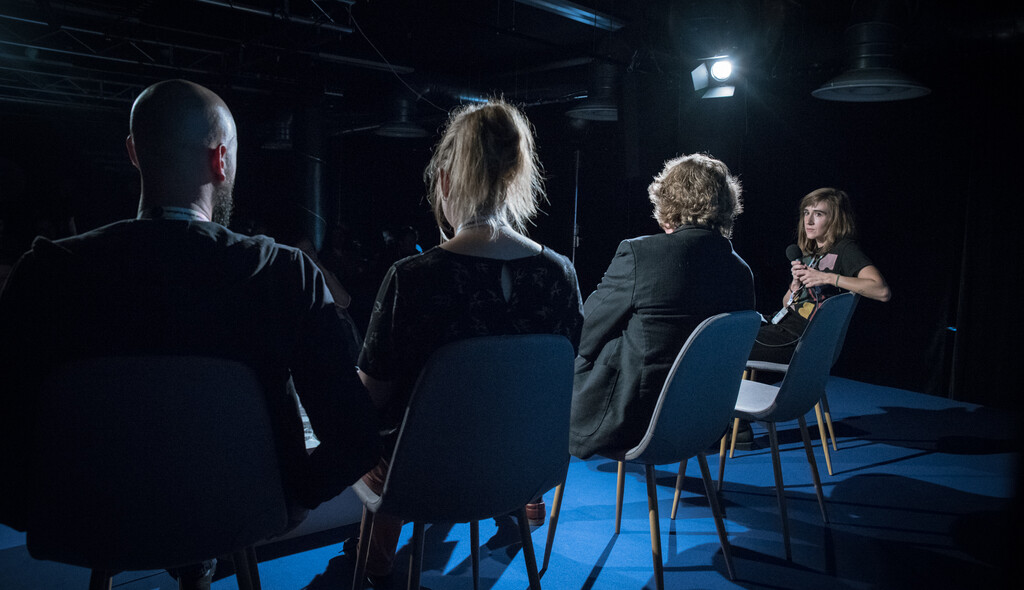
© Anna Šolcová for Ji.hlava IDFF
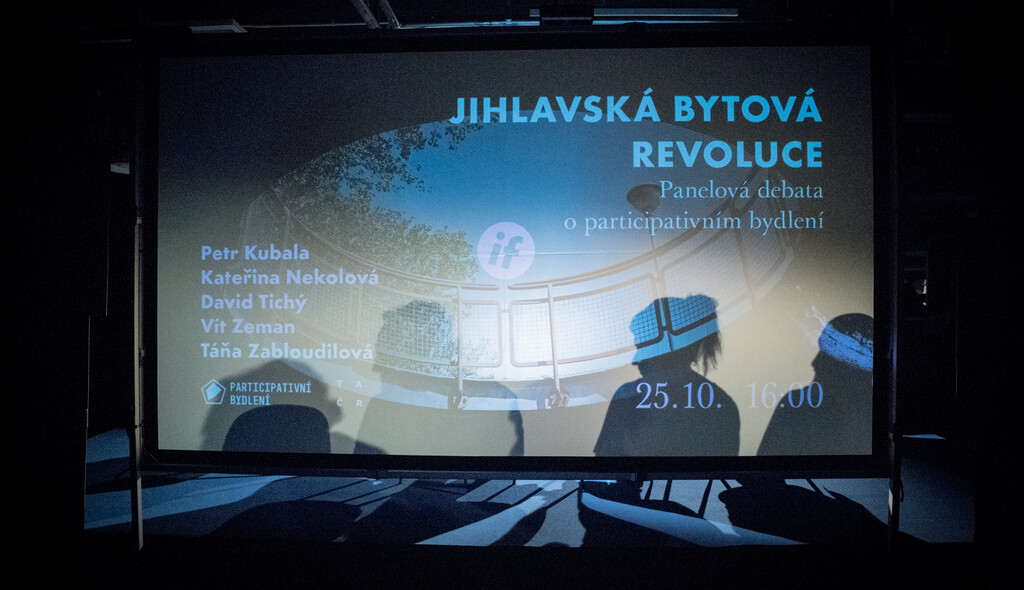
© Anna Šolcová for Ji.hlava IDFF
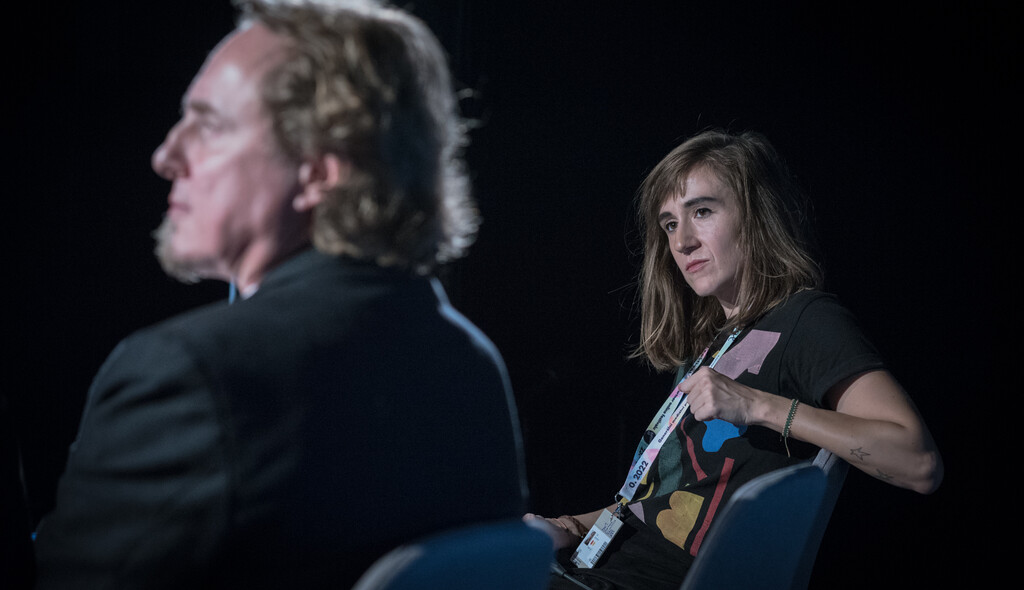
© Anna Šolcová for Ji.hlava IDFF
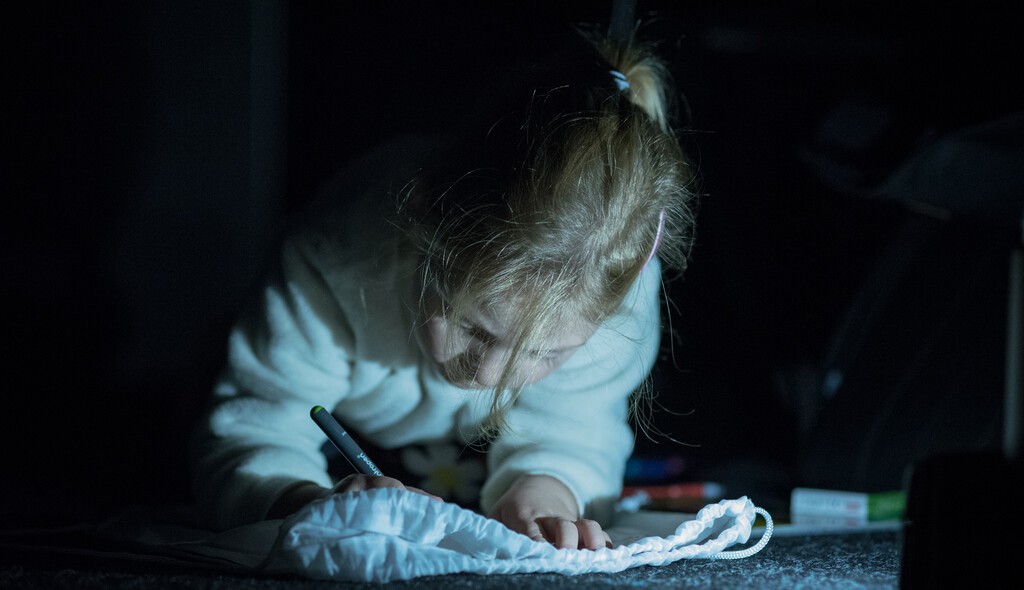
© Anna Šolcová for Ji.hlava IDFF
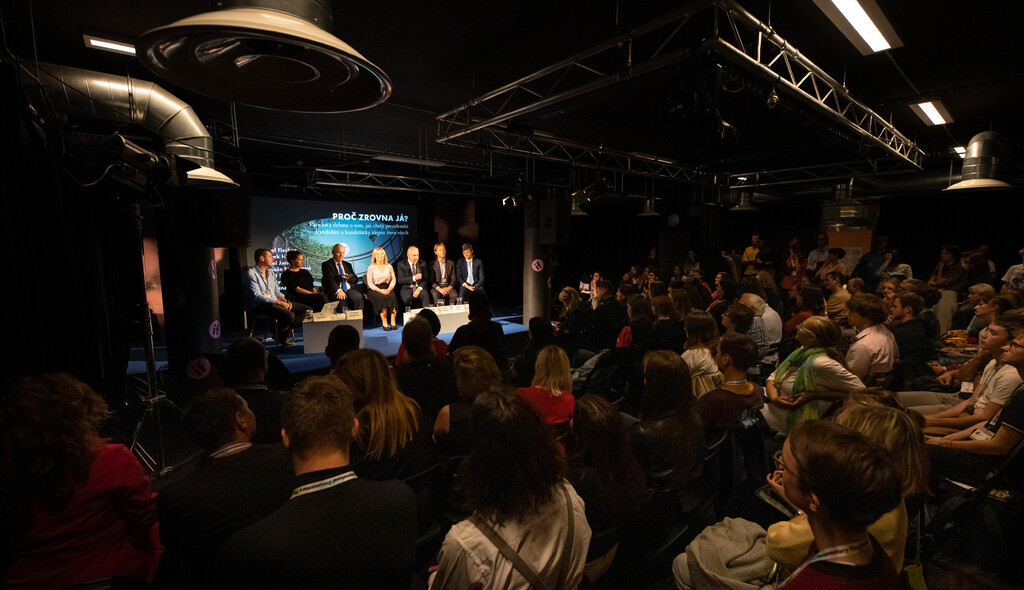
© Radek Lavička for Ji.hlava IDFF
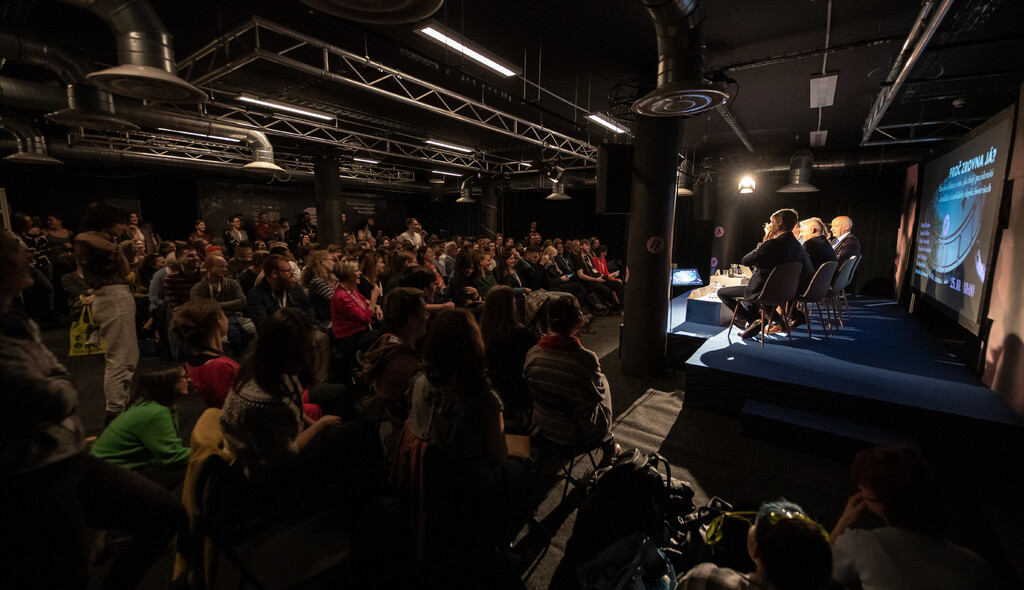
© Radek Lavička for Ji.hlava IDFF
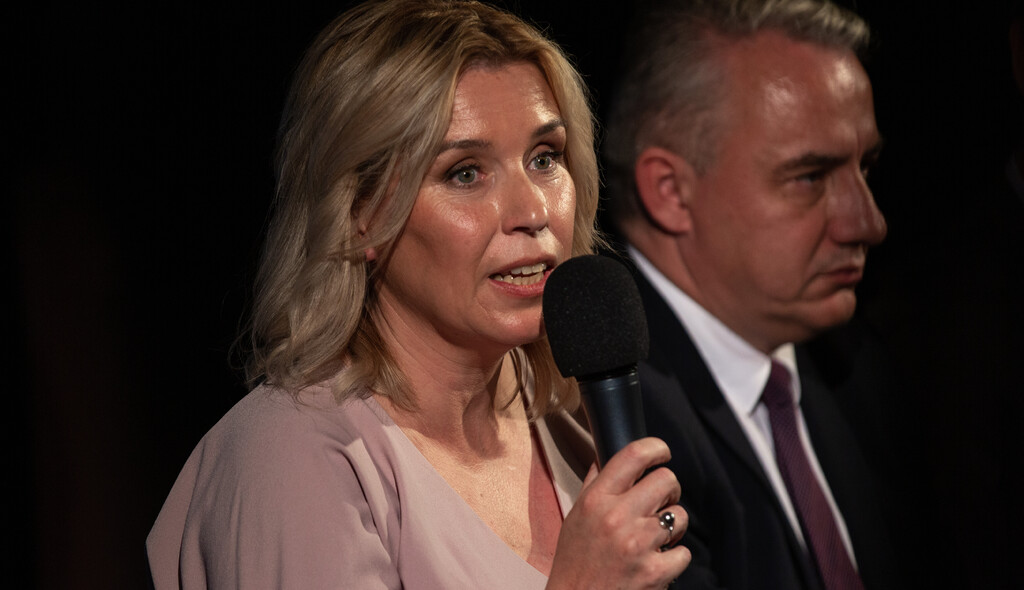
© Radek Lavička for Ji.hlava IDFF
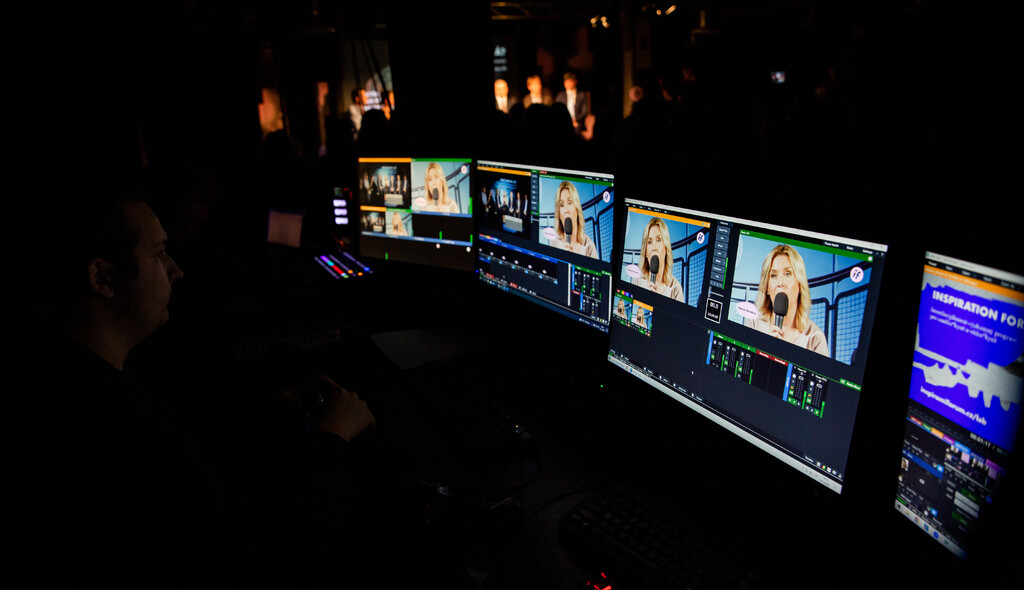
© Radek Lavička for Ji.hlava IDFF
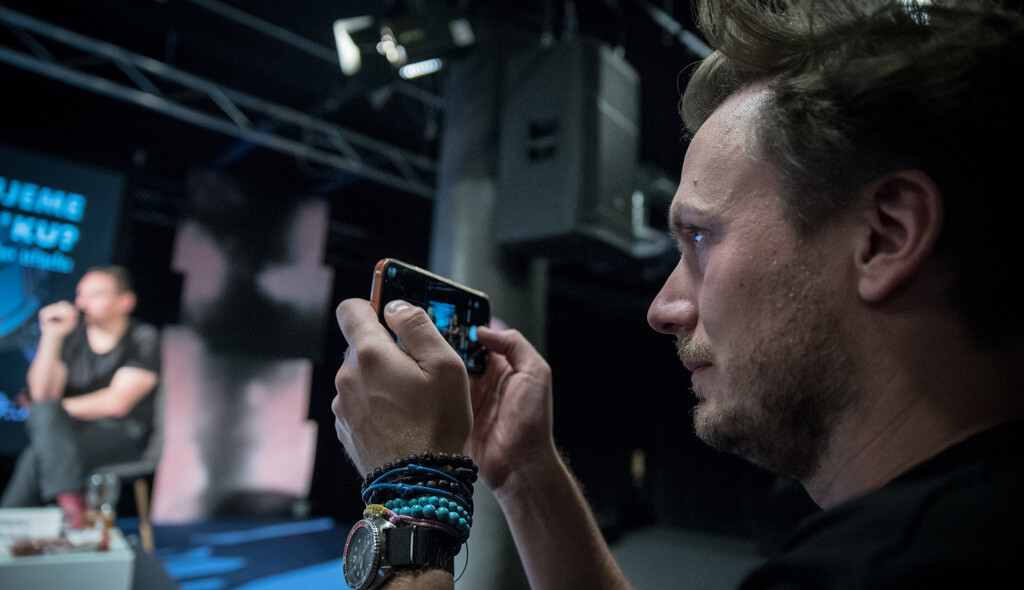
© Anna Šolcová for Ji.hlava IDFF
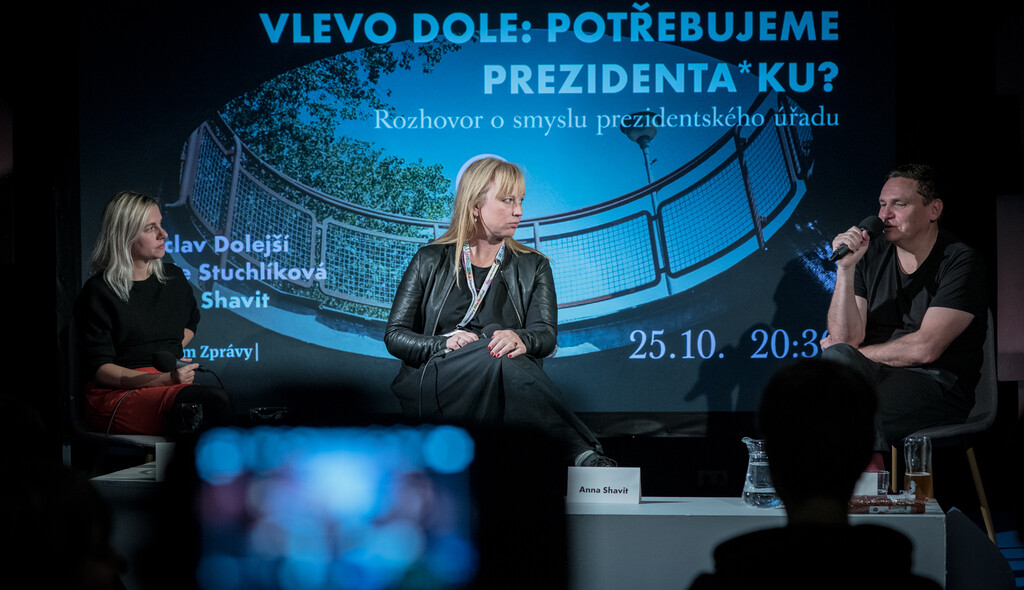
© Anna Šolcová for Ji.hlava IDFF
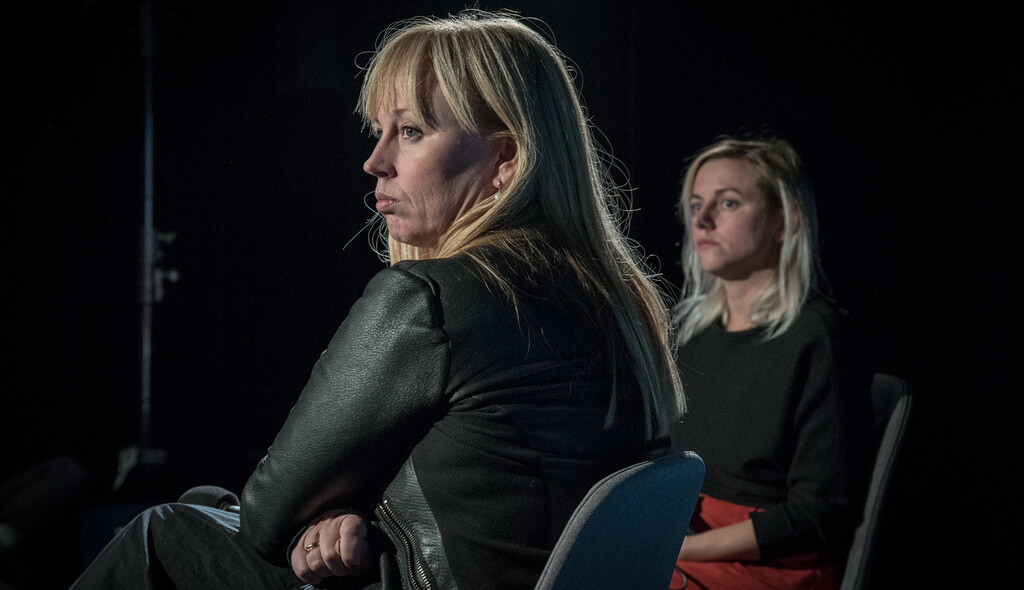
© Anna Šolcová for Ji.hlava IDFF
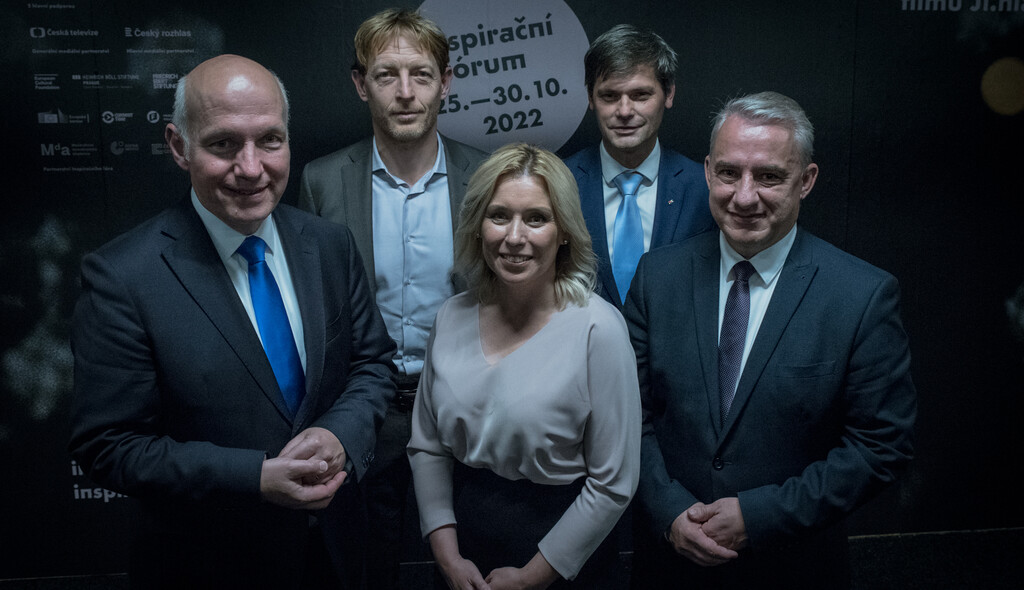
© Anna Šolcová for Ji.hlava IDFF
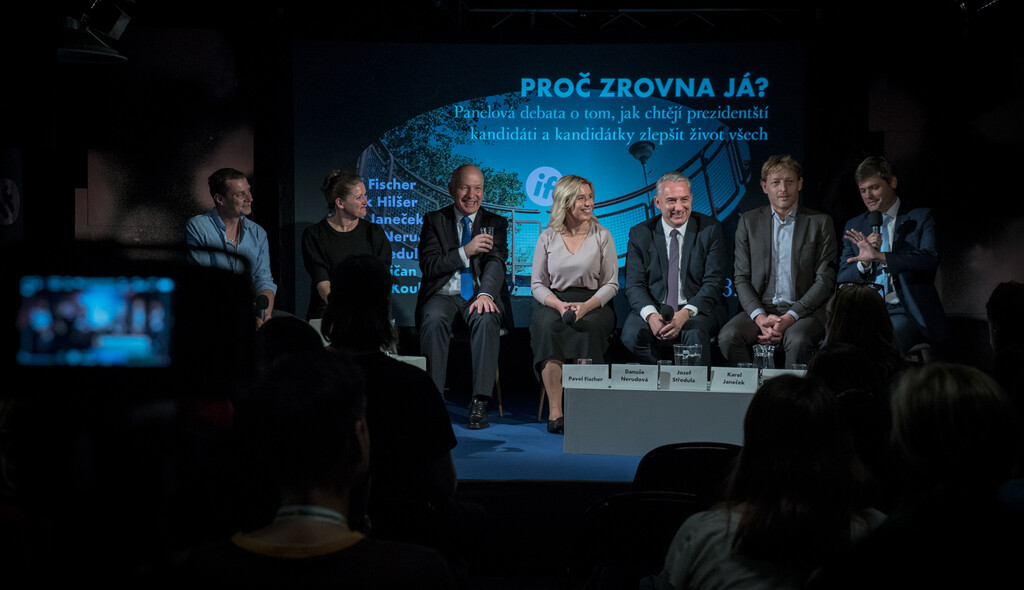
© Anna Šolcová for Ji.hlava IDFF
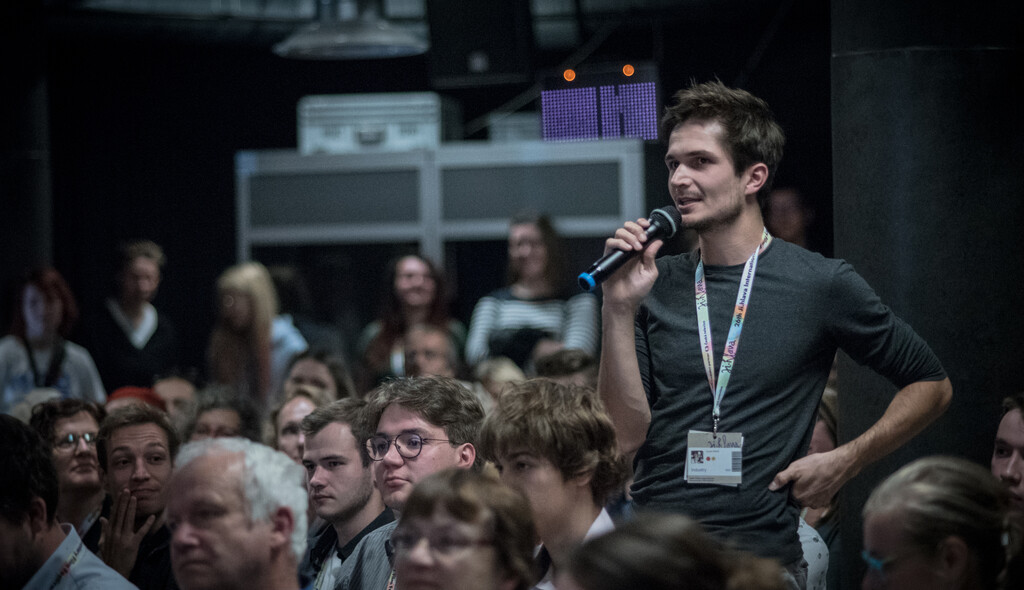
© Anna Šolcová for Ji.hlava IDFF
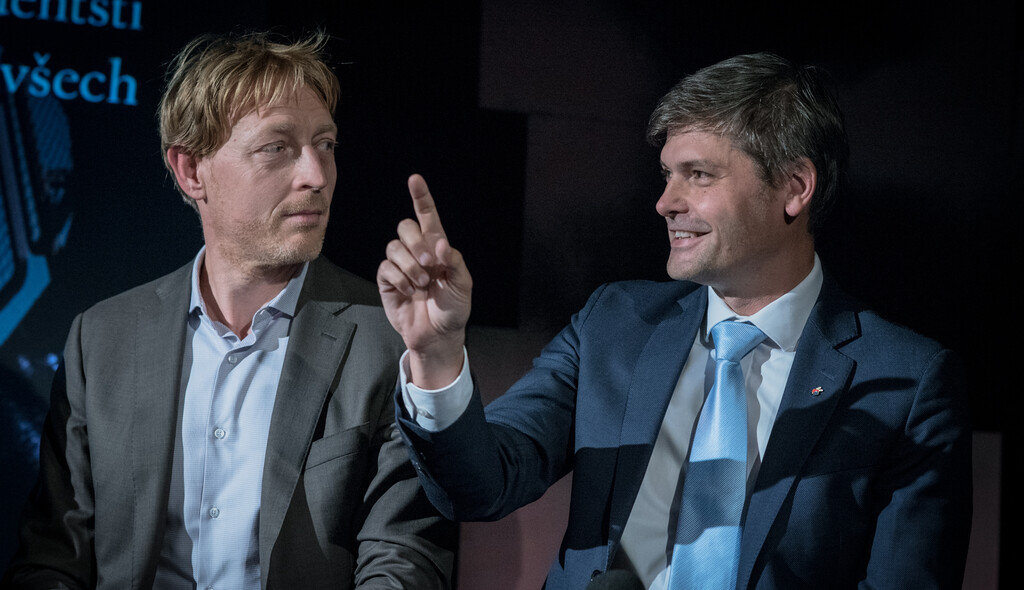
© Anna Šolcová for Ji.hlava IDFF
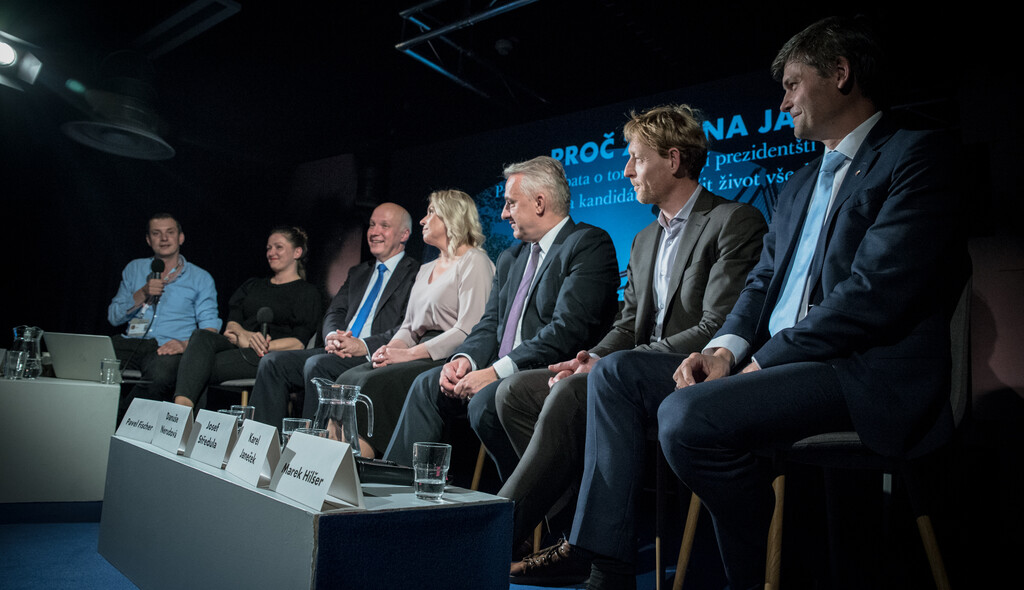
© Anna Šolcová for Ji.hlava IDFF
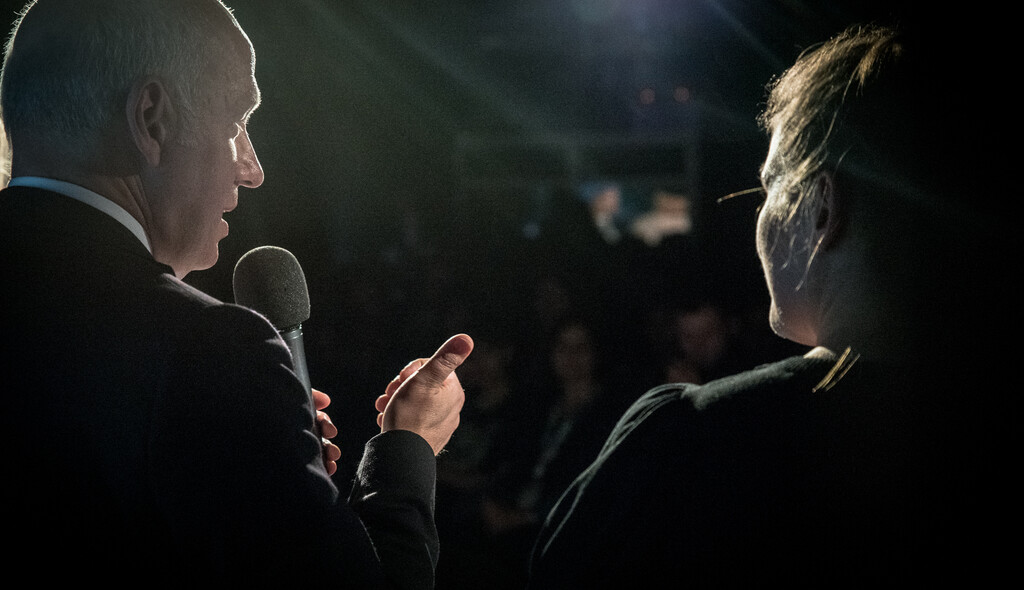
© Anna Šolcová for Ji.hlava IDFF
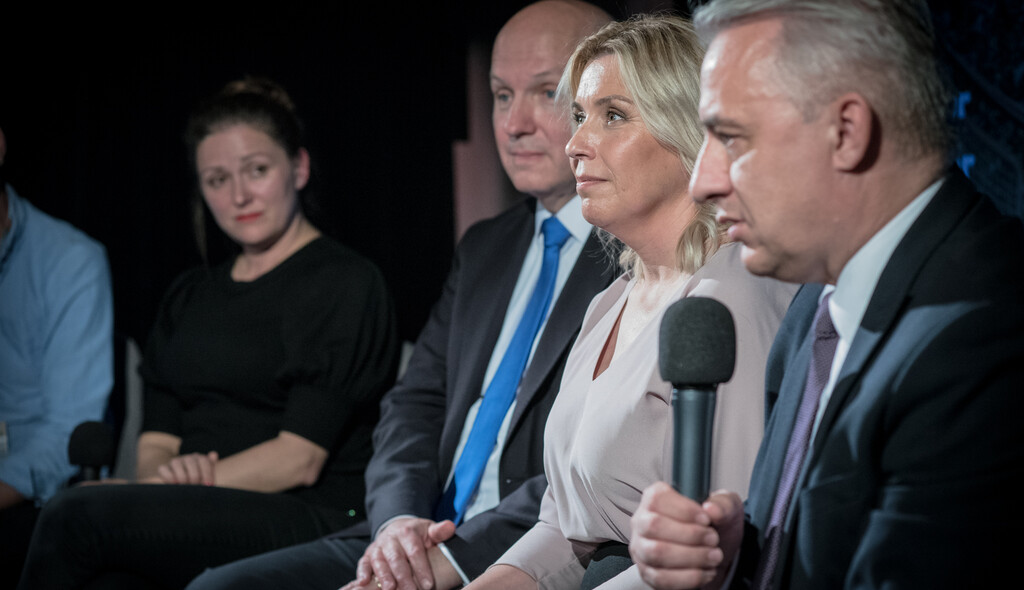
© Anna Šolcová for Ji.hlava IDFF
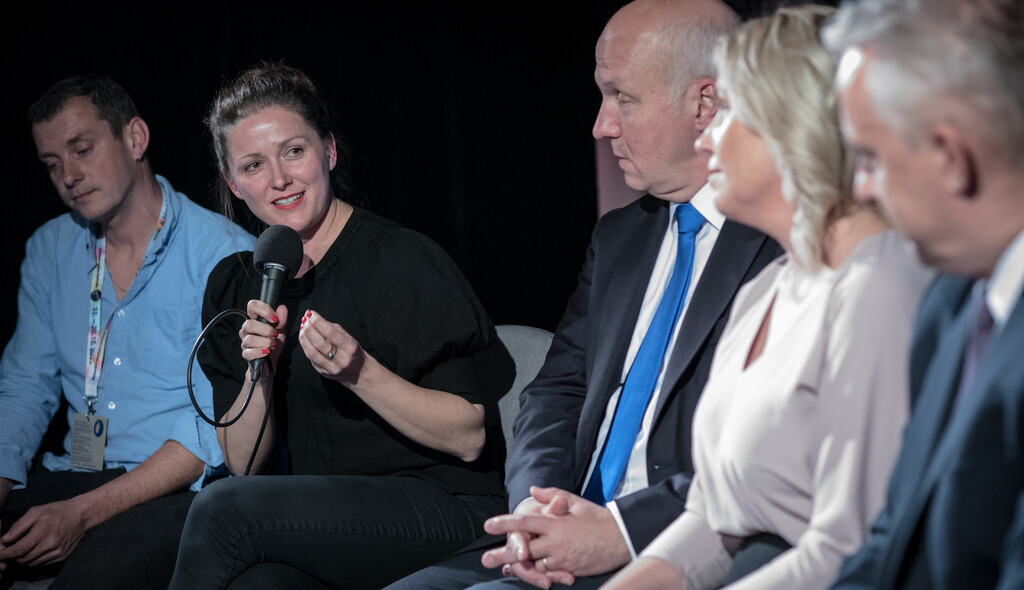
© Anna Šolcová for Ji.hlava IDFF
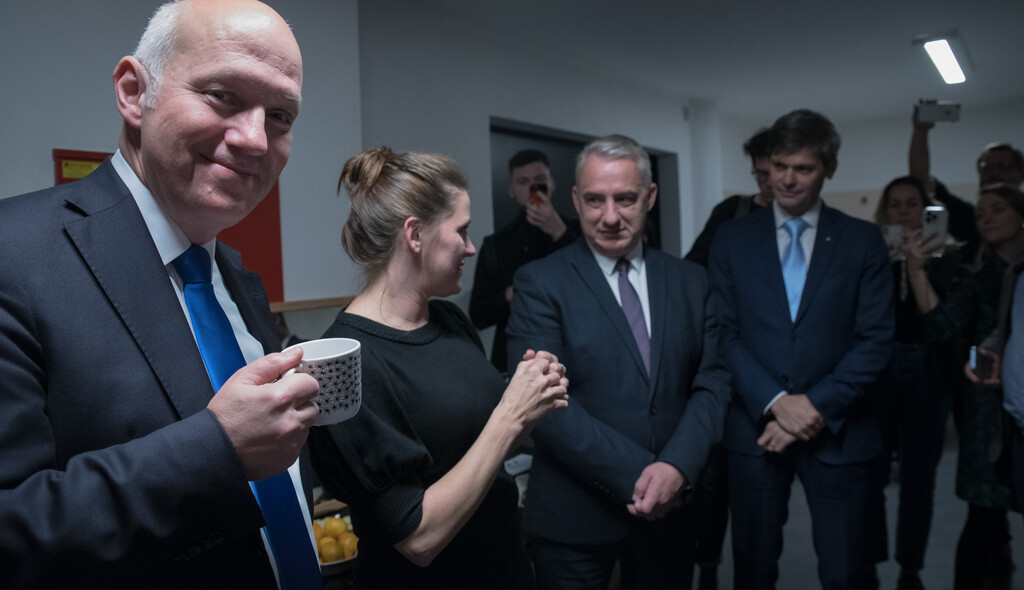
© Anna Šolcová for Ji.hlava IDFF
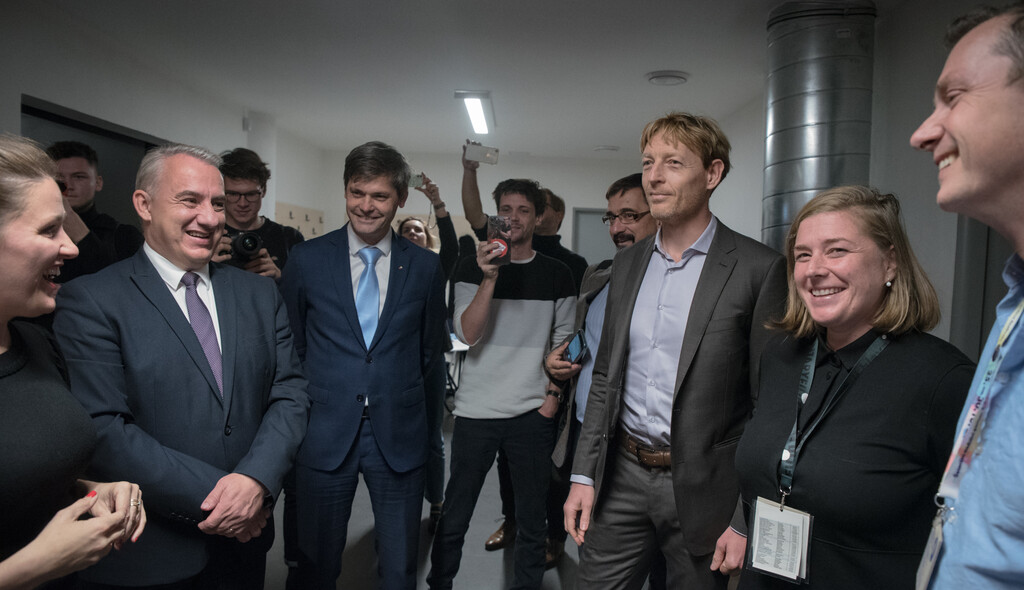
© Anna Šolcová for Ji.hlava IDFF
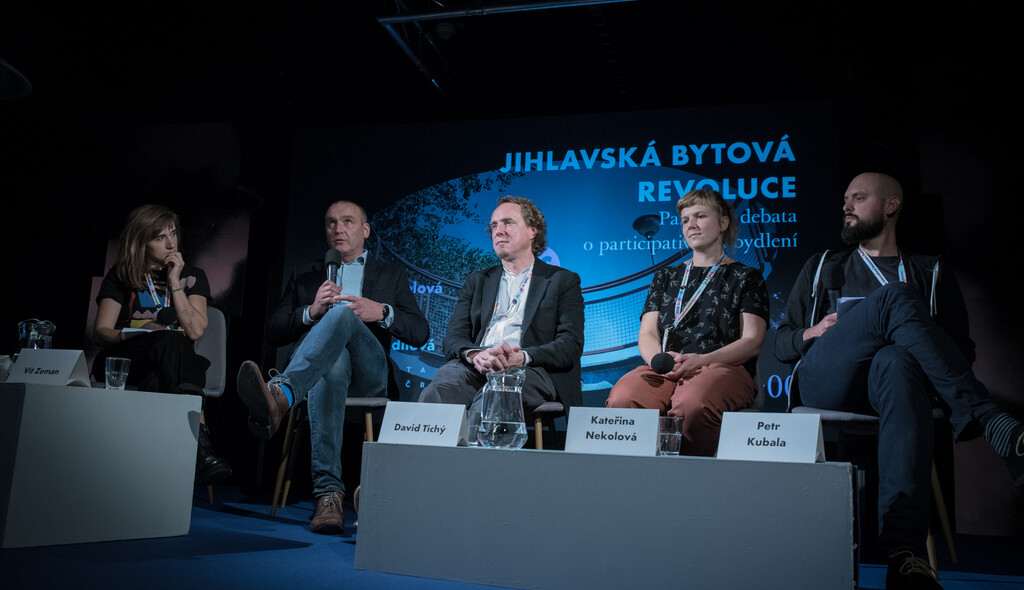
© Anna Šolcová for Ji.hlava IDFF
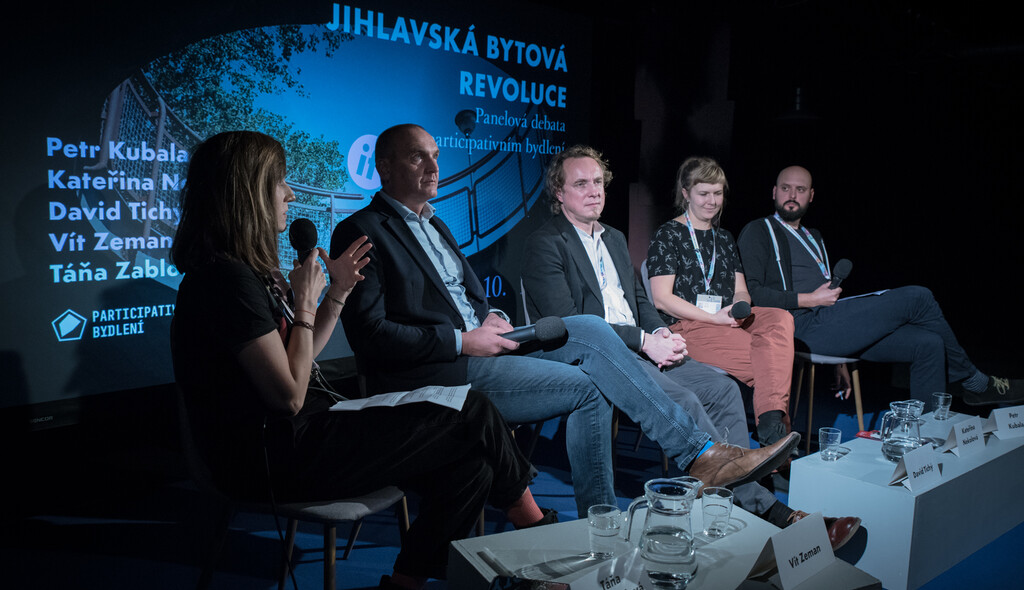
© Anna Šolcová for Ji.hlava IDFF
On Tuesday, October 25, we opened the Forum's agenda with a question about life and housing in the Czech Republic and how the presidential candidates intend to make both easier for us. In the Jihlava’s Housing Revolution debate, sociologist Petr Kubala, member of the social cooperative První vlaštovka Kateřina Nekolová, architect David Tichý, urban planning and development expert Vít Zeman and publicist Táňa Zabloudilová spoke about affordable and sustainable participatory housing. Five presidential candidates – Pavel Fischer, Marek Hilšer, Karel Janeček, Danuše Nerudová and Josef Středula – followed in a discussion Why Me? with documentary filmmaker Ivo Bystřičan and former Jihlava mayor Karolina Koubová, and they described how they plan to improve life in the Czech Republic. Do We Need a President? was the question for political scientist Anna Shavit from the authors of the Vlevo dole podcast Václav Dolejší and Lucie Stuchlíková.
ЛЮДИНА_HUMANS / Ukrainian challenge for humanity
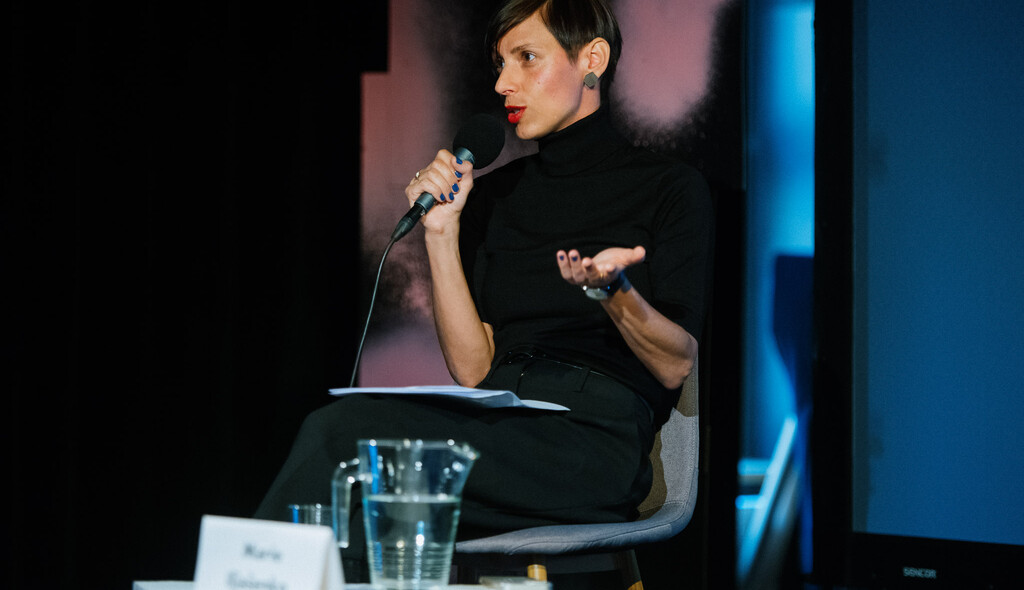
© Jan Hromádko for Ji.hlava IDFF
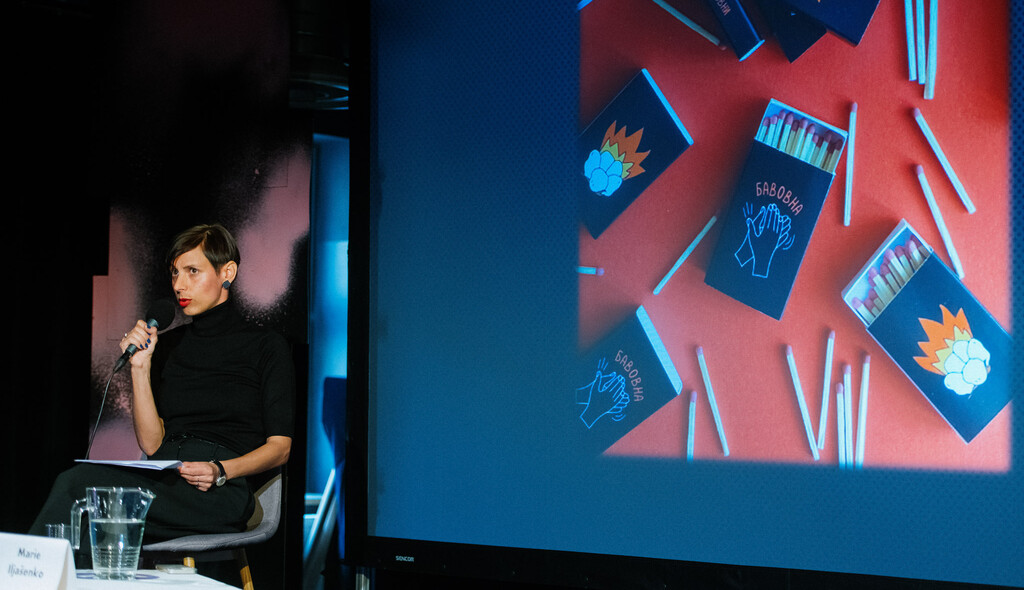
© Jan Hromádko for Ji.hlava IDFF

© Jan Hromádko for Ji.hlava IDFF
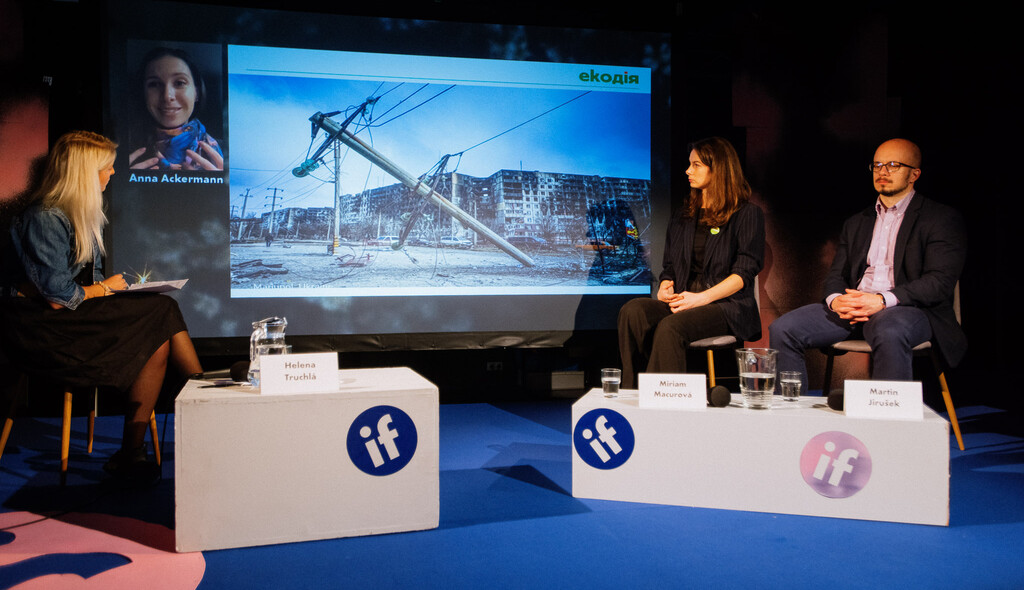
© Jan Hromádko for Ji.hlava IDFF
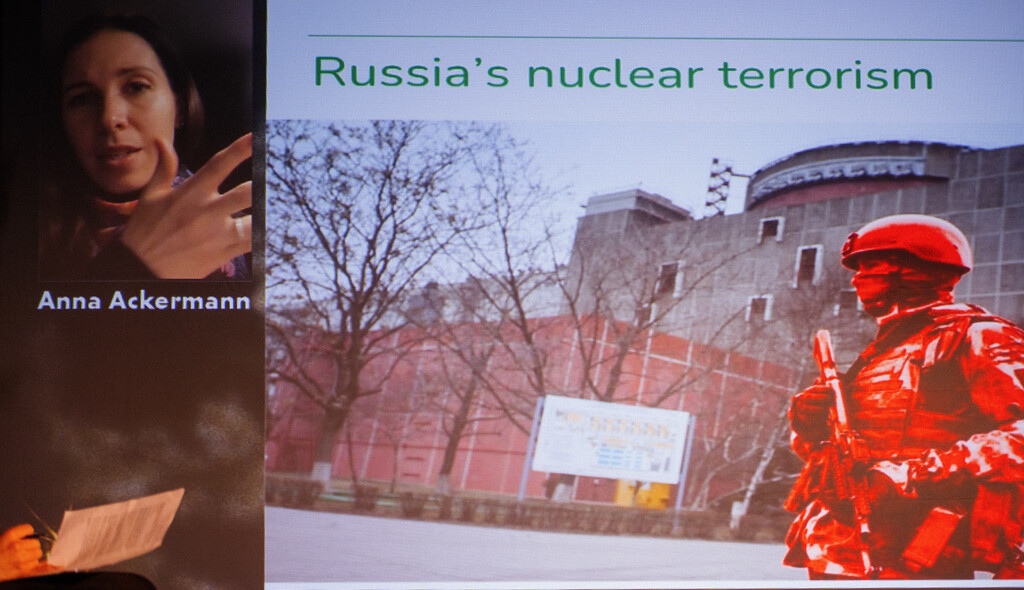
© Jan Hromádko for Ji.hlava IDFF
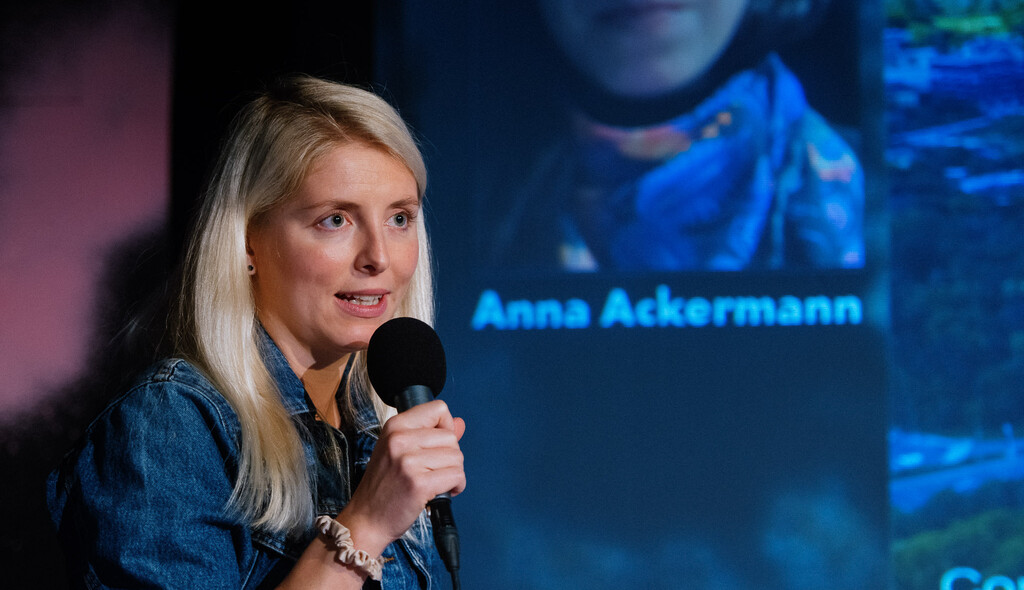
© Jan Hromádko for Ji.hlava IDFF
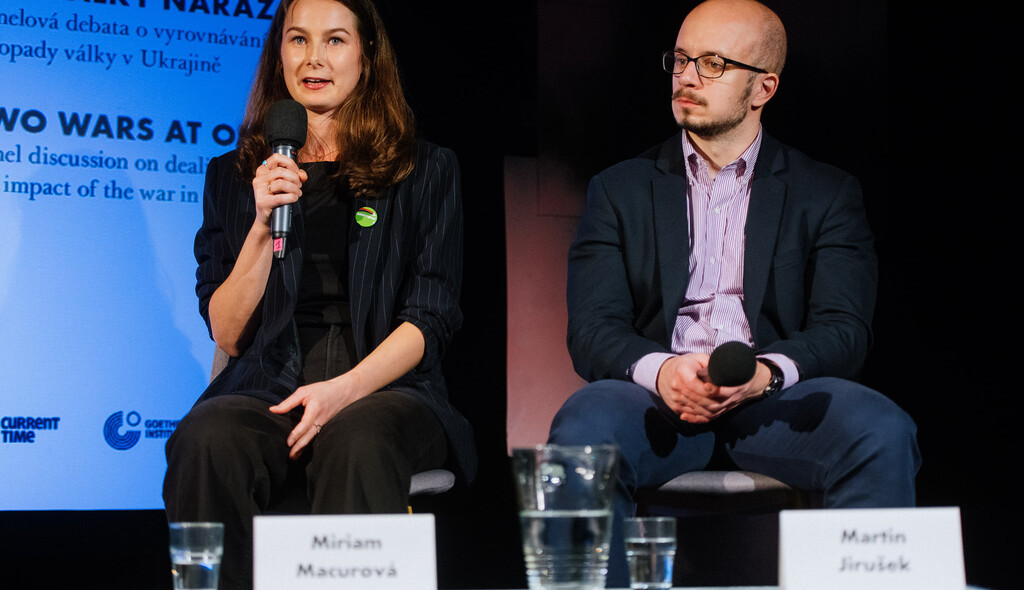
© Jan Hromádko for Ji.hlava IDFF
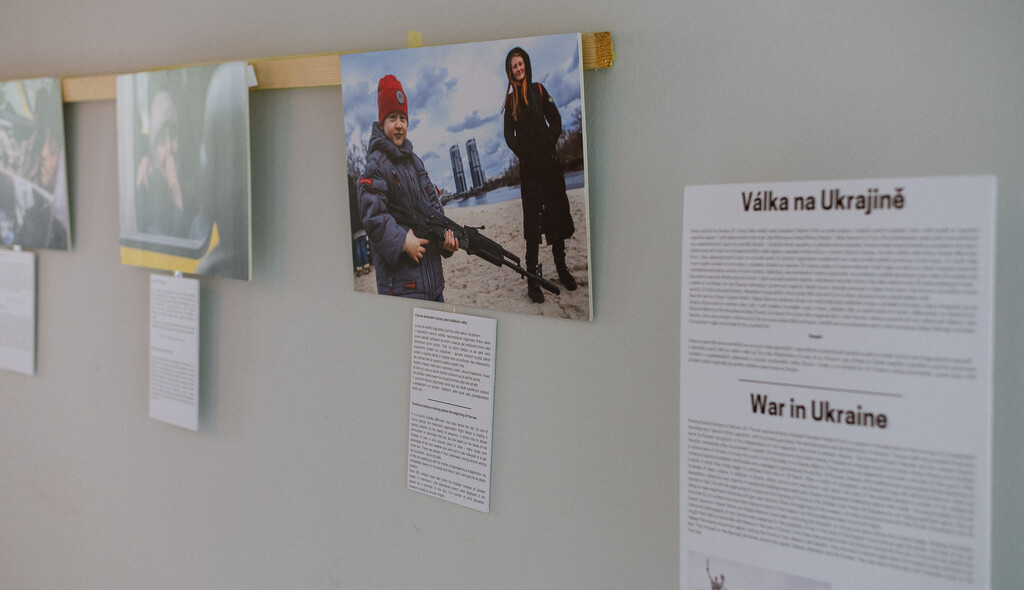
© Jan Hromádko for Ji.hlava IDFF
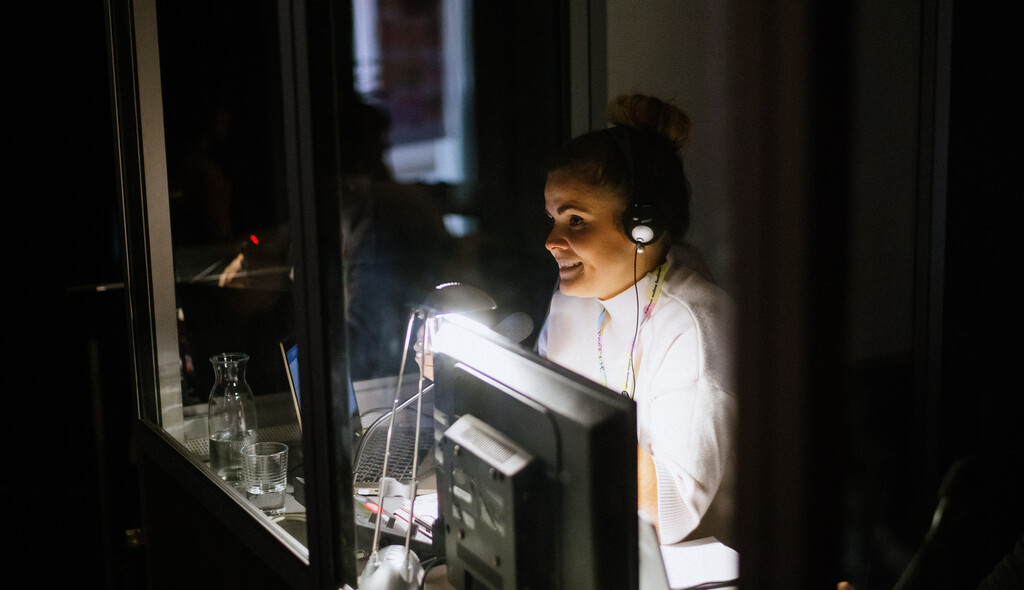
© Jan Hromádko for Ji.hlava IDFF
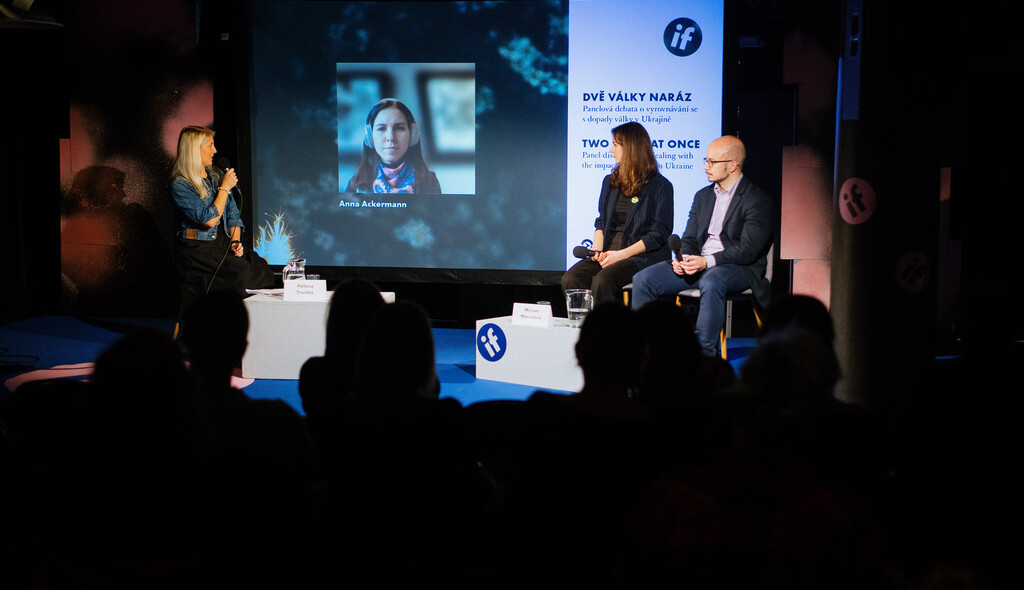
© Jan Hromádko for Ji.hlava IDFF
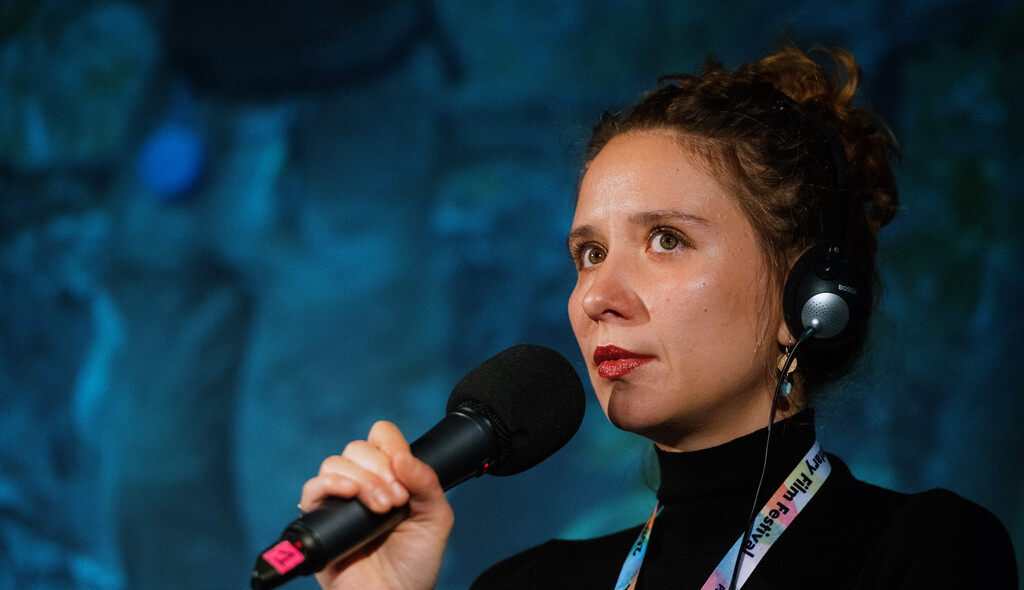
© Jan Hromádko for Ji.hlava IDFF
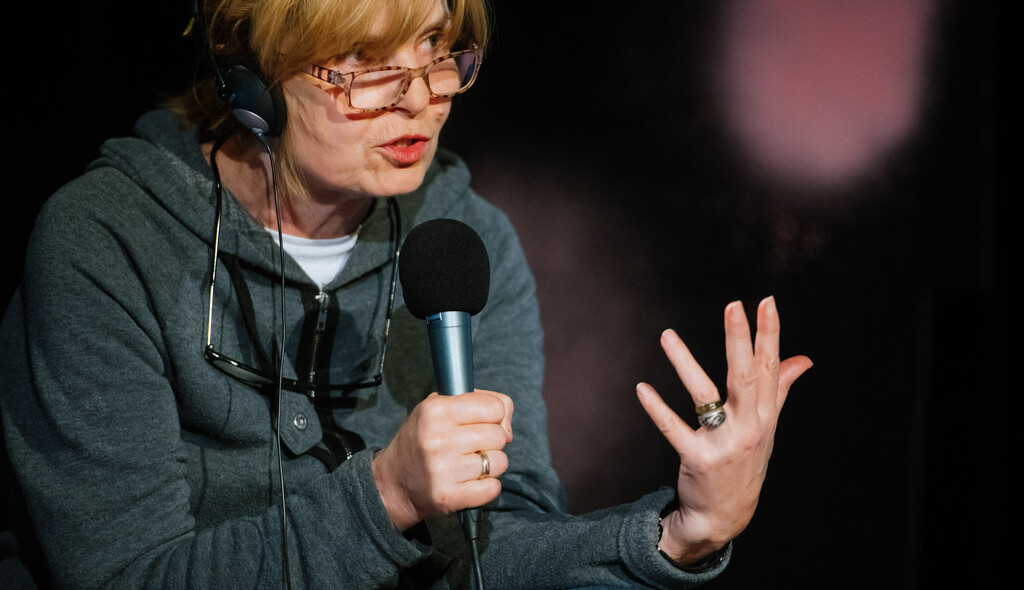
© Jan Hromádko for Ji.hlava IDFF
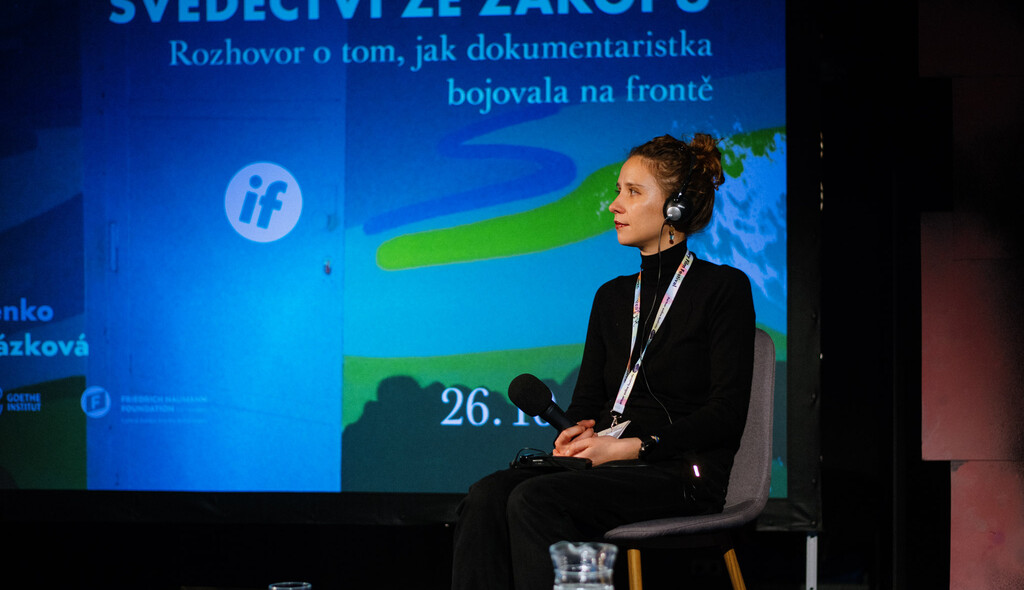
© Jan Hromádko for Ji.hlava IDFF
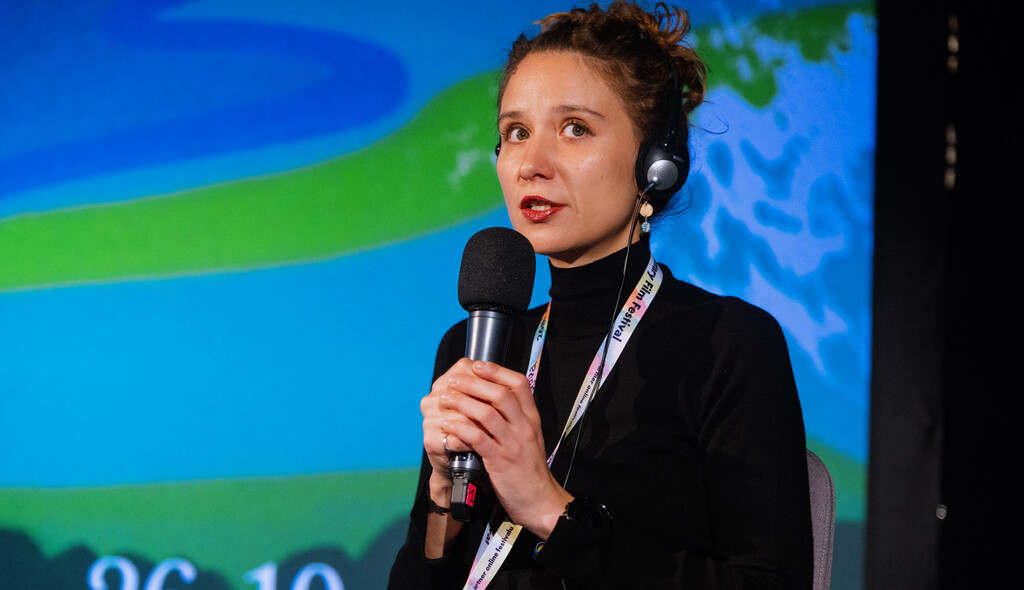
© Jan Hromádko for Ji.hlava IDFF
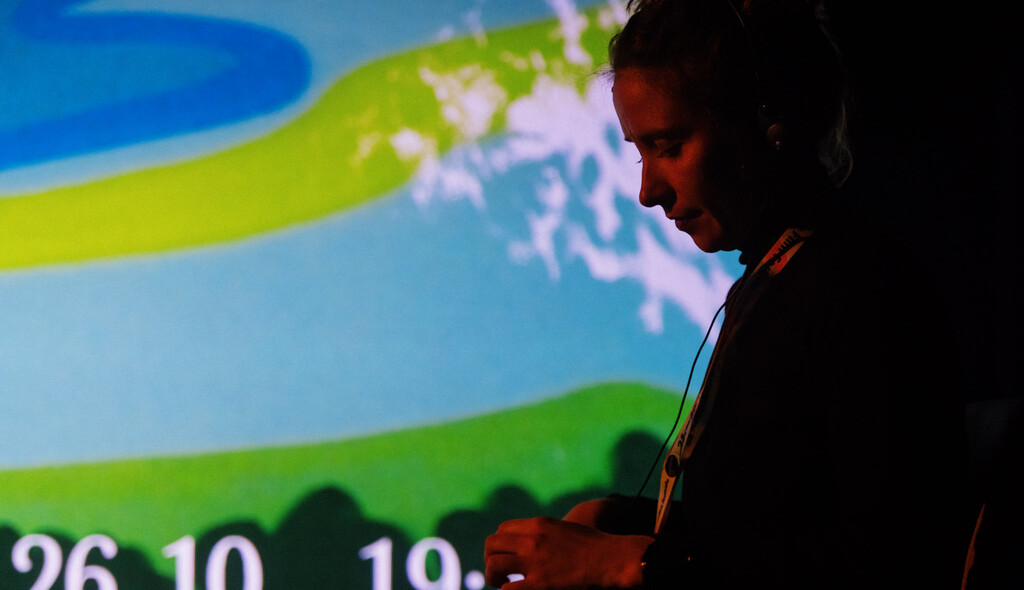
© Jan Hromádko for Ji.hlava IDFF
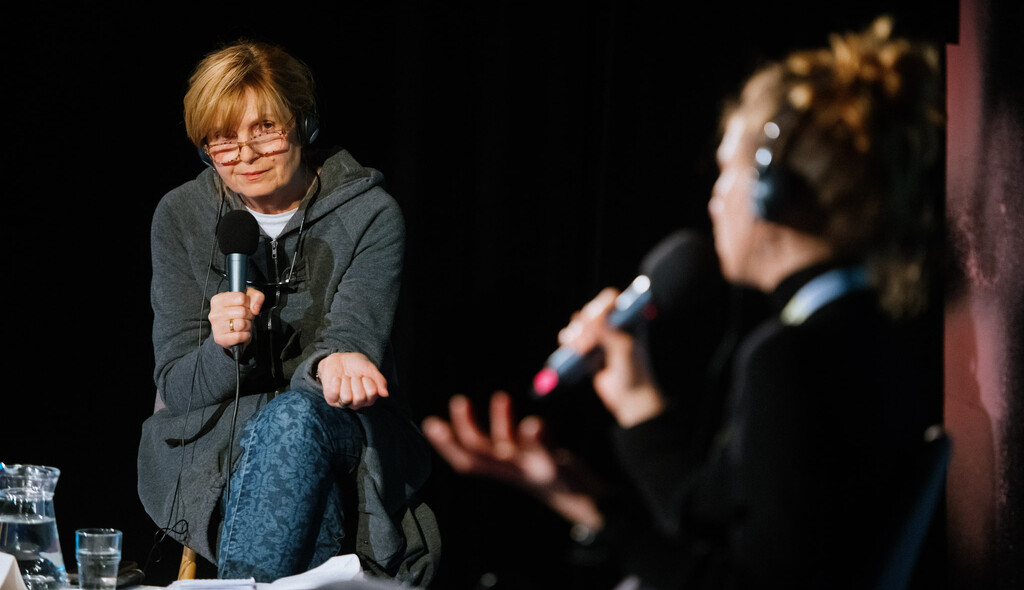
© Jan Hromádko for Ji.hlava IDFF
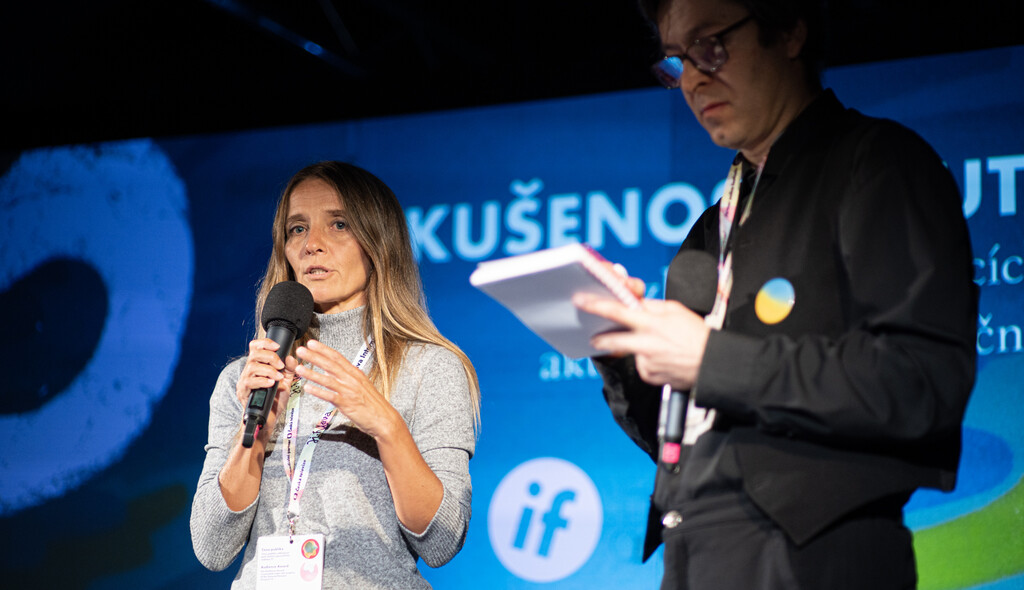
© Štefan Berec for Ji.hlava IDFF
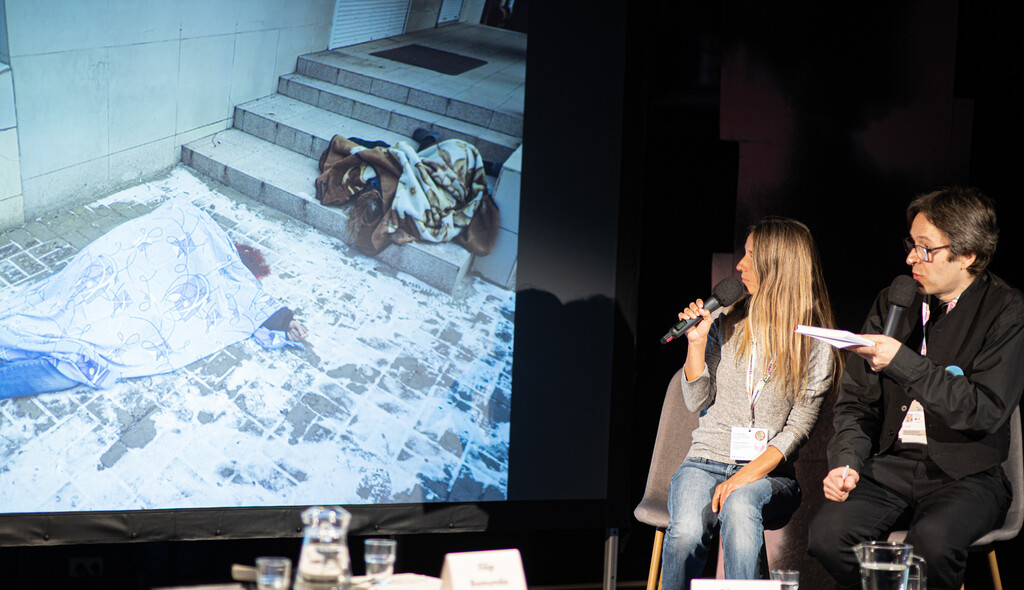
© Štefan Berec for Ji.hlava IDFF
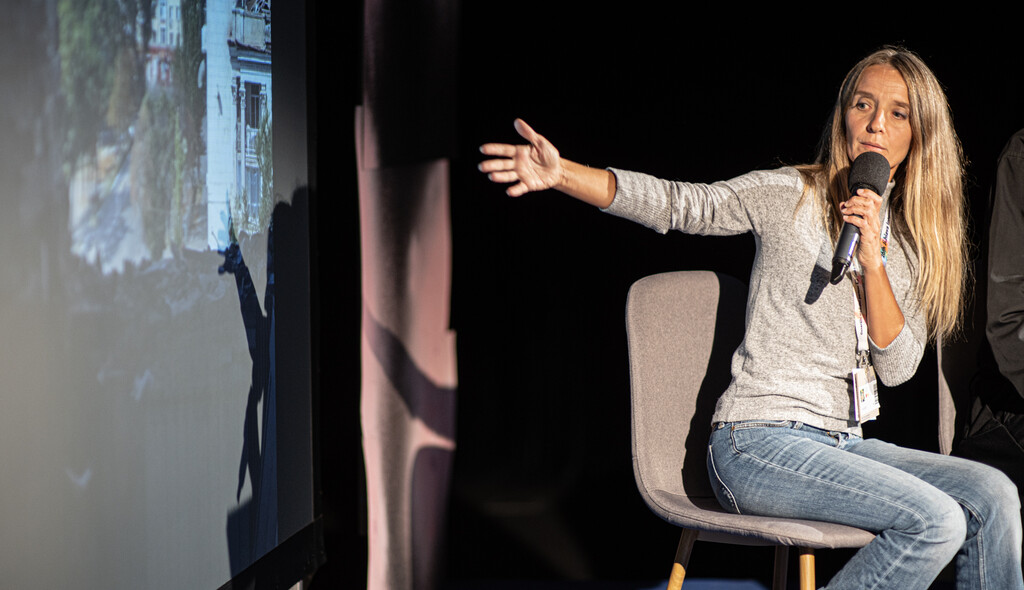
© Štefan Berec for Ji.hlava IDFF
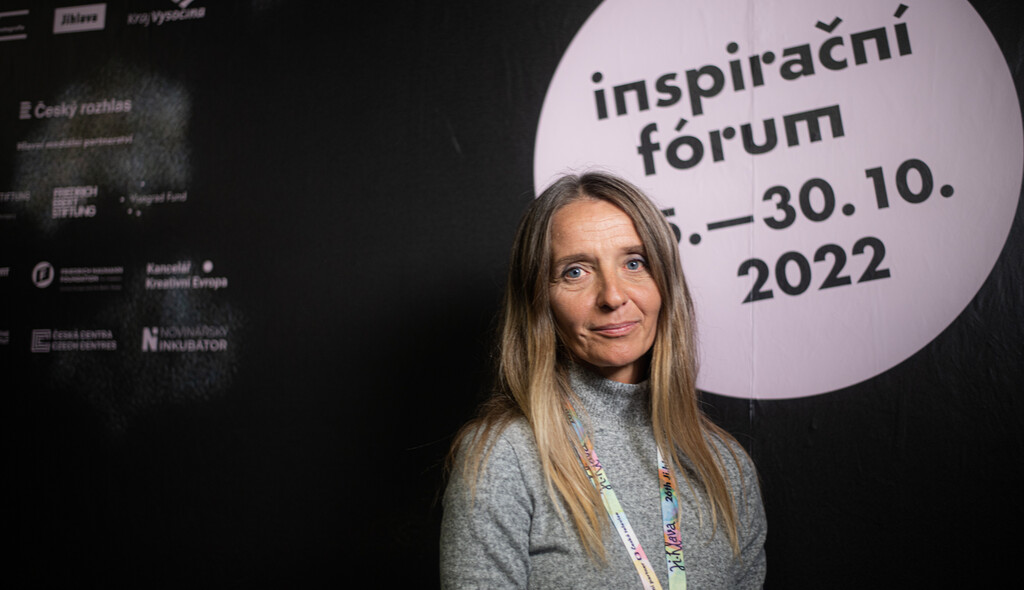
© Štefan Berec for Ji.hlava IDFF
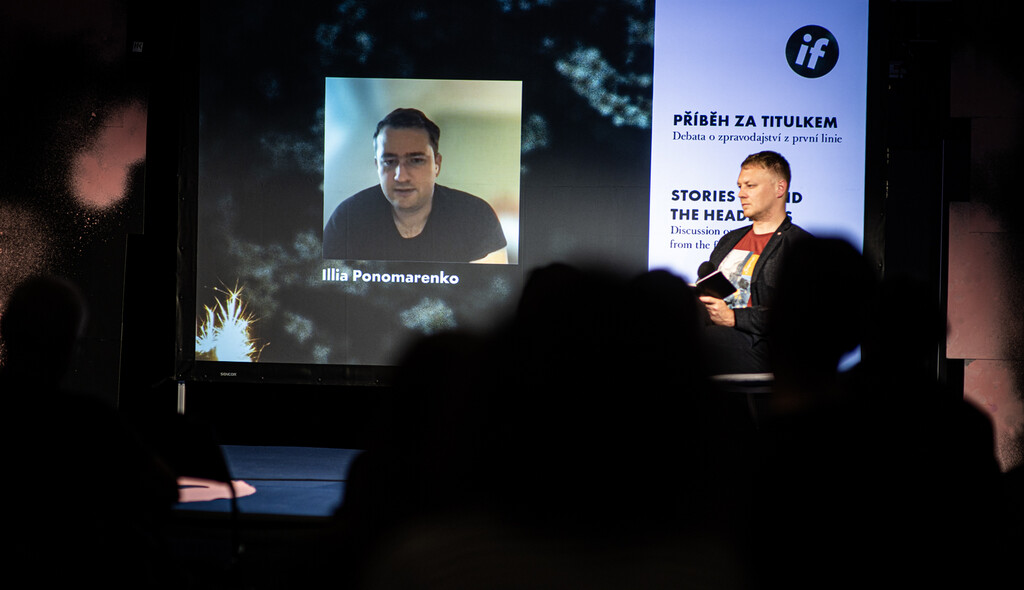
© Štefan Berec for Ji.hlava IDFF
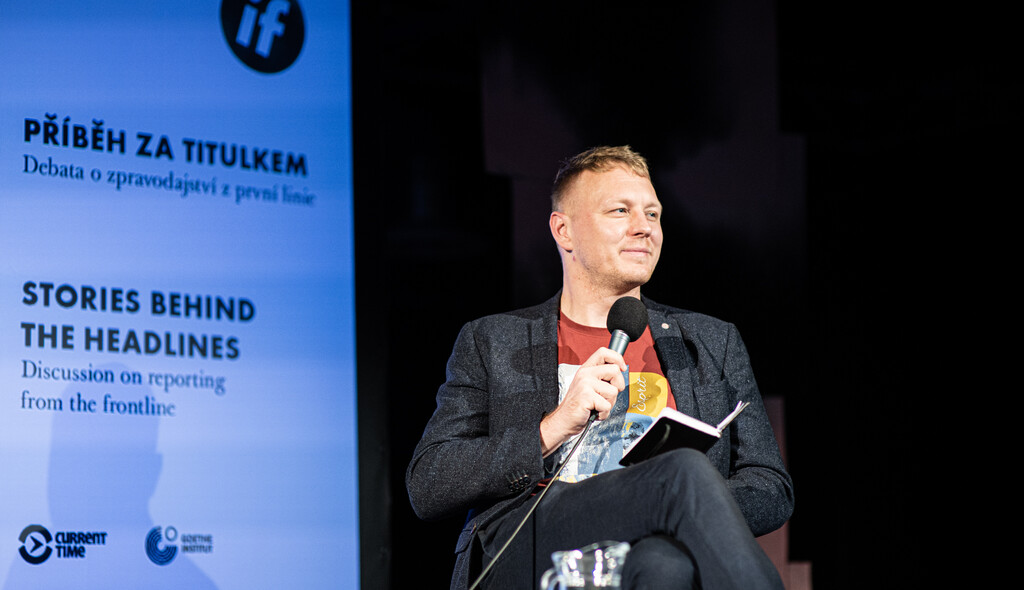
© Štefan Berec for Ji.hlava IDFF
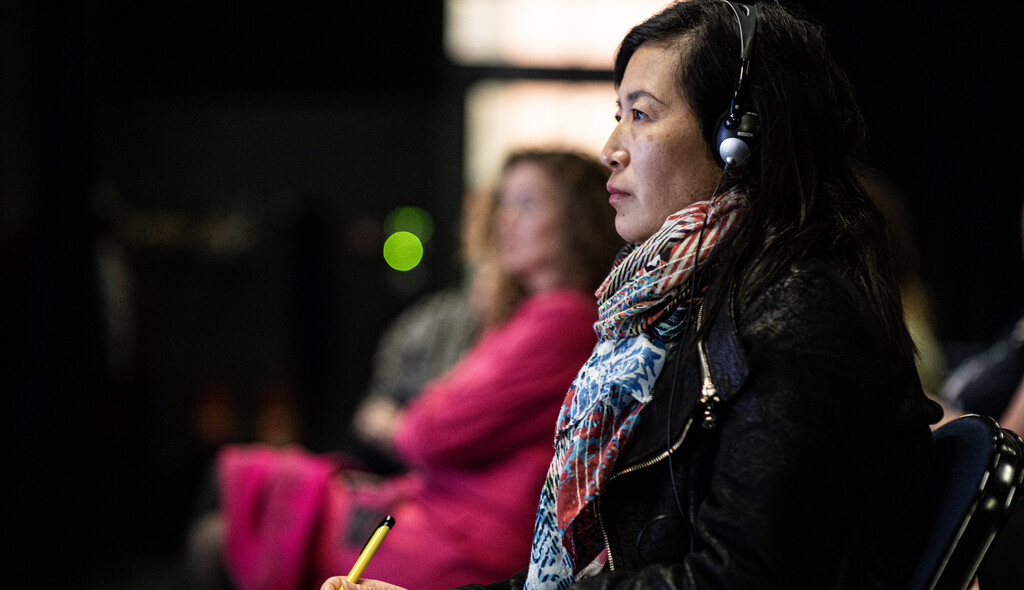
© Štefan Berec for Ji.hlava IDFF
On Wednesday, October 26, we discussed the horrific events in Ukraine and its post-war future. The Inner World of poet Maria Ilyashenko's War in Memes showcased Ukrainian online humor in difficult times. In the panel debate Two Wars at Once, political analyst Anna Ackermann, political scientist Martin Jirušek and climate campaigner Miriam Macurová discussed the environmental impact of war and European energy security with journalist Helena Truchlá. Writer Oksana Stomina shared her personal experience of war violence in her interview Experience of Cruelty with documentary filmmaker Filip Remunda. Kyiv Independent reporter Illia Ponomarenko spoke about frontline reporting with reporter Vojtěch Boháč in the Story Behind the Headlines programme. Documentary filmmaker Alisa Kovalenko, who joined the Ukrainian armed forces after the Russian invasion, gave her Testimony from the Trenches in an interview with journalist Petra Procházková.
E-PANOPTICON / Destined for the online world
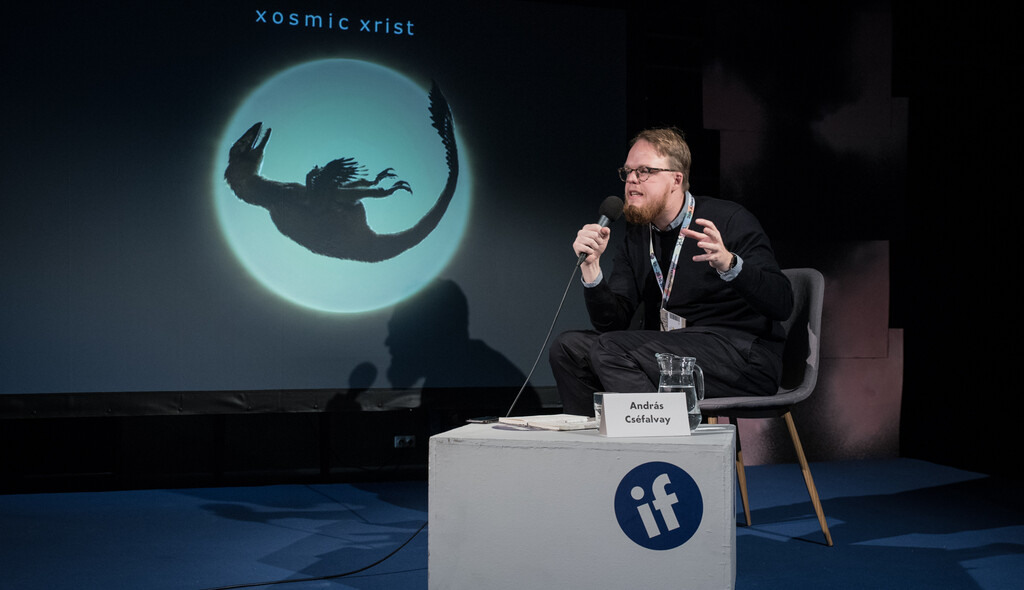
© Anna Šolcová for Ji.hlava IDFF
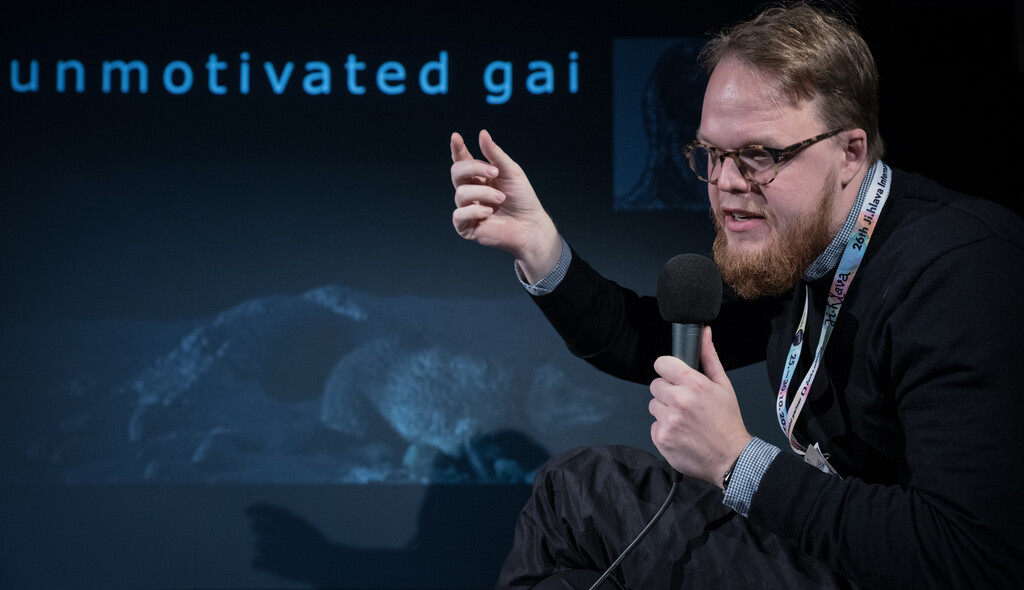
© Anna Šolcová for Ji.hlava IDFF
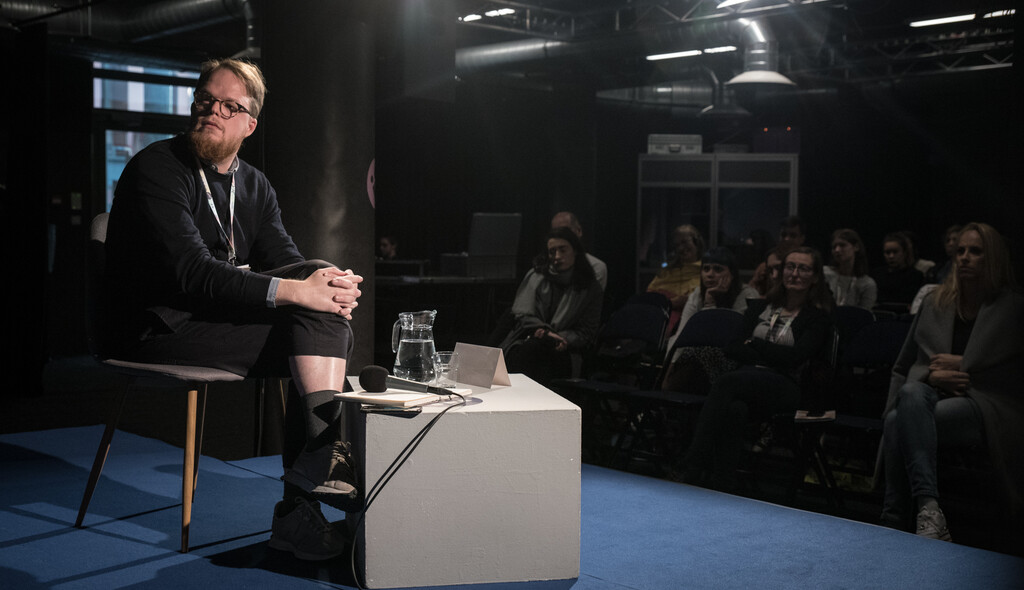
© Anna Šolcová for Ji.hlava IDFF
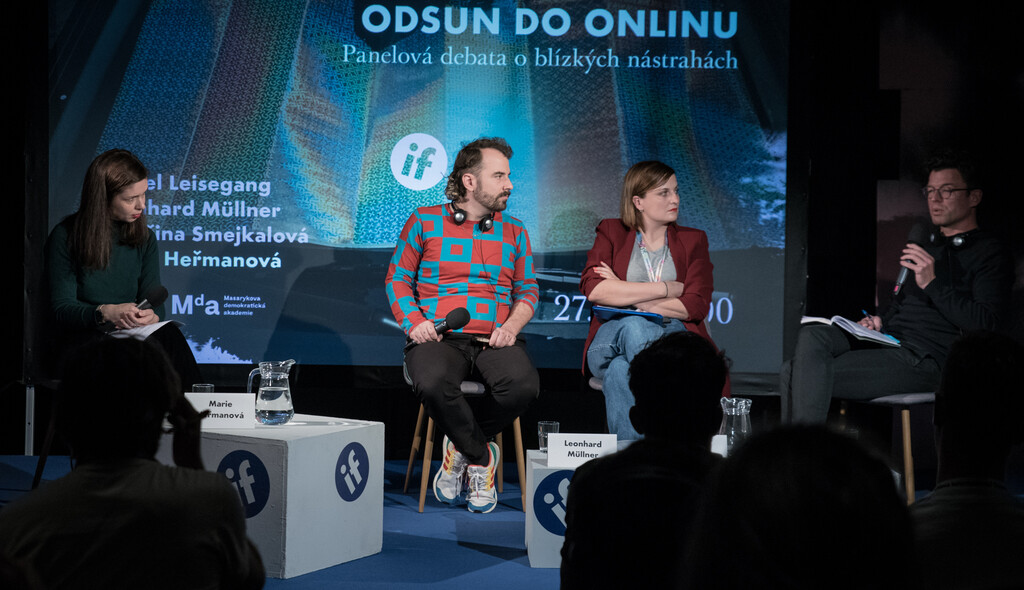
© Anna Šolcová for Ji.hlava IDFF
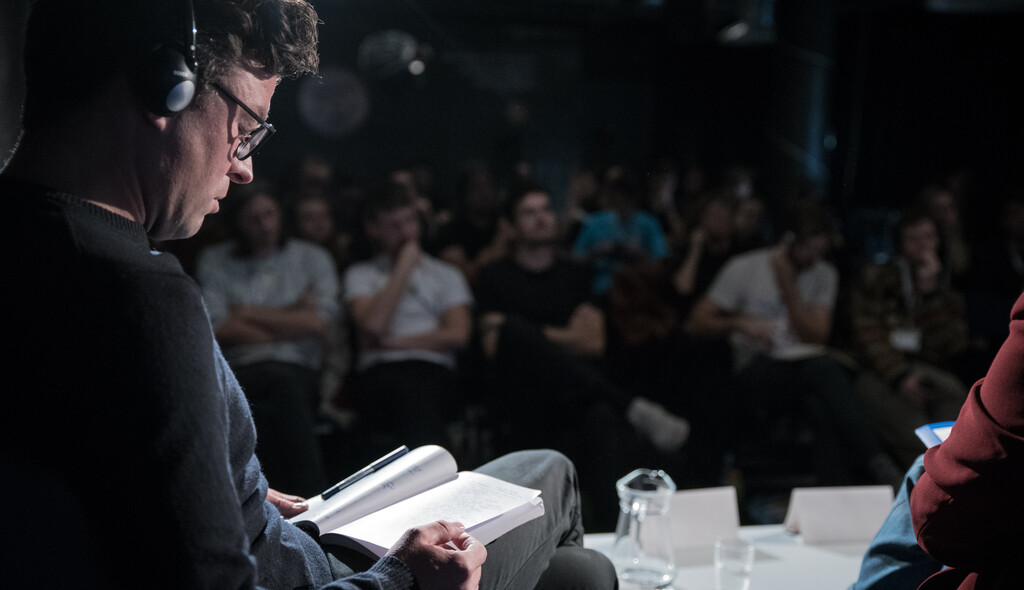
© Anna Šolcová for Ji.hlava IDFF
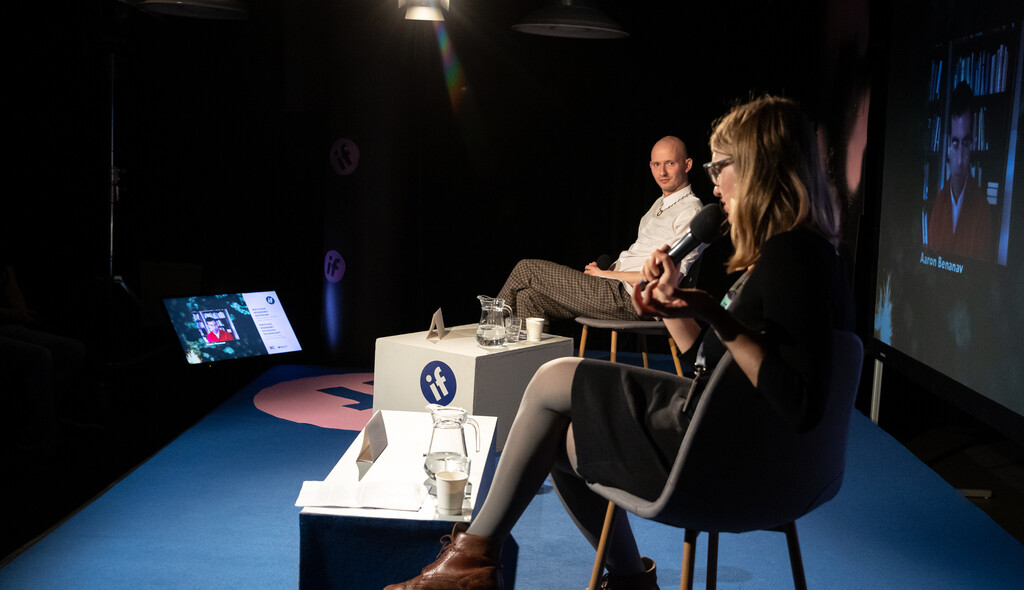
© Radek Lavička for Ji.hlava IDFF
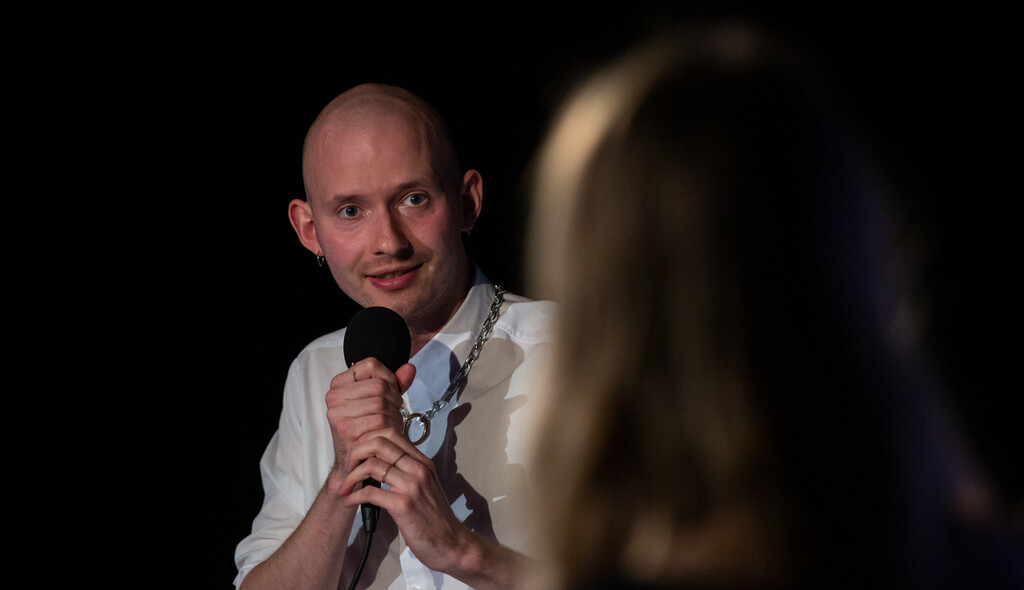
© Radek Lavička for Ji.hlava IDFF
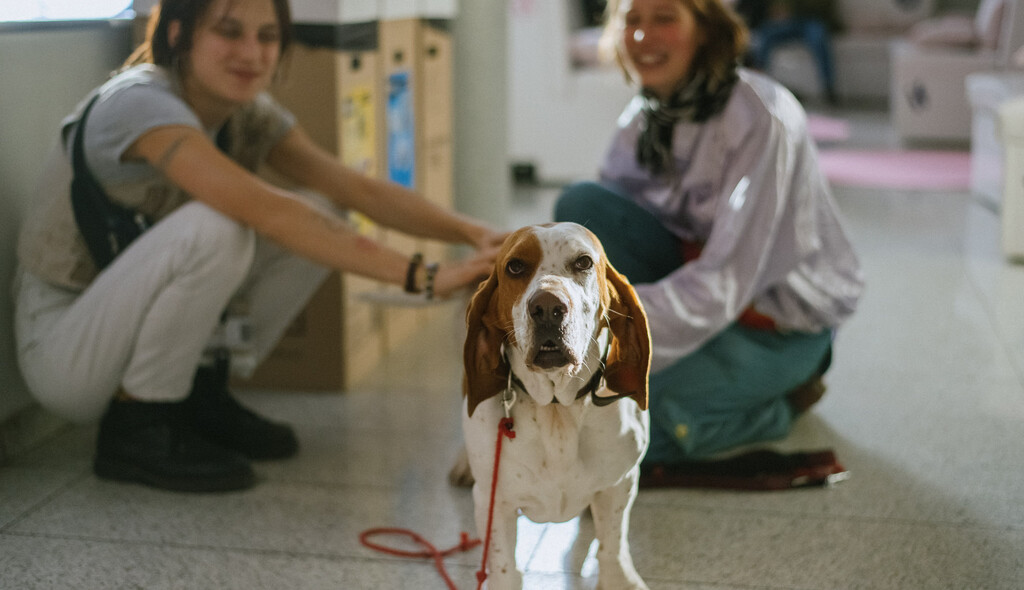
© Jan Hromádko for Ji.hlava IDFF
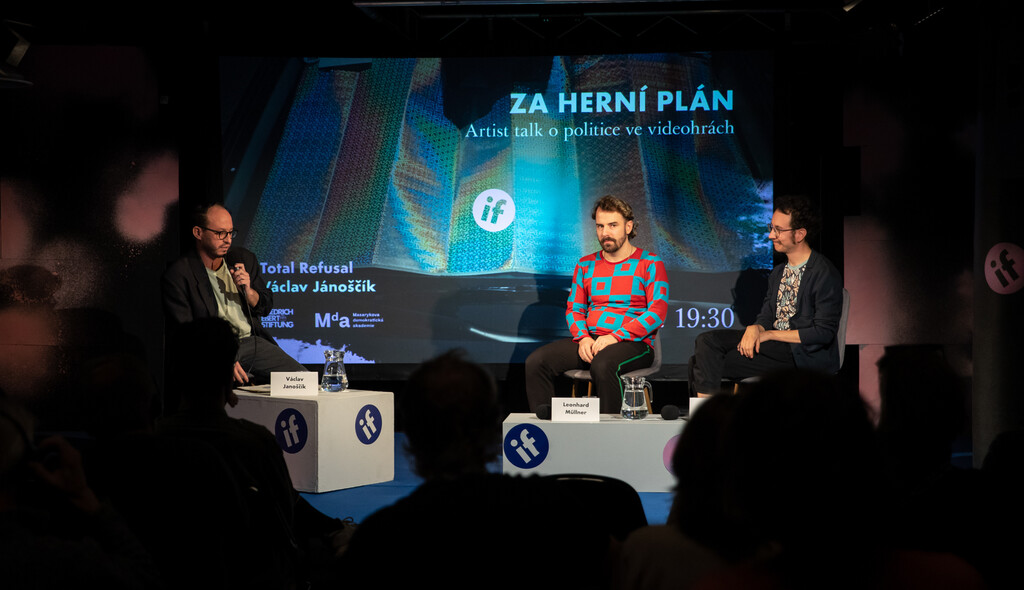
© Radek Lavička for Ji.hlava IDFF
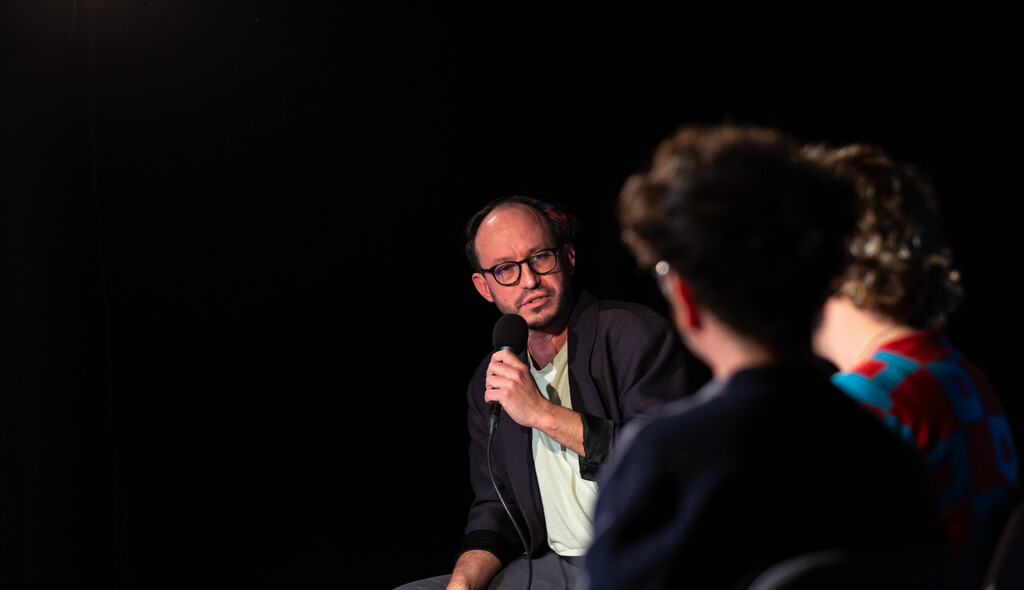
© Radek Lavička for Ji.hlava IDFF
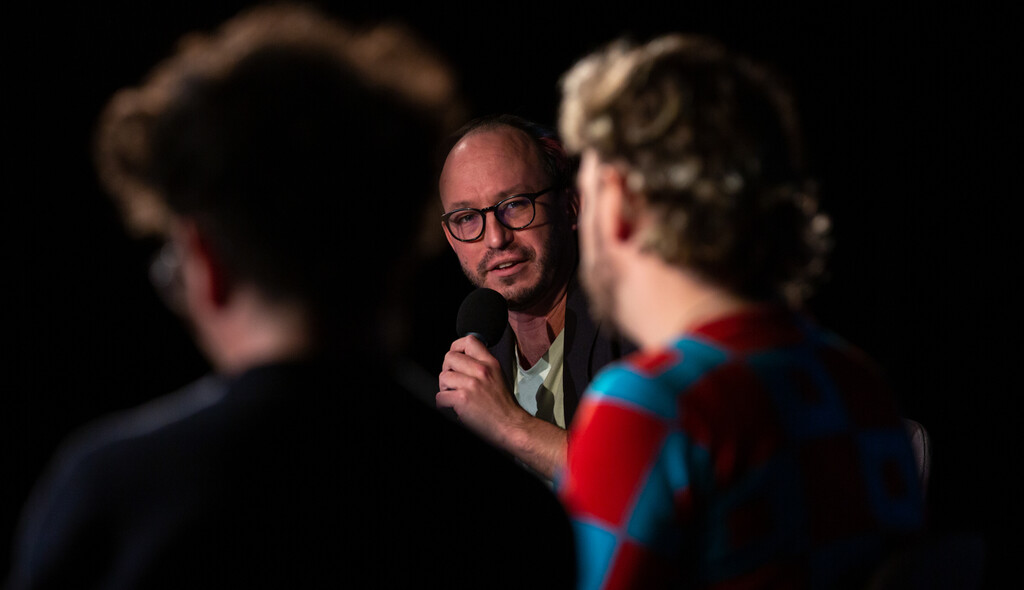
© Radek Lavička for Ji.hlava IDFF
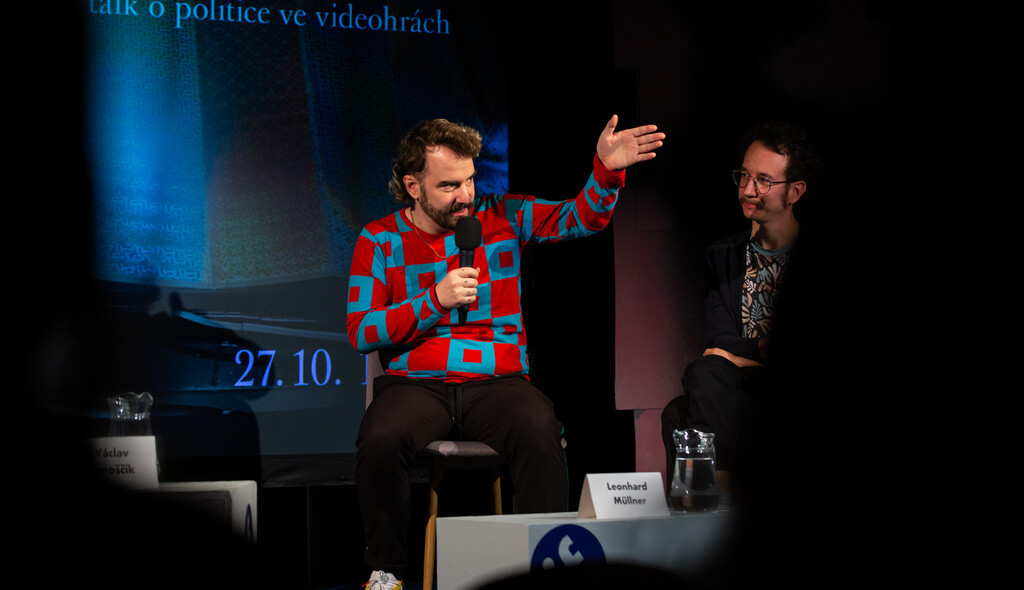
© Radek Lavička for Ji.hlava IDFF
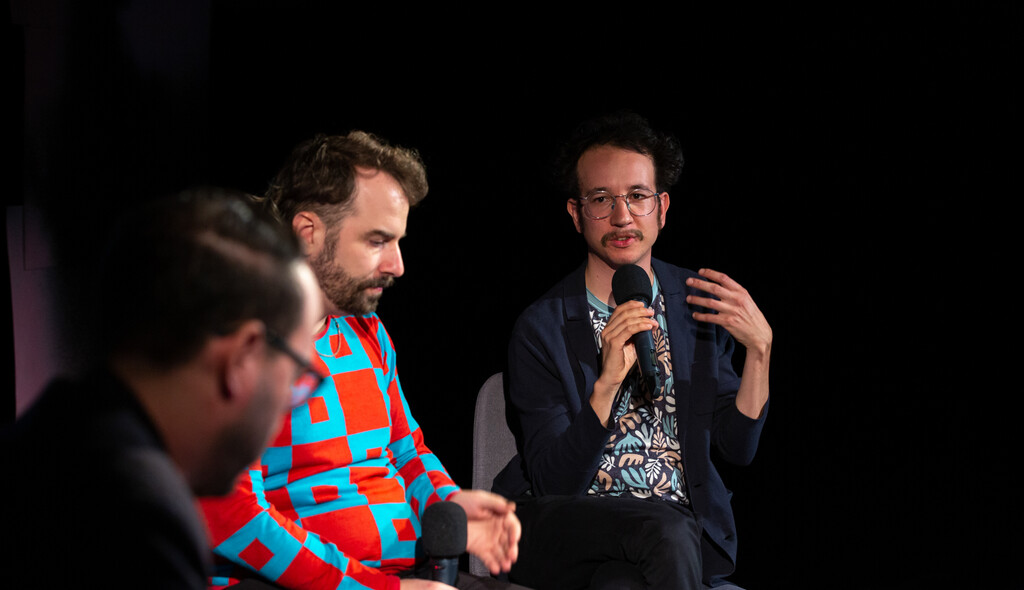
© Radek Lavička for Ji.hlava IDFF
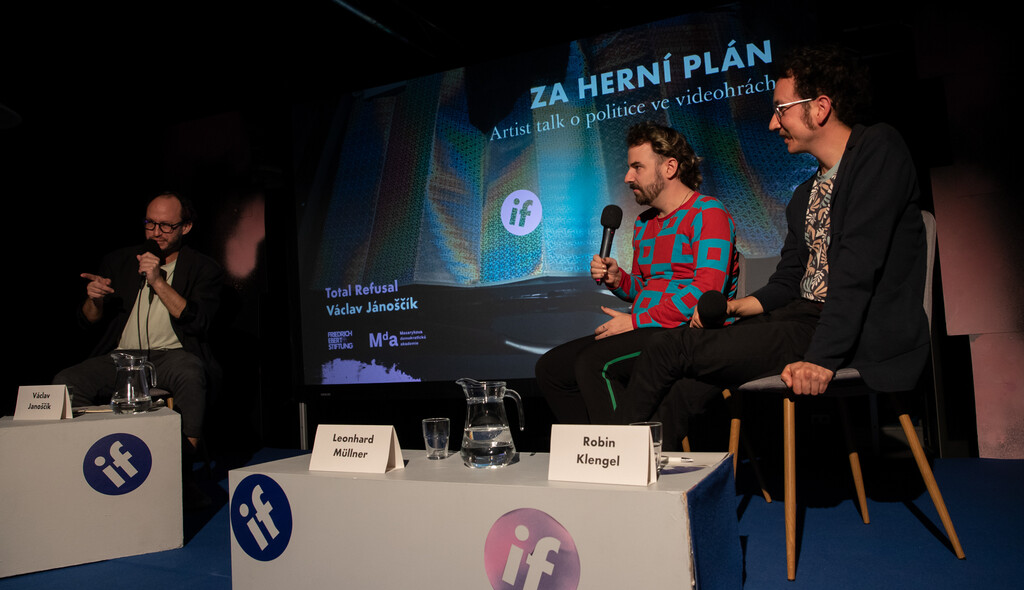
© Radek Lavička for Ji.hlava IDFF
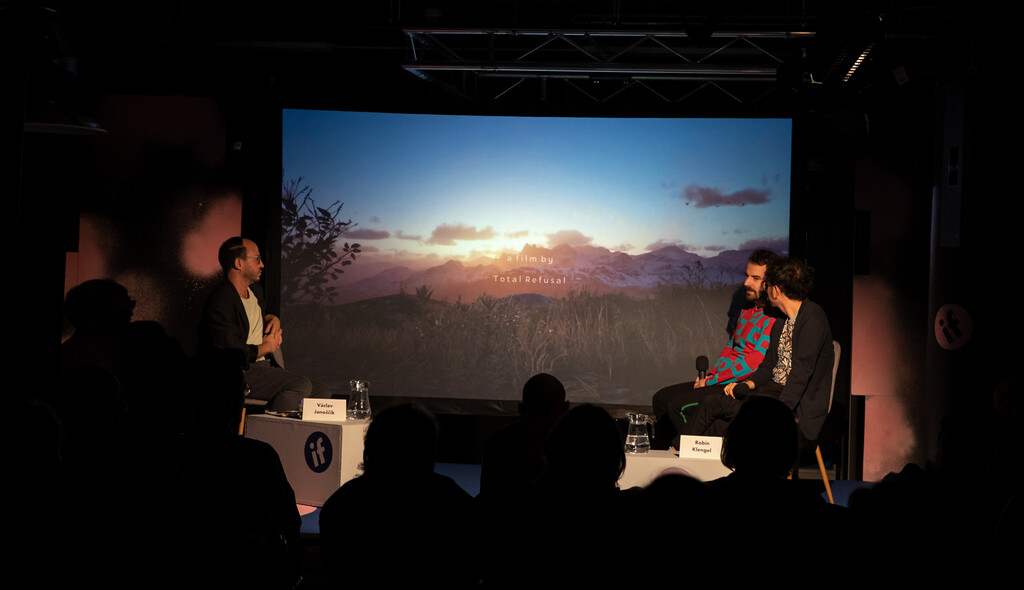
© Radek Lavička for Ji.hlava IDFF
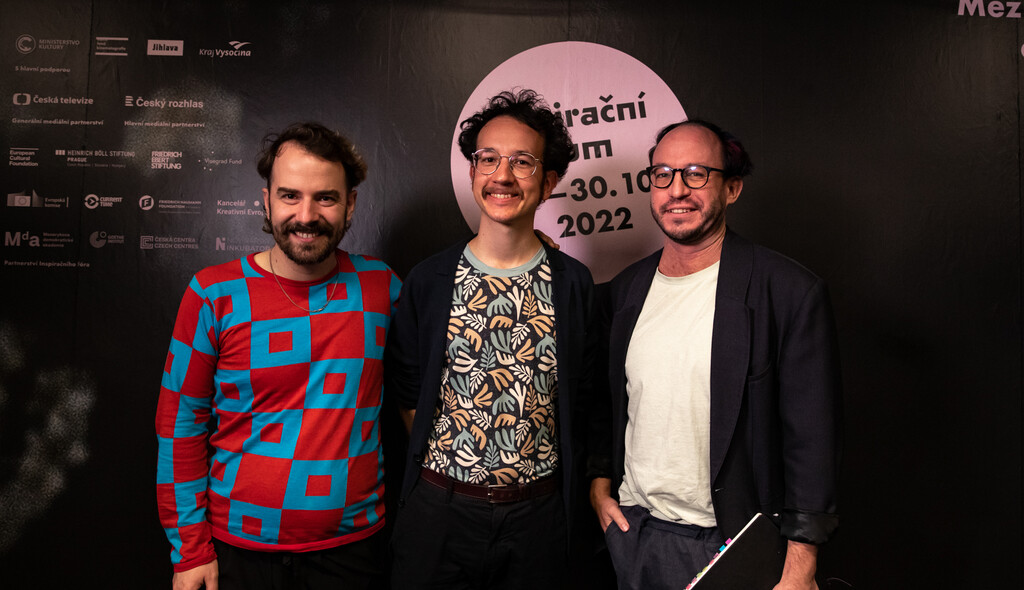
© Radek Lavička for Ji.hlava IDFF
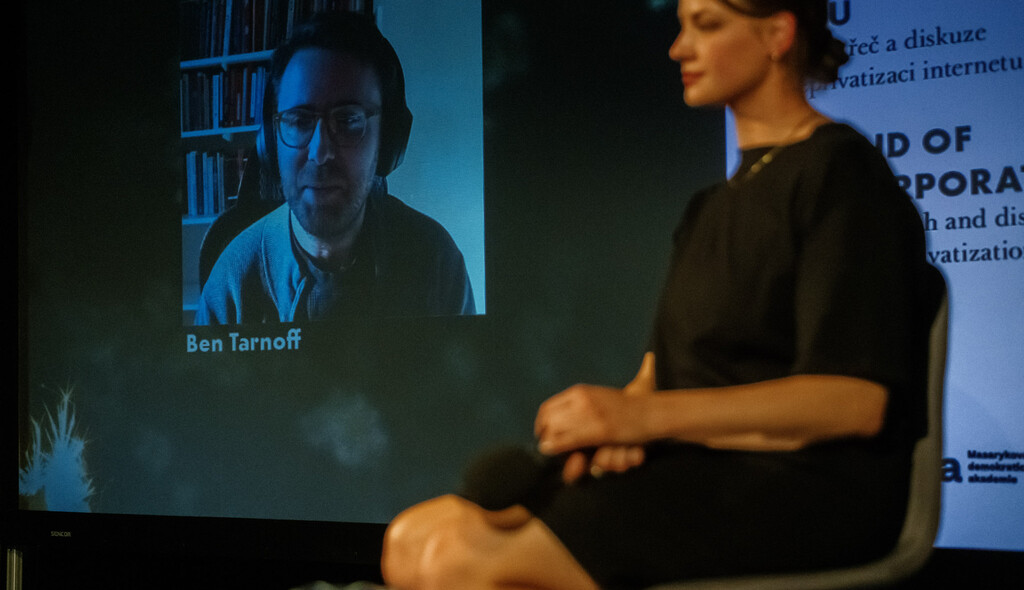
© Jan Hromádko for Ji.hlava IDFF
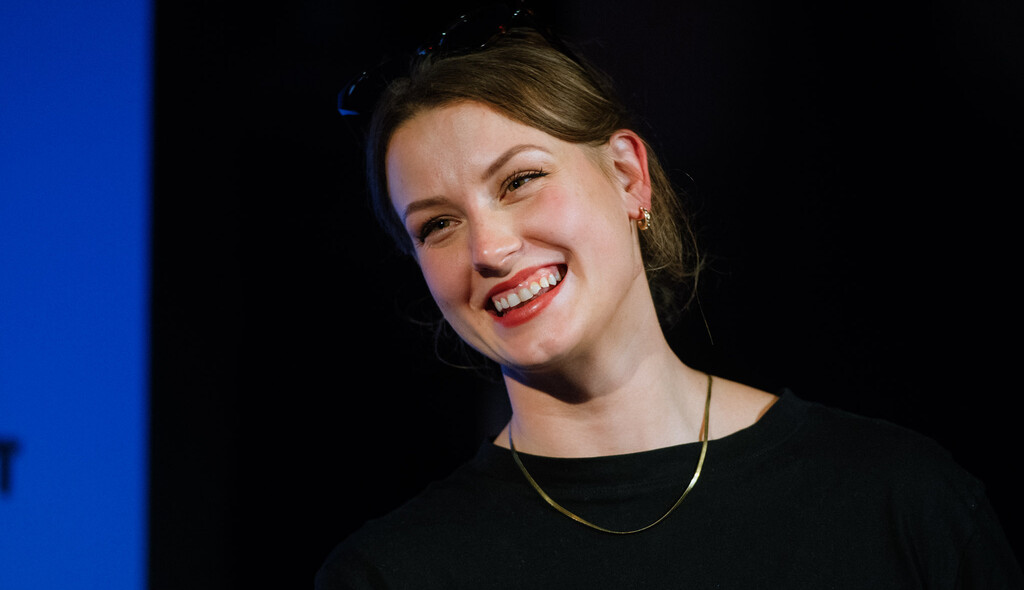
© Jan Hromádko for Ji.hlava IDFF
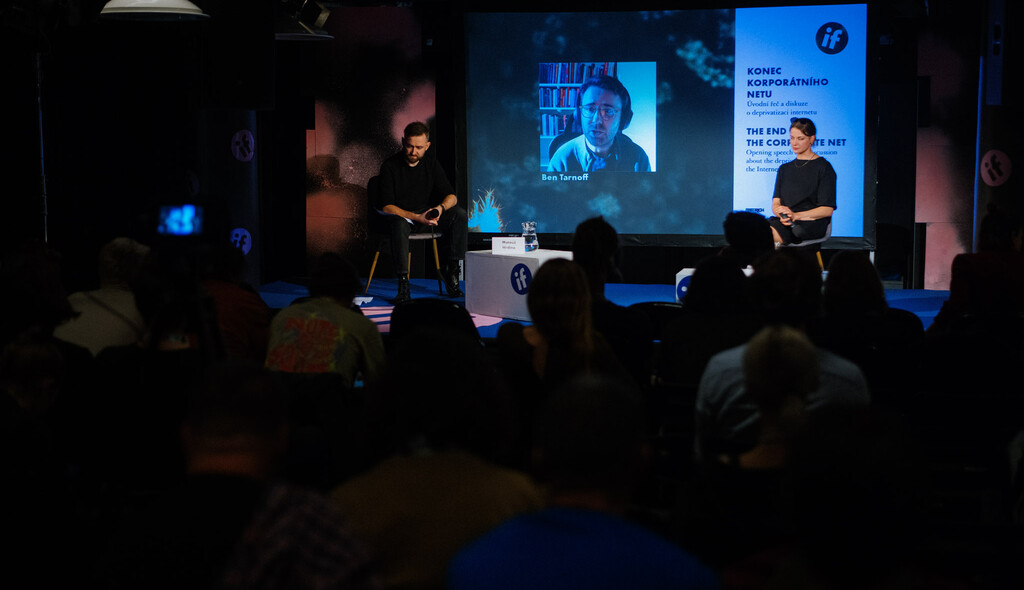
© Jan Hromádko for Ji.hlava IDFF
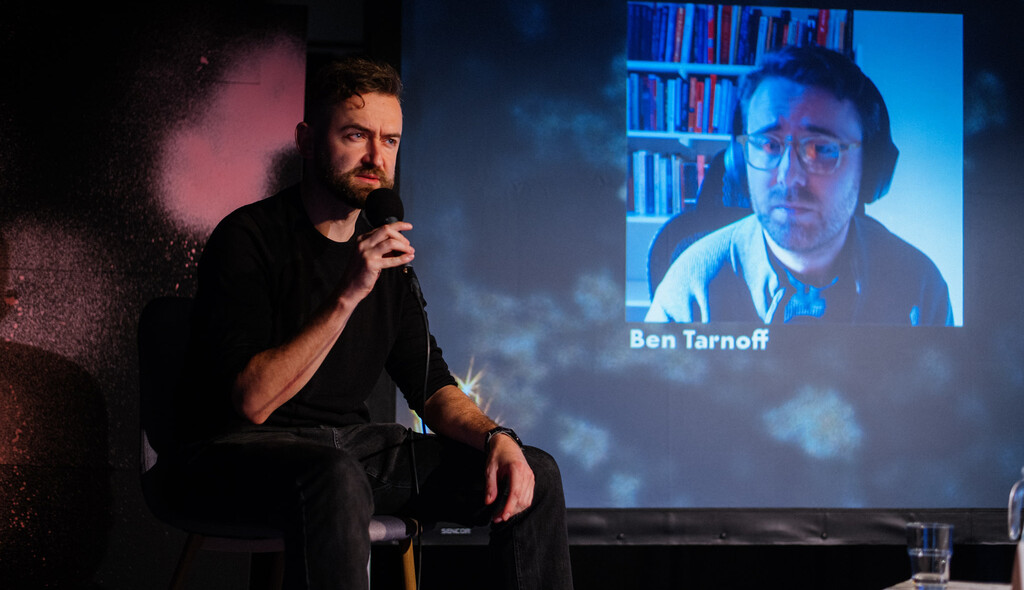
© Jan Hromádko for Ji.hlava IDFF
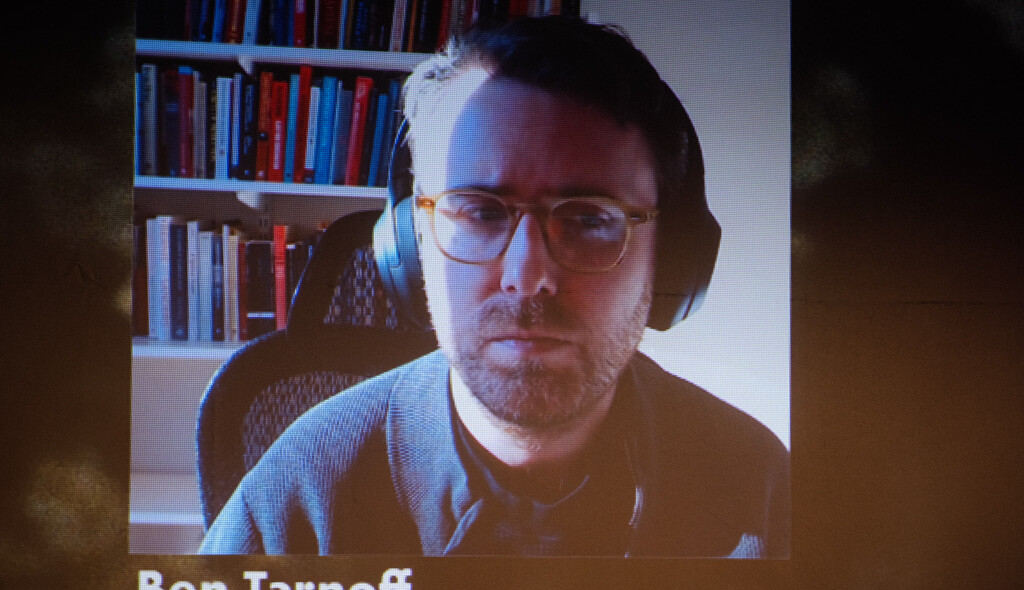
© Jan Hromádko for Ji.hlava IDFF
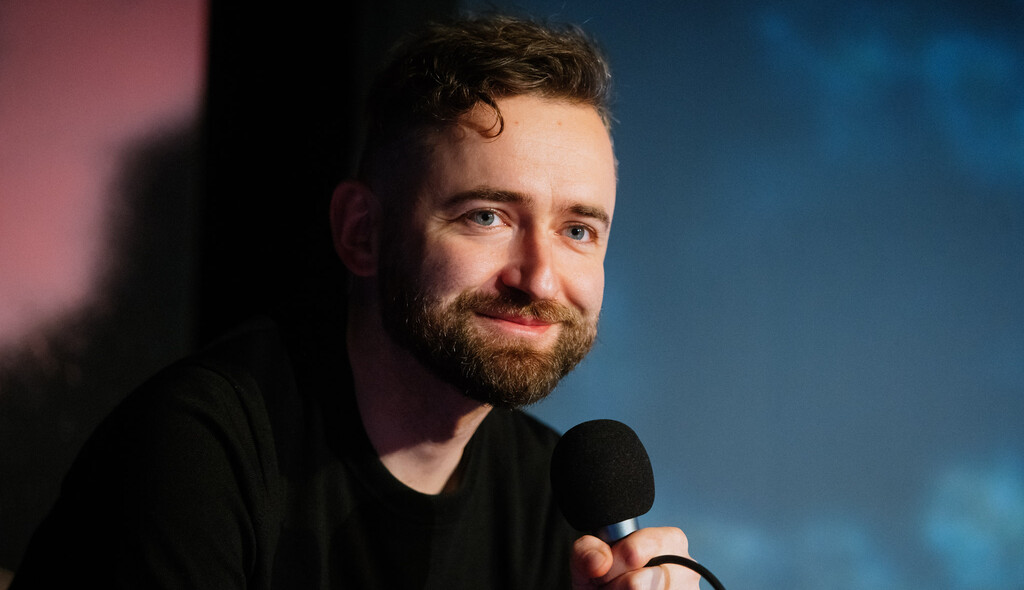
© Jan Hromádko for Ji.hlava IDFF
On Thursday, October 27, we asked at the Forum what risks are posed by our dwelling in online space and to what extent the future is digital. Artist András Cséfalvay speculated on the history in both directions as part of the Inner World Screenshots of the Future. Political scientist Daniel Leisegang, game theoretician Leonhard Müllner, political scientist Kateřina Smejkalová and anthropologist Marie Heřmanová answered the question of who shapes the contemporary internet and according to what logic in the debate Moving Online. Writer Ben Tarnoff and founder of the Internet Institute Tereza Bartoníčková reflected on the possibilities of the internet’s regulation and disclosure together with journalist Matouš Hrdina in the programme block The End of the Corporate Net. The sustainable digital economy was the subject of a debate between historian Aaron Benanav, reporter Klára Votavová and cultural critic Ondřej Trhoň entitled Political Economy of the Digital. And we looked Behind the Game Plan with Robin Klengel and Leonhard Müllner from the art group Total Refusal, who discussed with philosopher Václav Janoščík the emancipatory potential of subversive video game playing and more.
STOP / What would happen if we stopped growth?
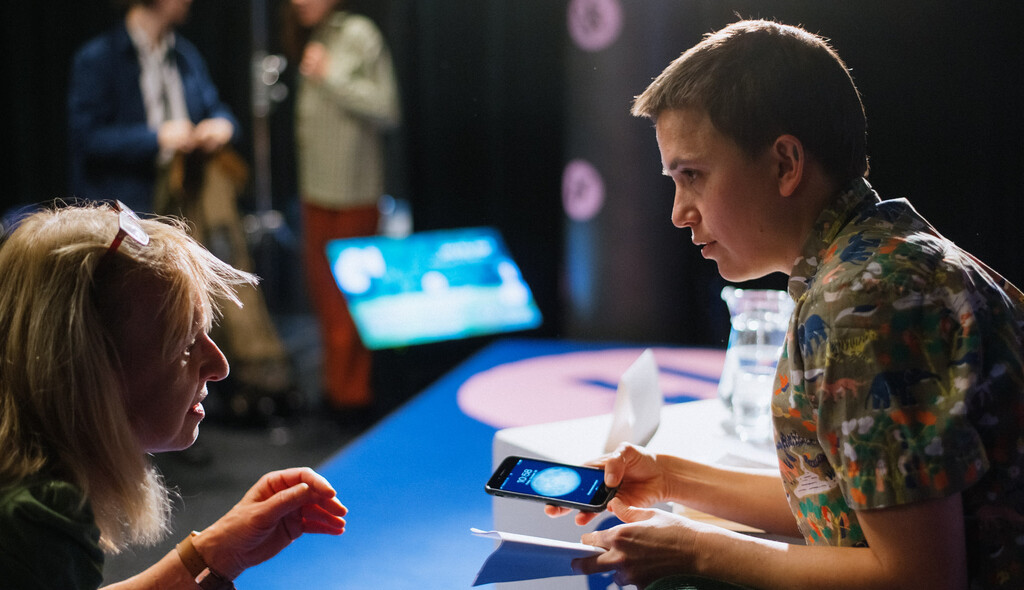
© Jan Hromádko for Ji.hlava IDFF
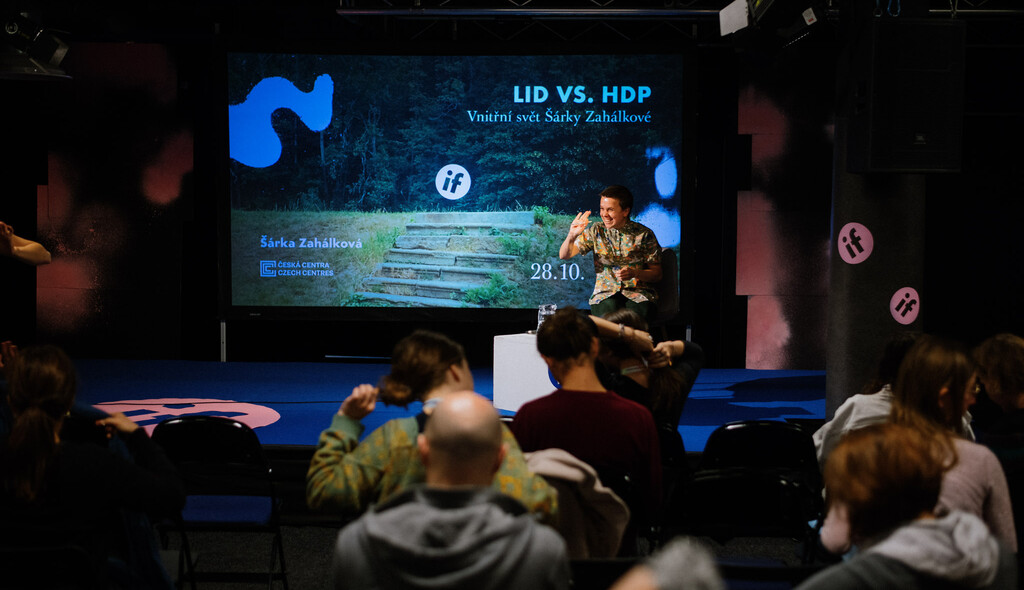
© Jan Hromádko for Ji.hlava IDFF
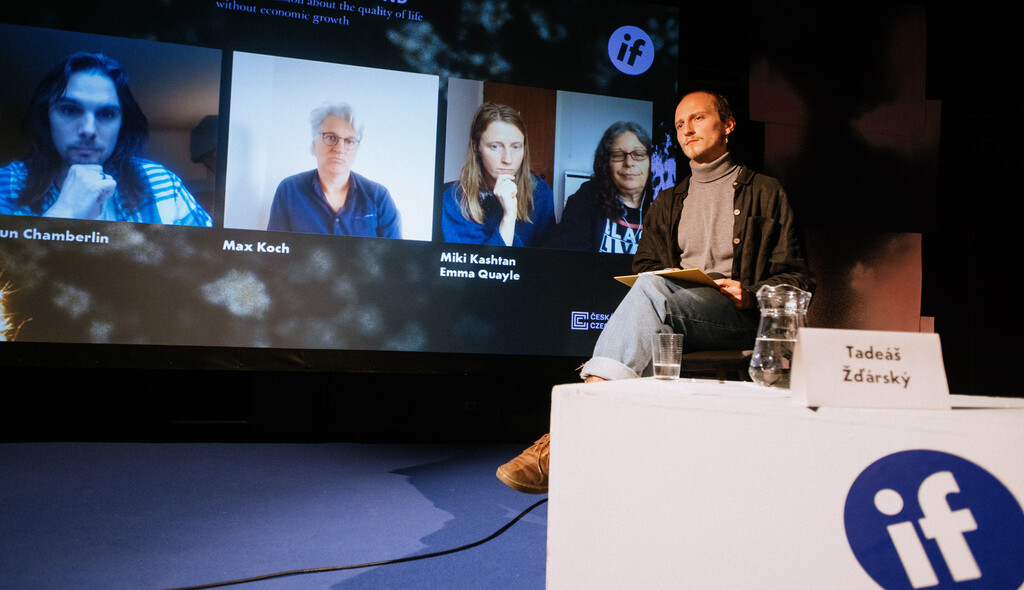
© Jan Hromádko for Ji.hlava IDFF
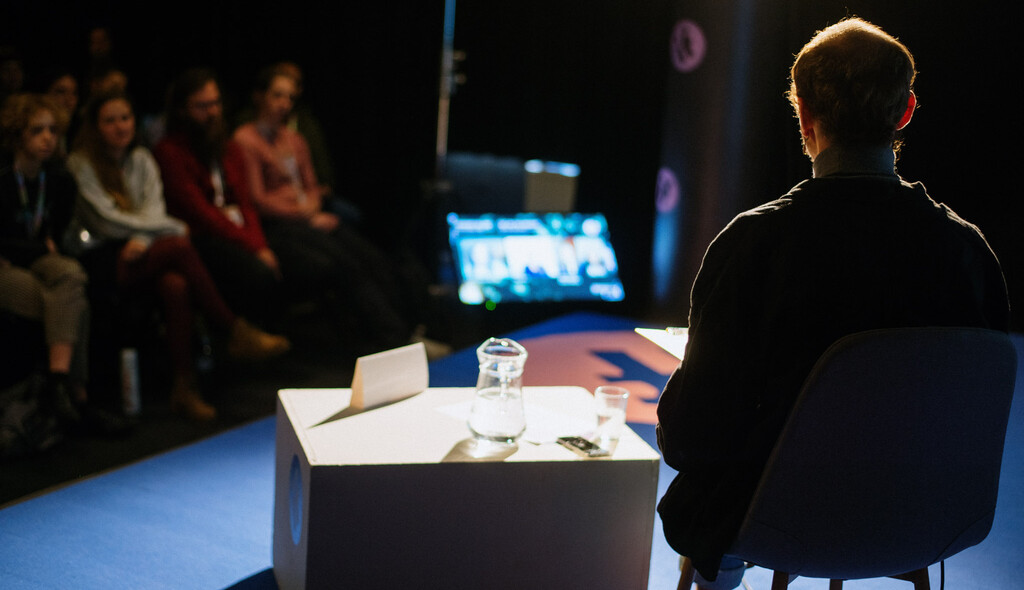
© Jan Hromádko for Ji.hlava IDFF
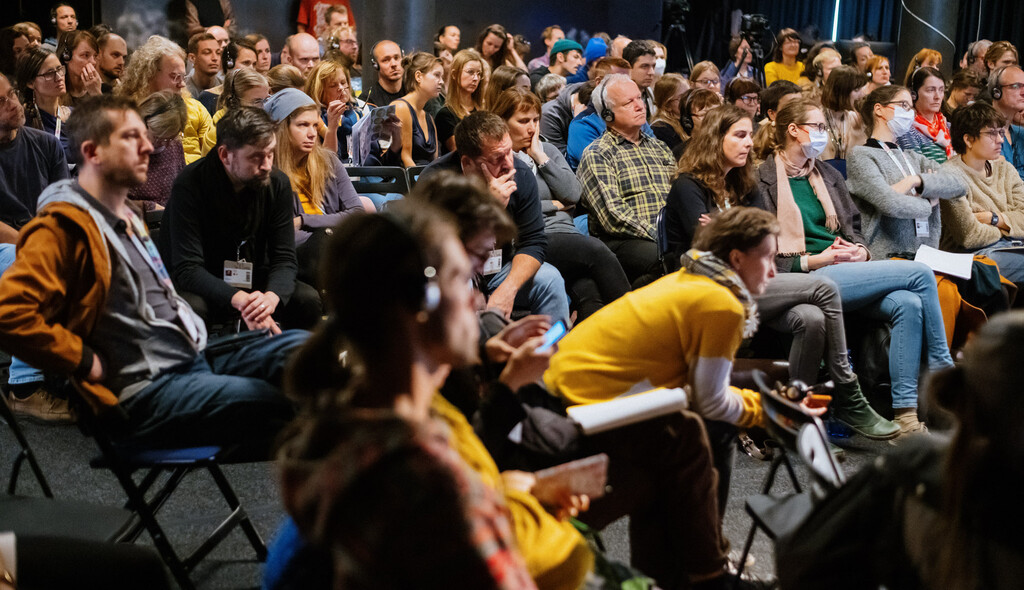
© Jan Hromádko for Ji.hlava IDFF
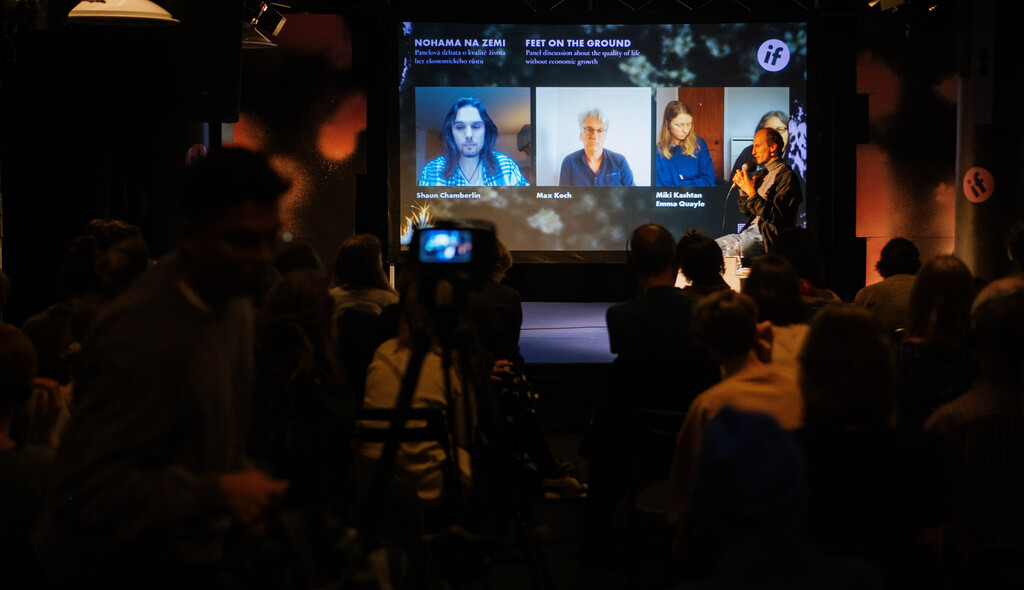
© Jan Hromádko for Ji.hlava IDFF
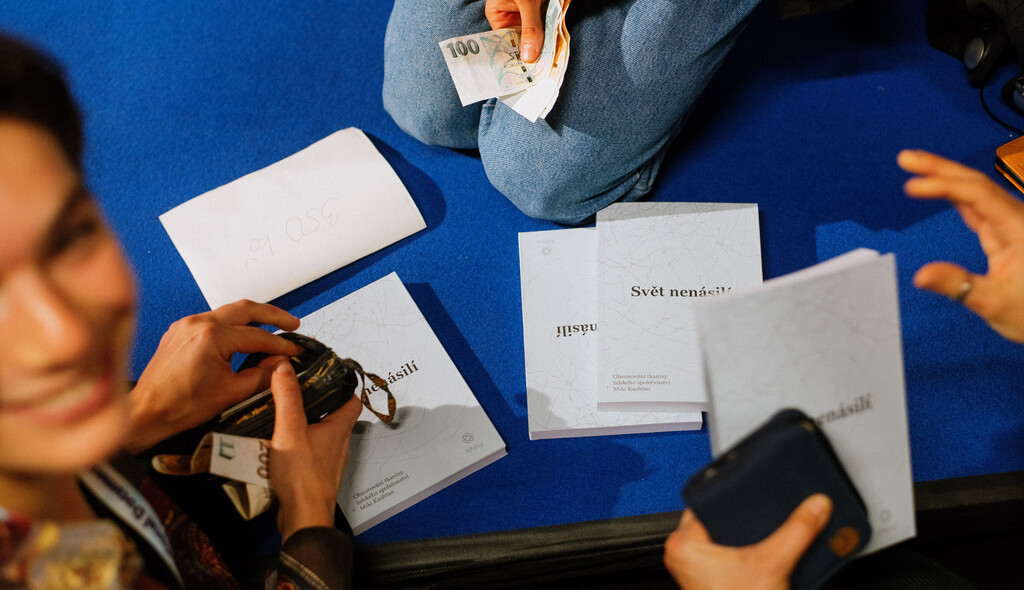
© Jan Hromádko for Ji.hlava IDFF
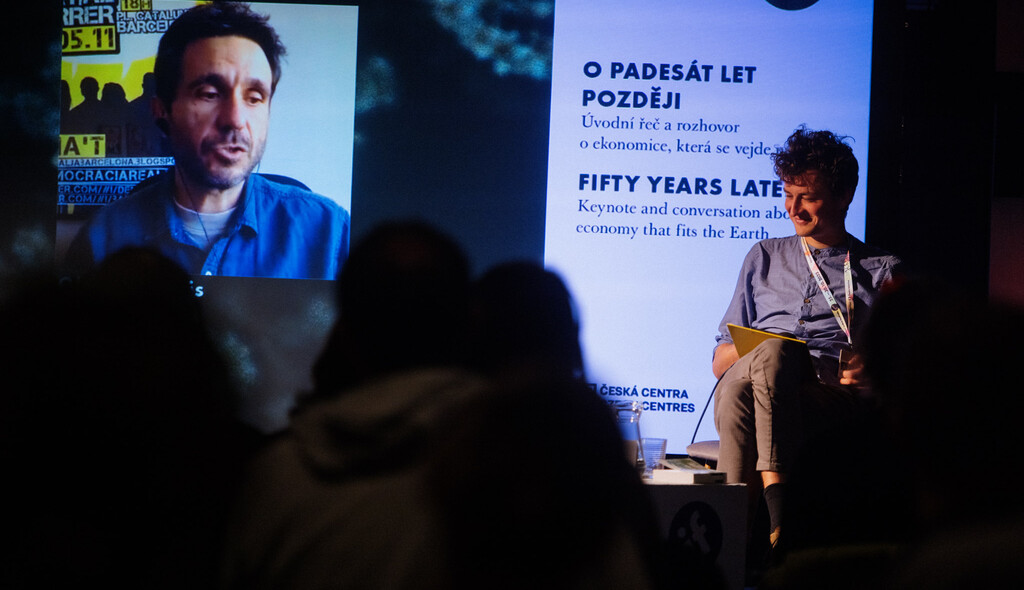
© Jan Hromádko for Ji.hlava IDFF
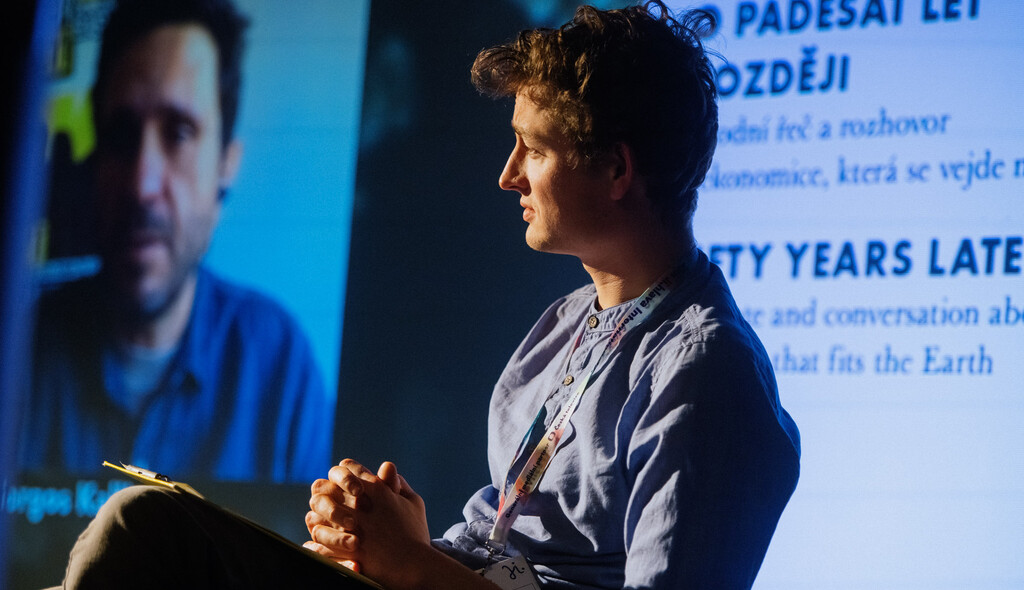
© Jan Hromádko for Ji.hlava IDFF
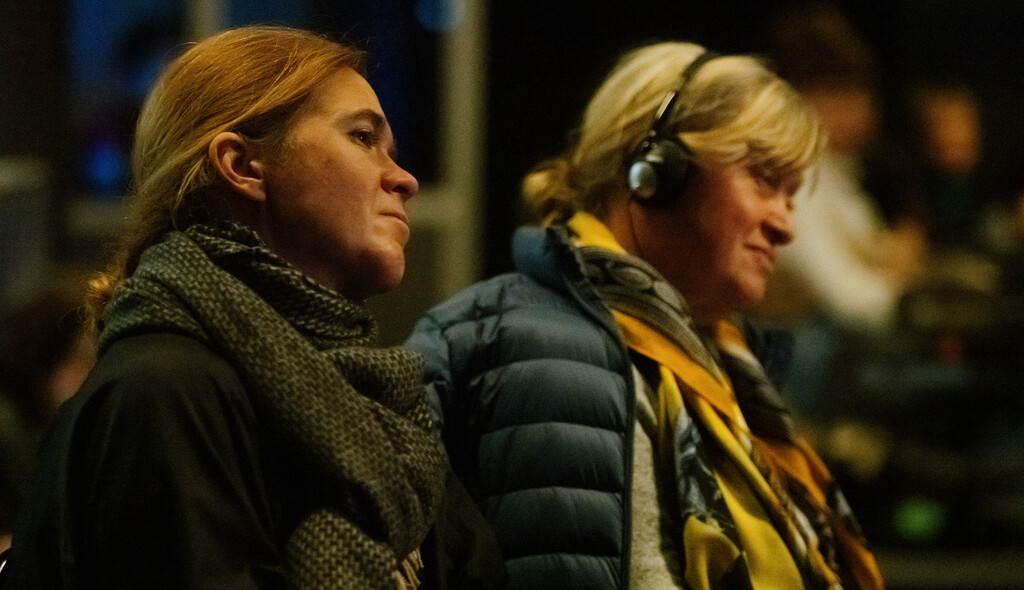
© Jan Hromádko for Ji.hlava IDFF
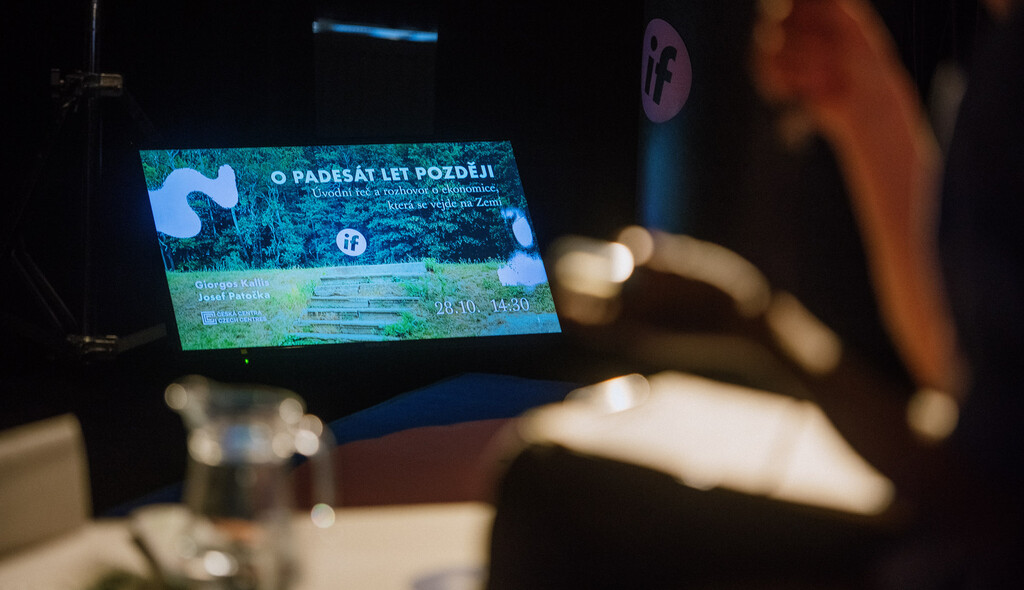
© Jan Hromádko for Ji.hlava IDFF
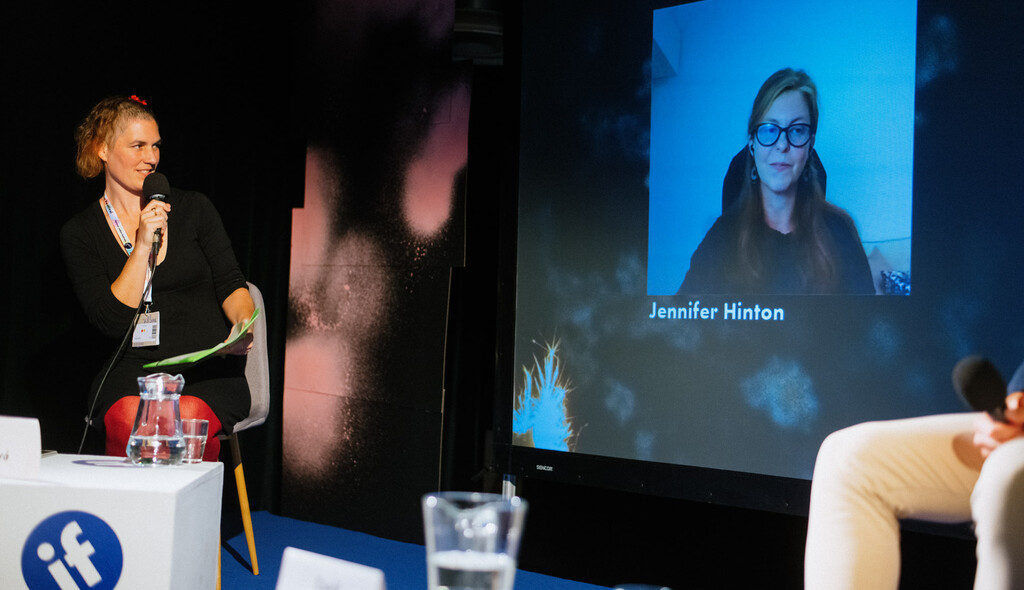
© Jan Hromádko for Ji.hlava IDFF
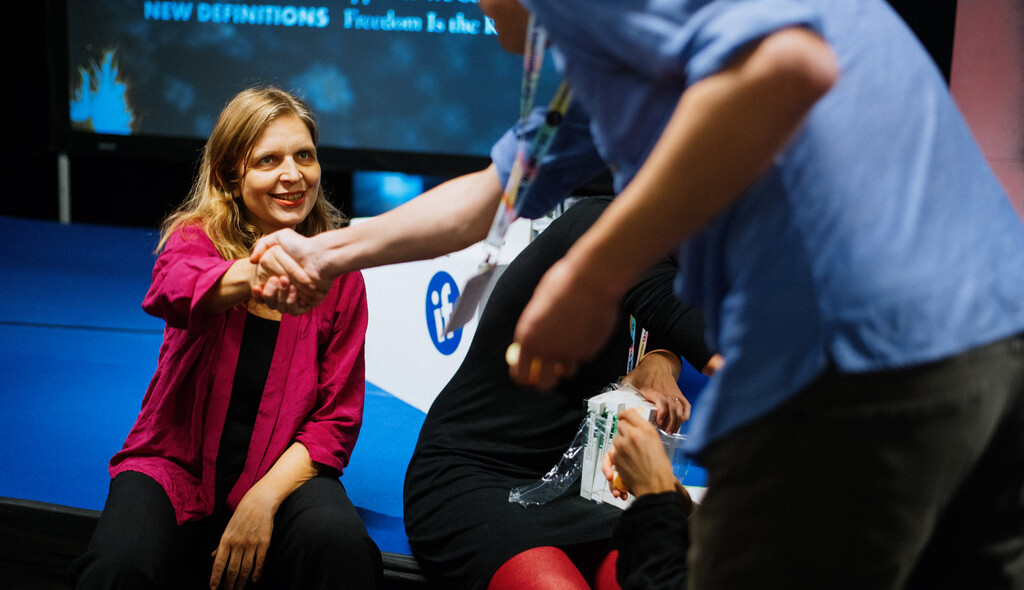
© Jan Hromádko for Ji.hlava IDFF
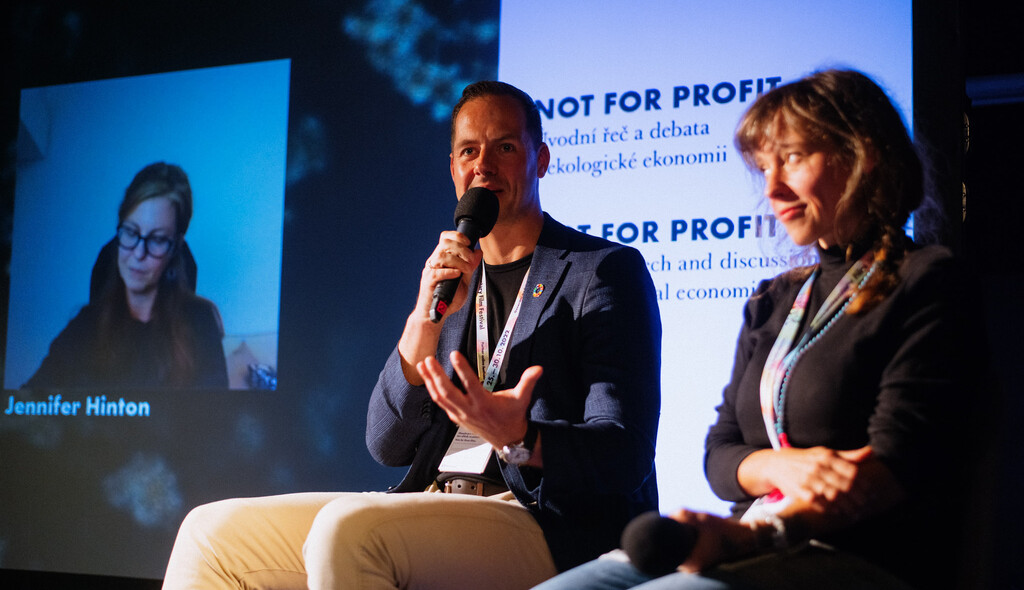
© Jan Hromádko for Ji.hlava IDFF
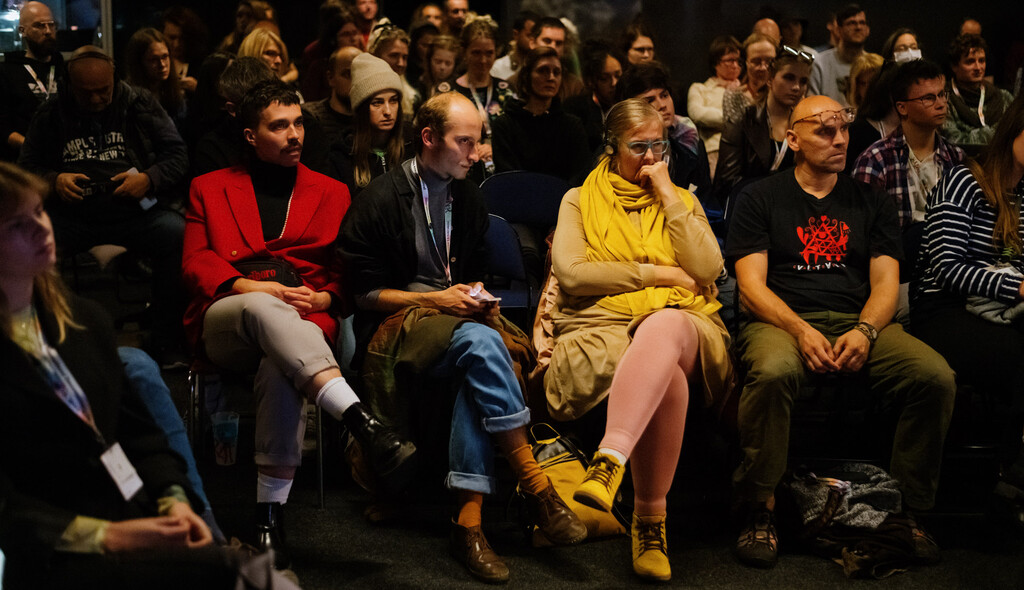
© Jan Hromádko for Ji.hlava IDFF
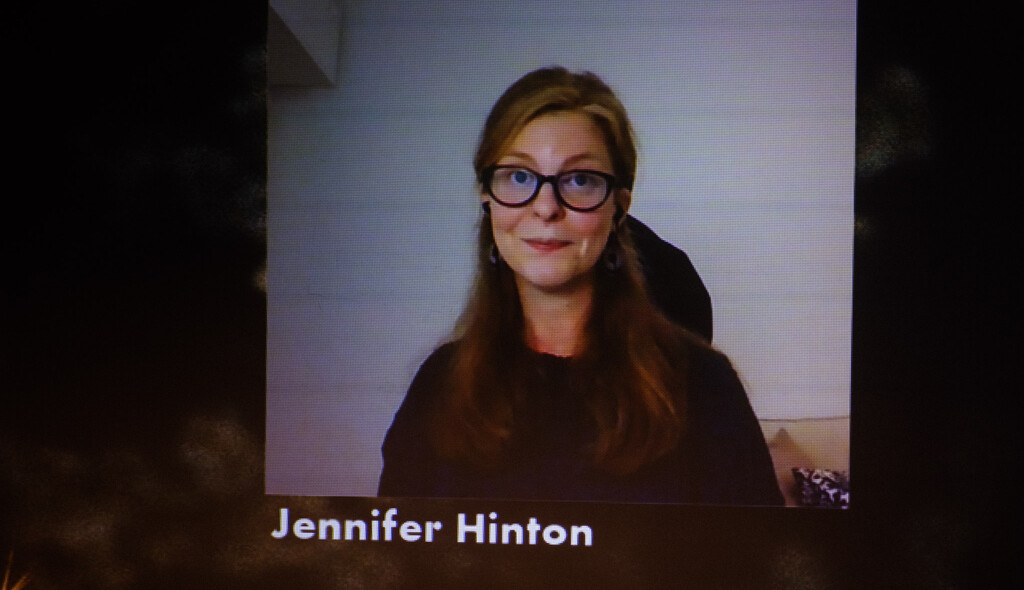
© Jan Hromádko for Ji.hlava IDFF
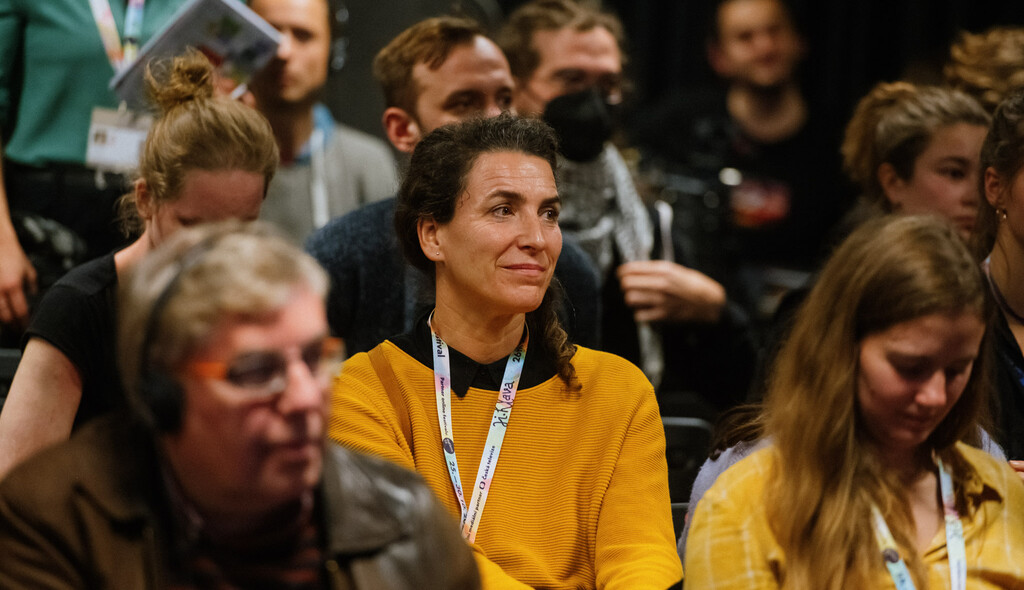
© Jan Hromádko for Ji.hlava IDFF
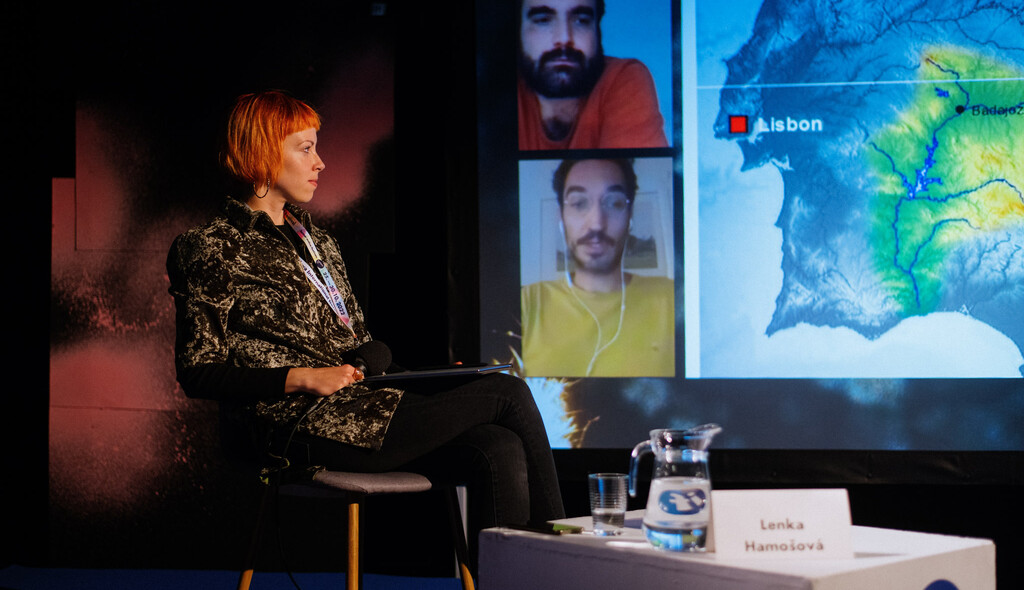
© Jan Hromádko for Ji.hlava IDFF
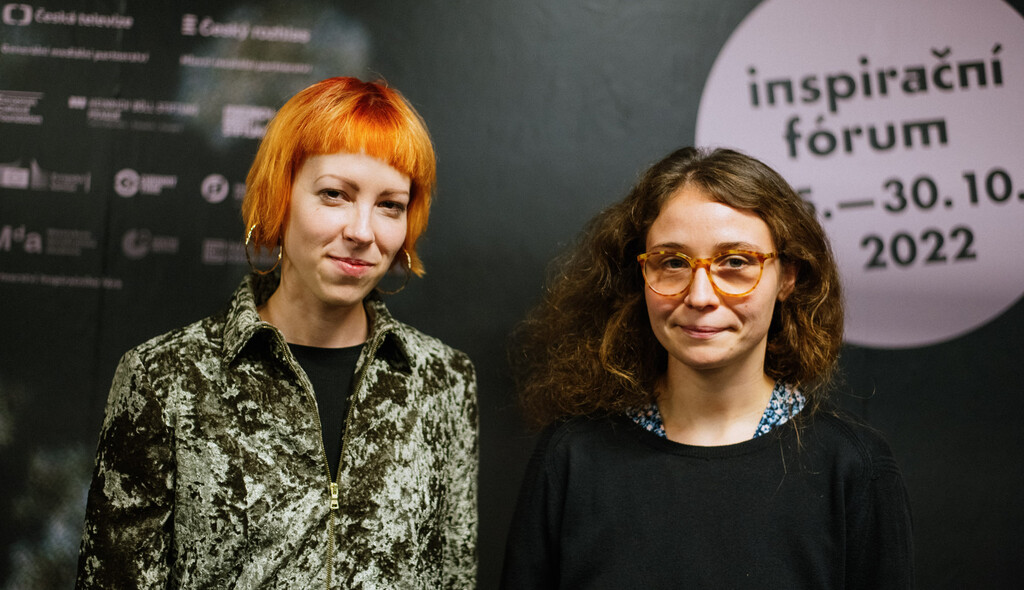
© Jan Hromádko for Ji.hlava IDFF
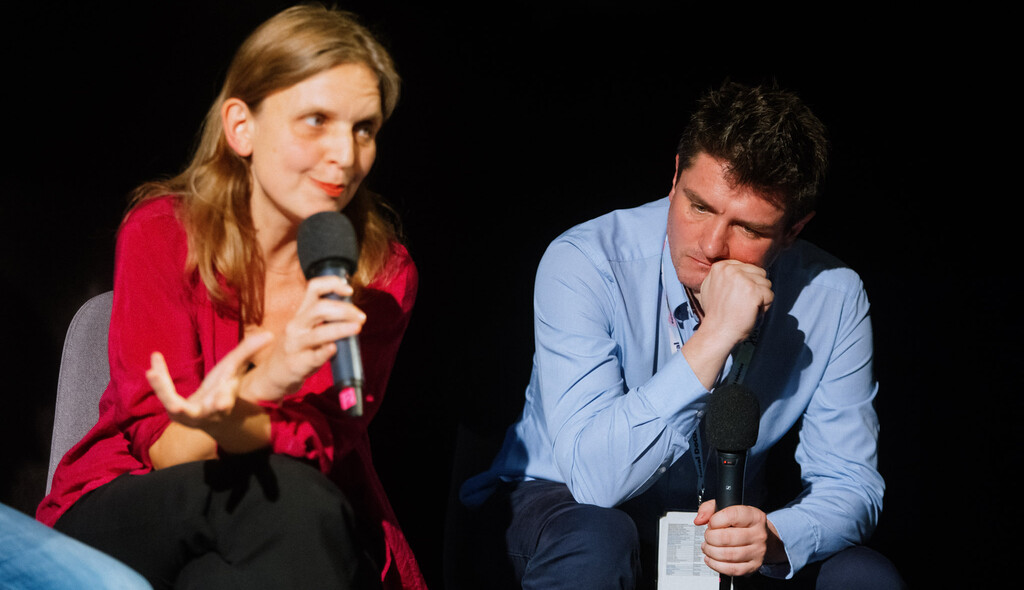
© Jan Hromádko for Ji.hlava IDFF
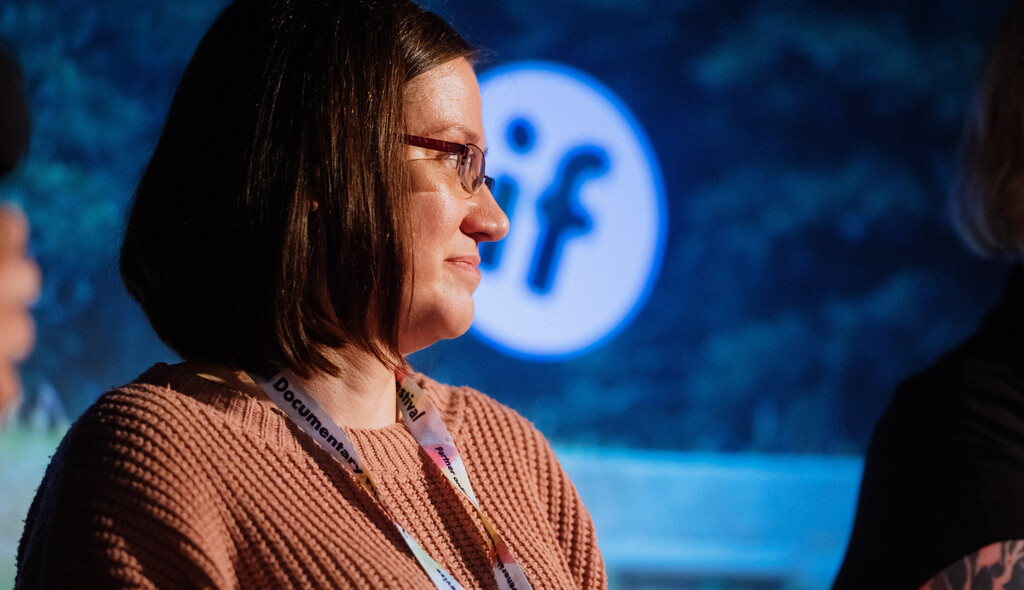
© Jan Hromádko for Ji.hlava IDFF
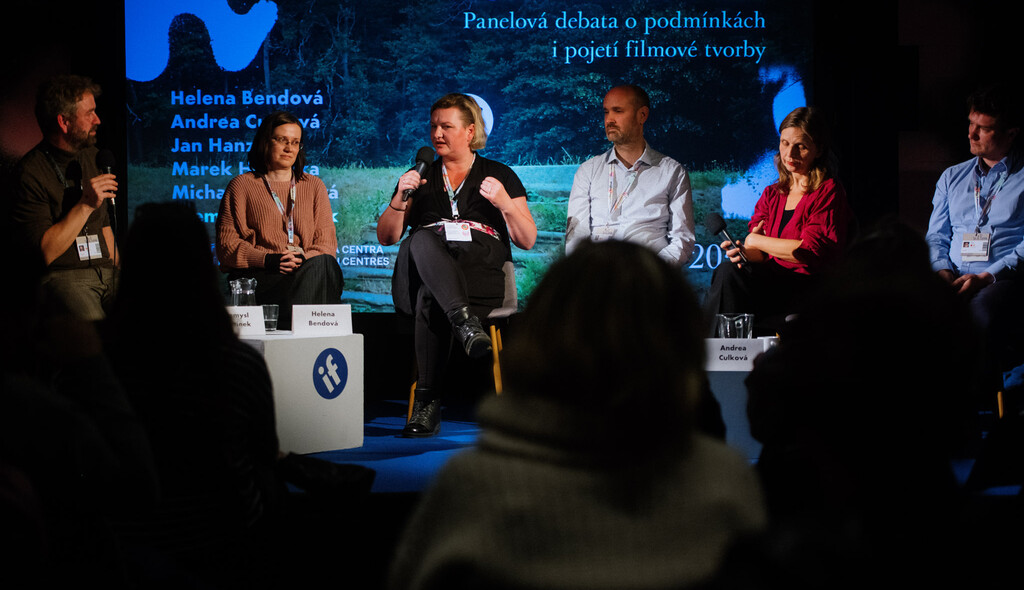
© Jan Hromádko for Ji.hlava IDFF
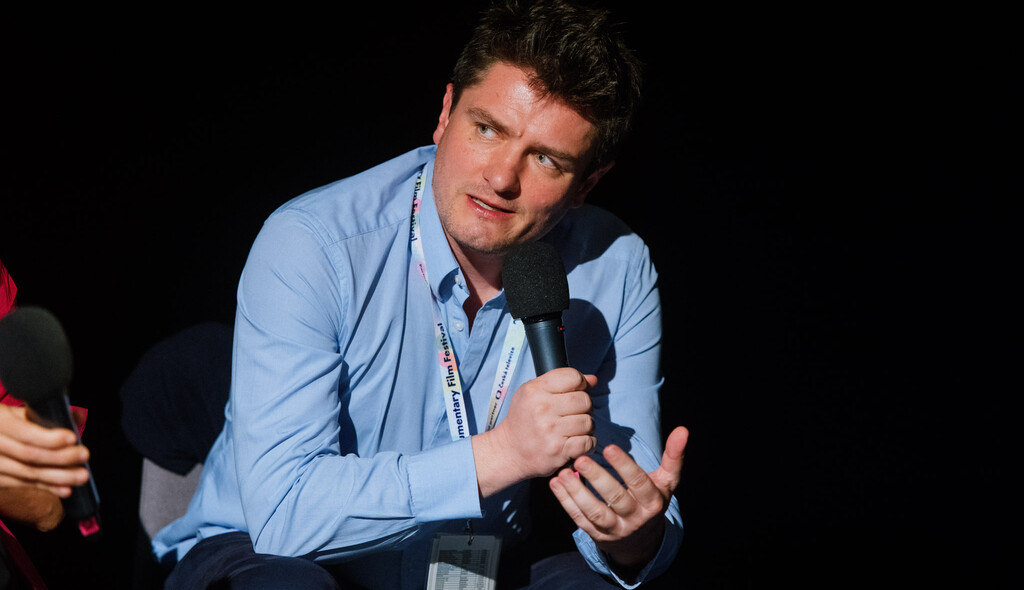
© Jan Hromádko for Ji.hlava IDFF
Friday, October 28, was dedicated to the idea of non-growth at the Forum. The Inner World of artist Šarka Zahálková's People vs. GDP focused on the negative effects of pressure on productivity in the area of culture. Quality of life without economic growth was discussed in the following panel discussion Feet on the Ground by writer Shaun Chamberlin, non-violent communication trainers Miki Kashtan and Emma Quayle, sociologist Max Koch and popularizer of no-growth Tadeáš Žďárský. In an interview Fifty Years Later with researcher Josef Patočka, ecological economist Giorgos Kallis asked whether, half a century after the publication of the famous Club of Rome report, it was time to realise that market freedom does not mean people's freedom. The opening speech by ecological economist Jennifer Hinton and the subsequent debate with Cyril Klepek, CEO of green-tech startup Cyrkl, sustainable design entrepreneur Michaela Linda Thomas and environmentalist Eva Fraňková addressed the question of Not for Profit business. Participants in the interdisciplinary research project Inspiration Forum Lab presented their artistic and research projects on the topic of limits to growth. The non-growth day was rounded off by a panel debate New Audiovision, in which Helena Bendová, Chair of the Council of the State Cinematography Fund, documentary filmmaker Andrea Culková, film scholar Jan Hanzlík, director of Ji.hlava IDFF Marek Hovorka, project manager of Greenfilming.cz Michaela Rýgrová and producer Přemysl Martinek discussed how green filmmaking is succeeding in our country.
NEW DEFINITIONS / Freedom is the real deal
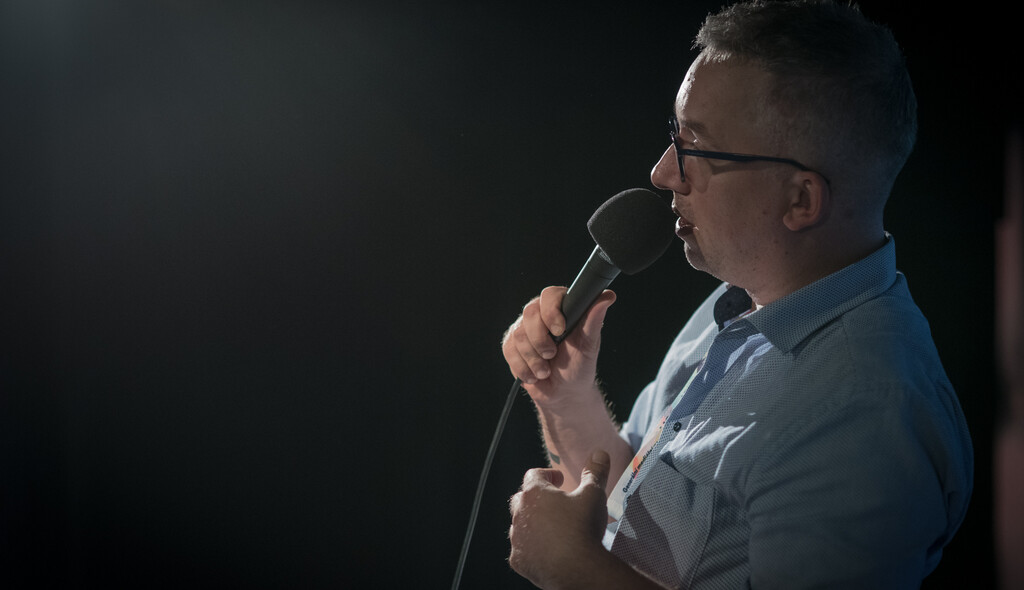
© Anna Šolcová for Ji.hlava IDFF
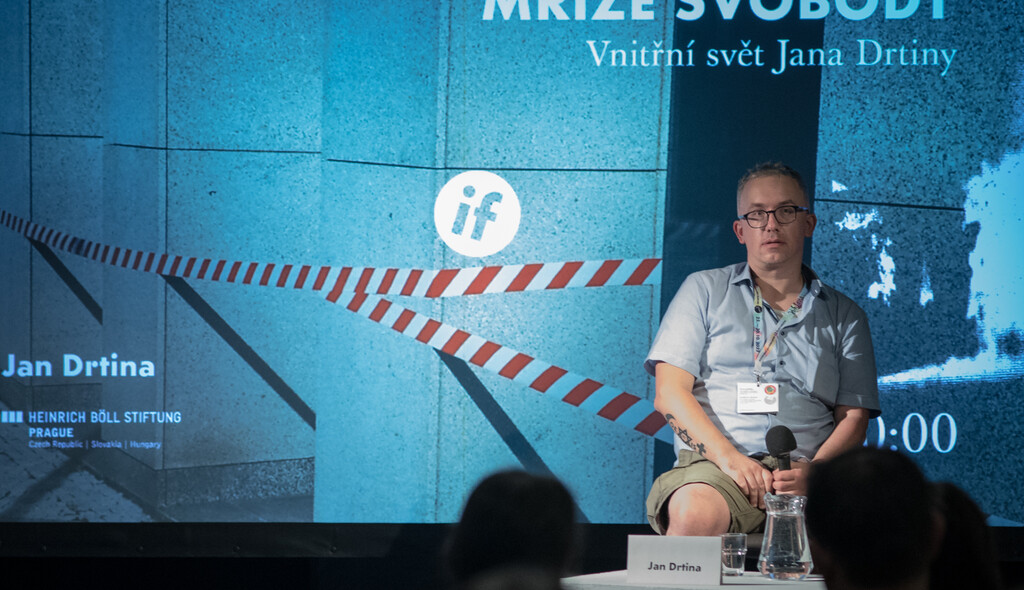
© Anna Šolcová for Ji.hlava IDFF
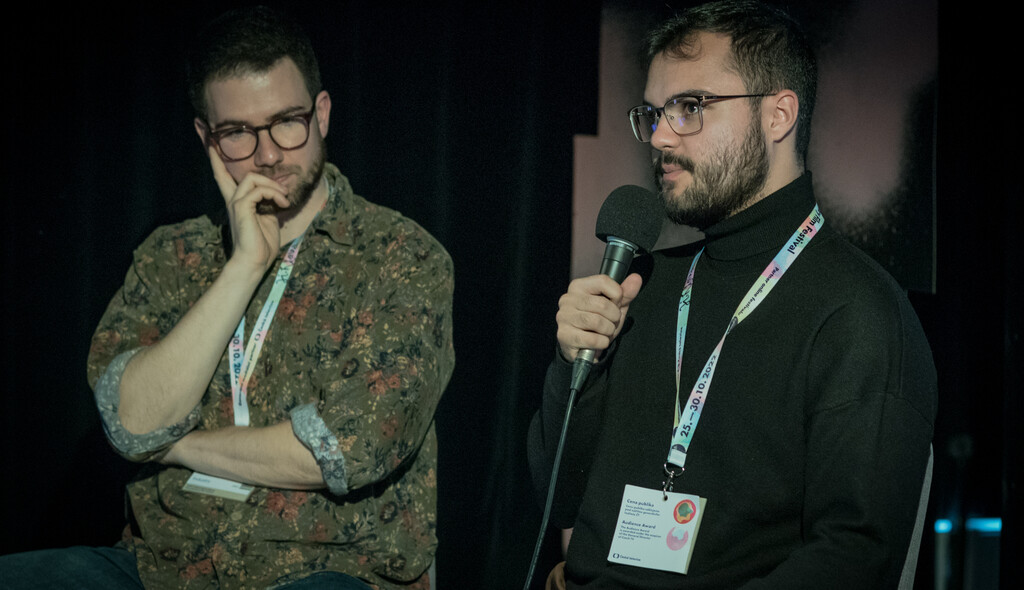
© Anna Šolcová for Ji.hlava IDFF
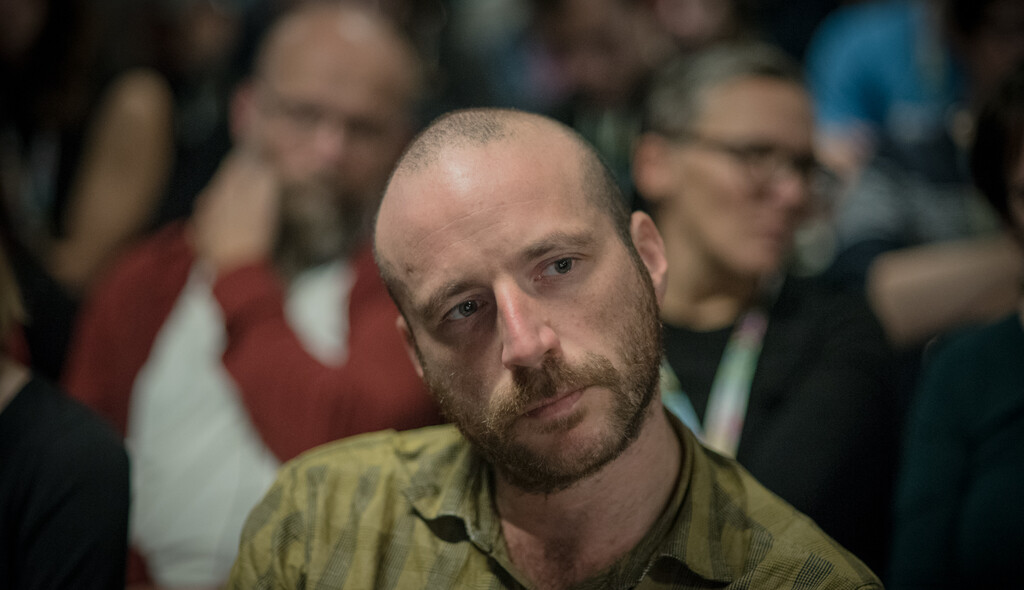
© Anna Šolcová for Ji.hlava IDFF
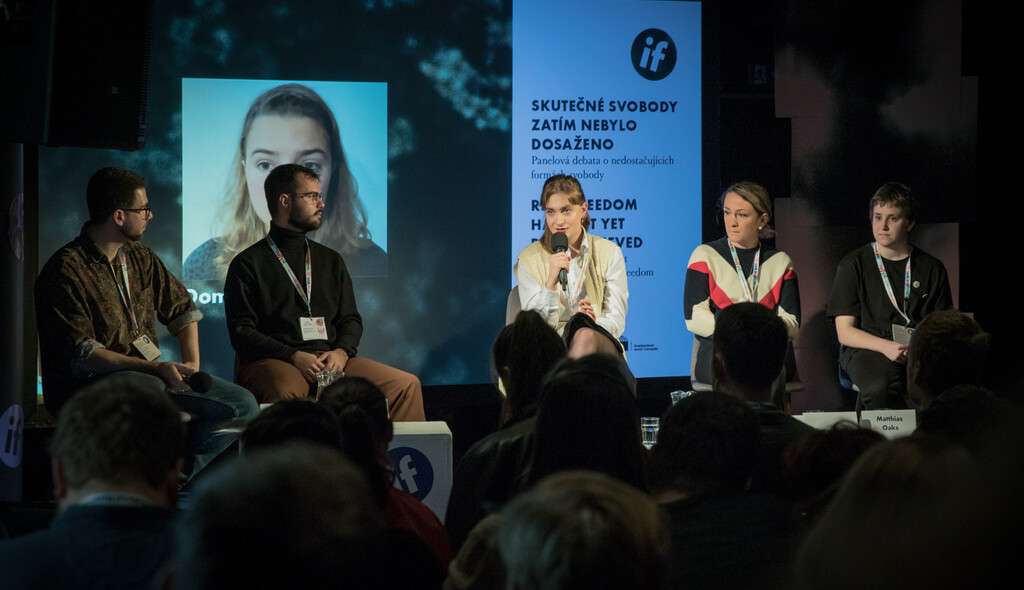
© Anna Šolcová for Ji.hlava IDFF
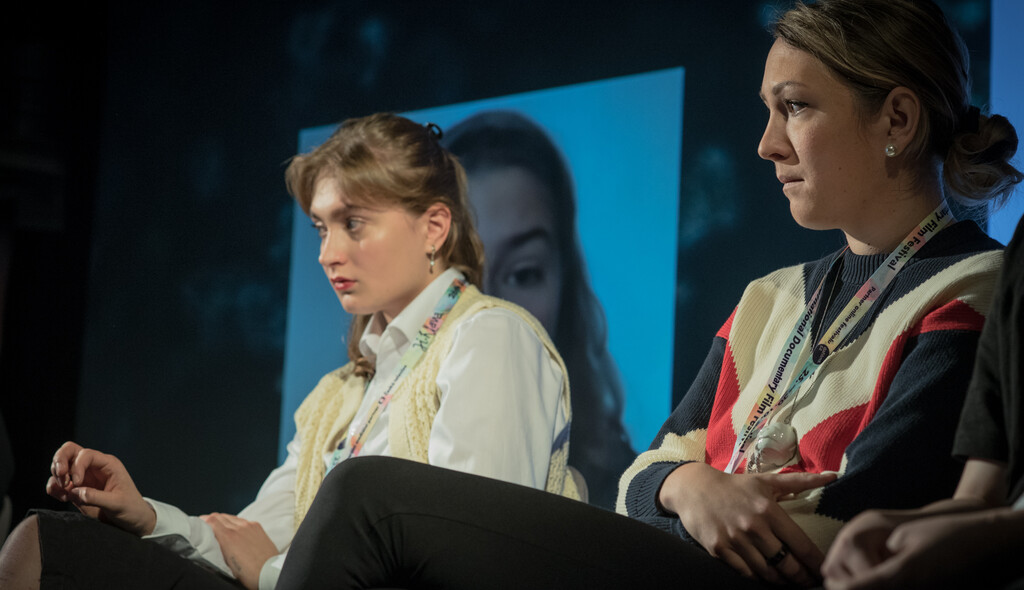
© Anna Šolcová for Ji.hlava IDFF
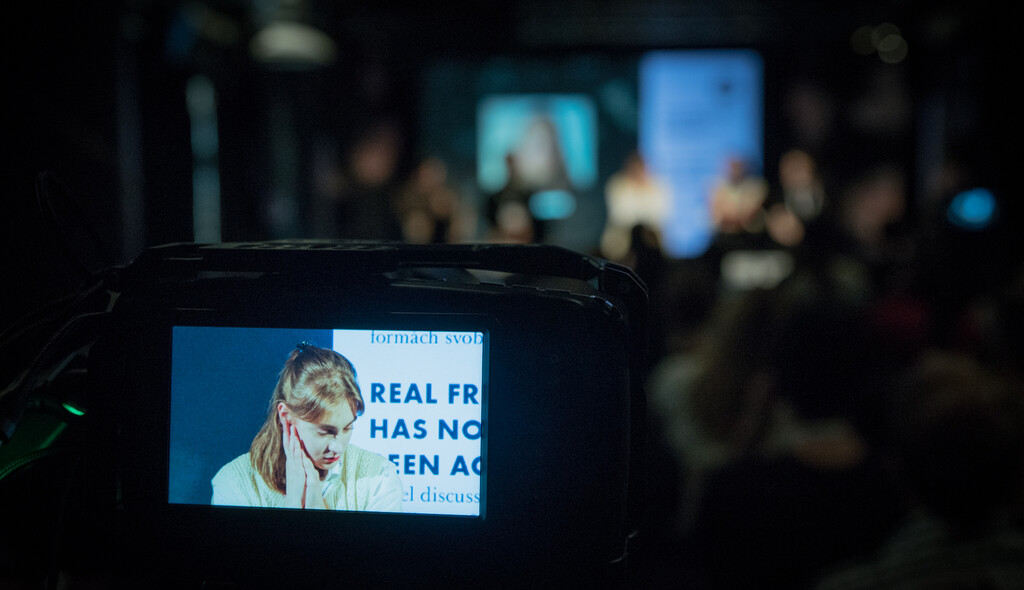
© Anna Šolcová for Ji.hlava IDFF
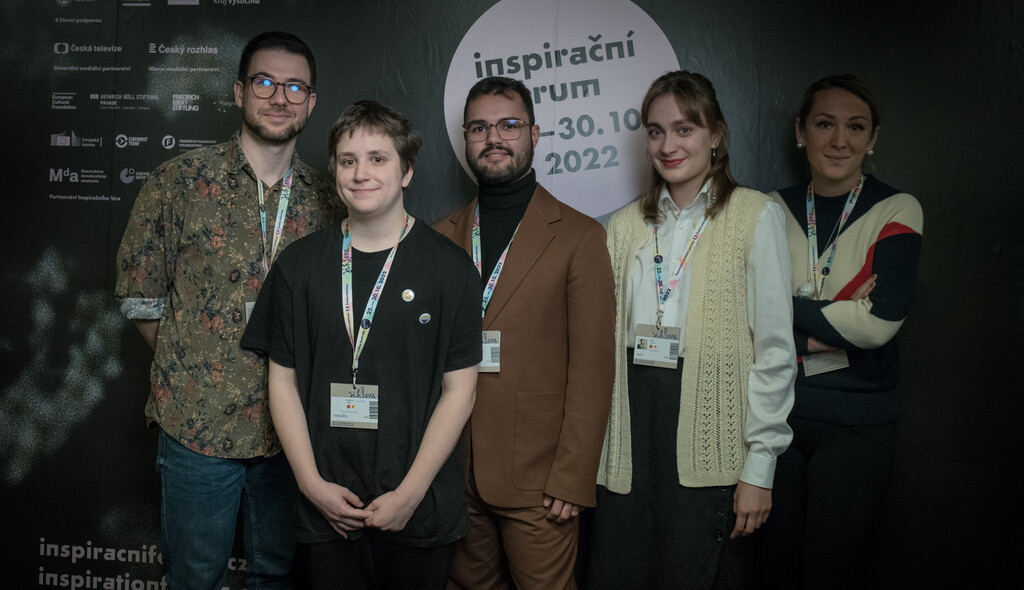
© Anna Šolcová for Ji.hlava IDFF
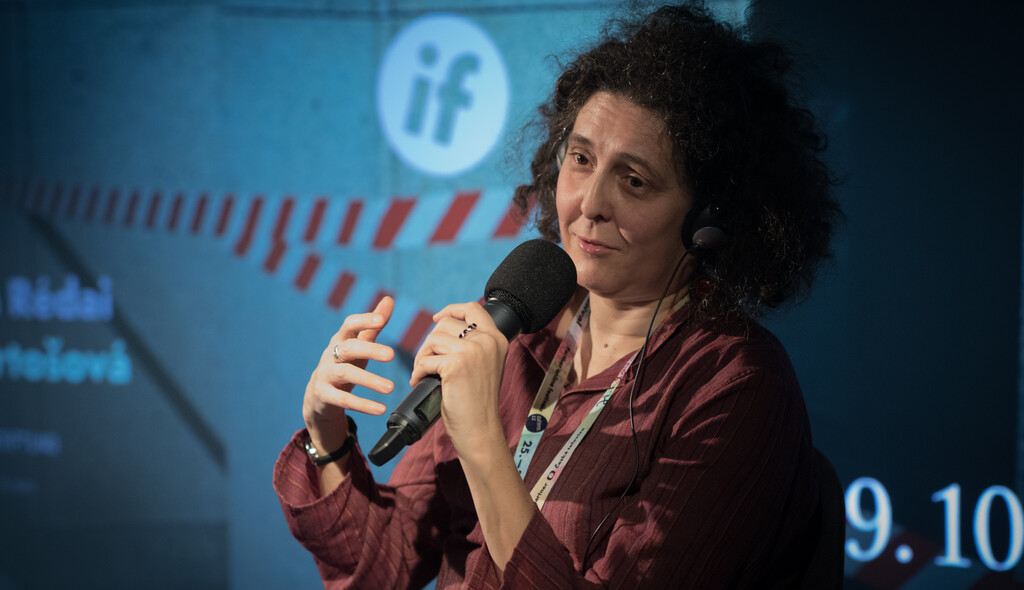
© Anna Šolcová for Ji.hlava IDFF
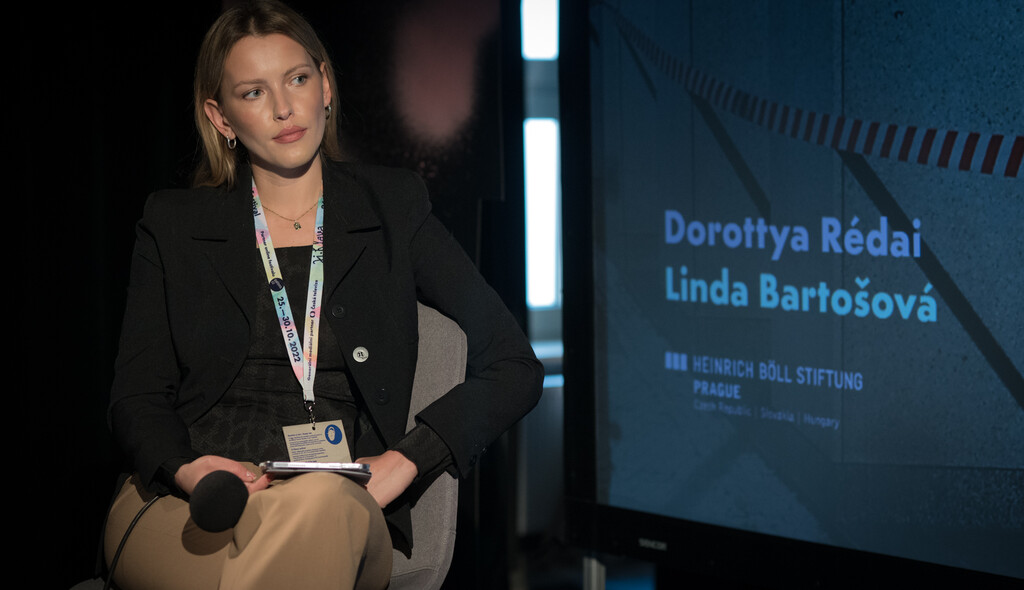
© Anna Šolcová for Ji.hlava IDFF
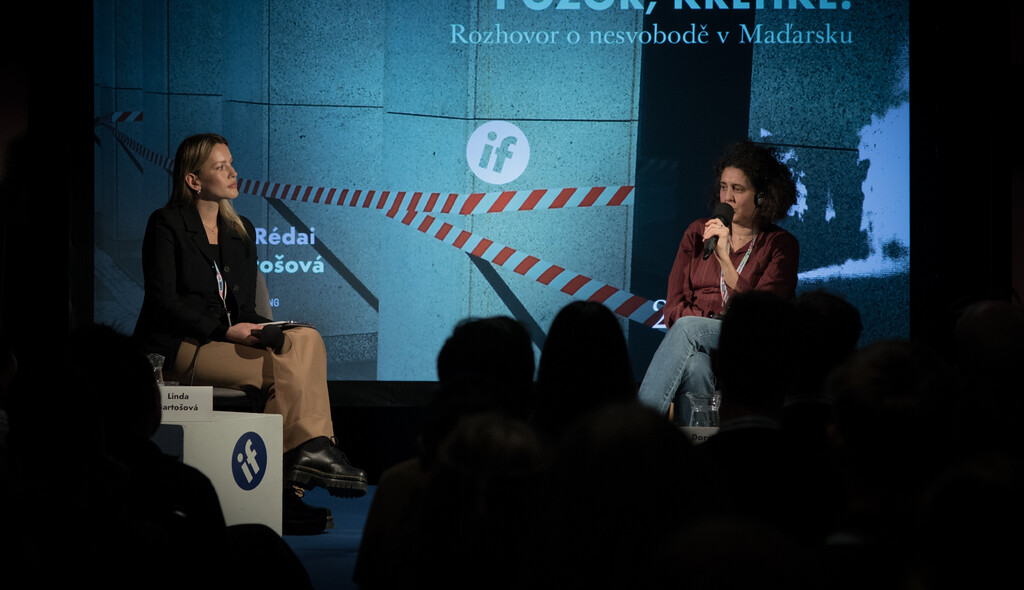
© Anna Šolcová for Ji.hlava IDFF
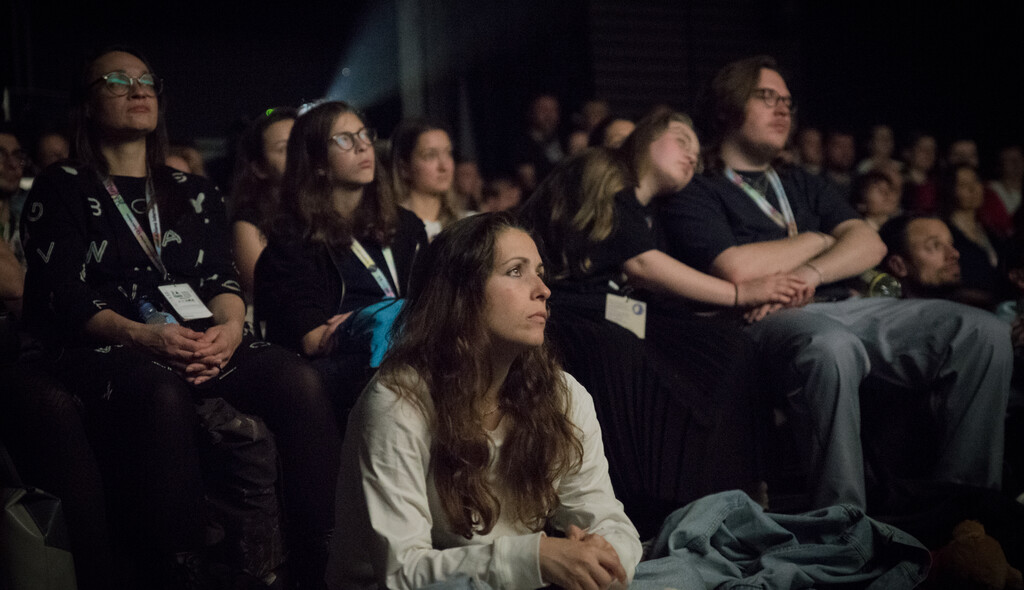
© Anna Šolcová for Ji.hlava IDFF
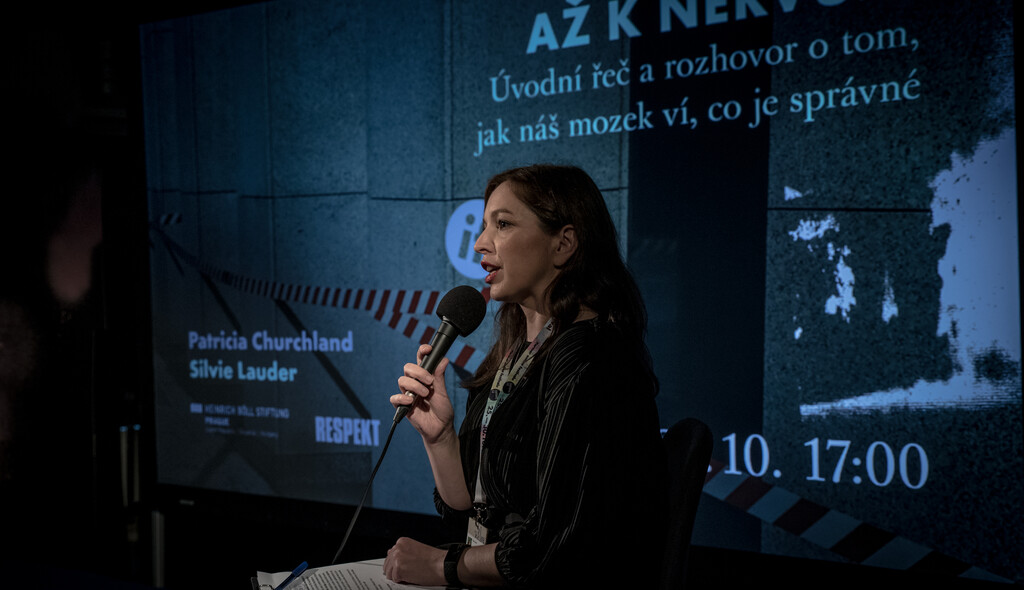
© Anna Šolcová for Ji.hlava IDFF
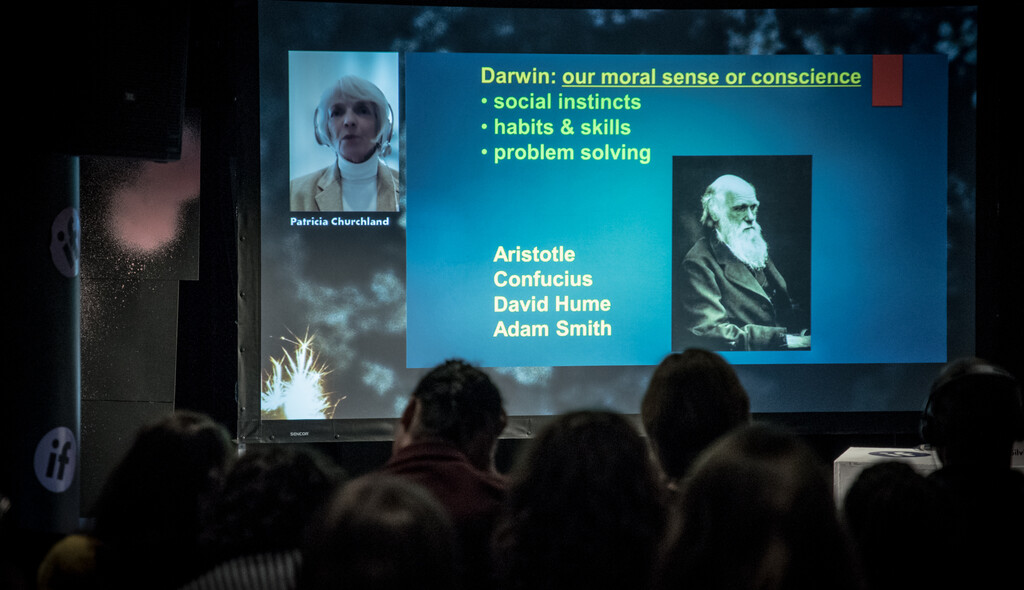
© Anna Šolcová for Ji.hlava IDFF
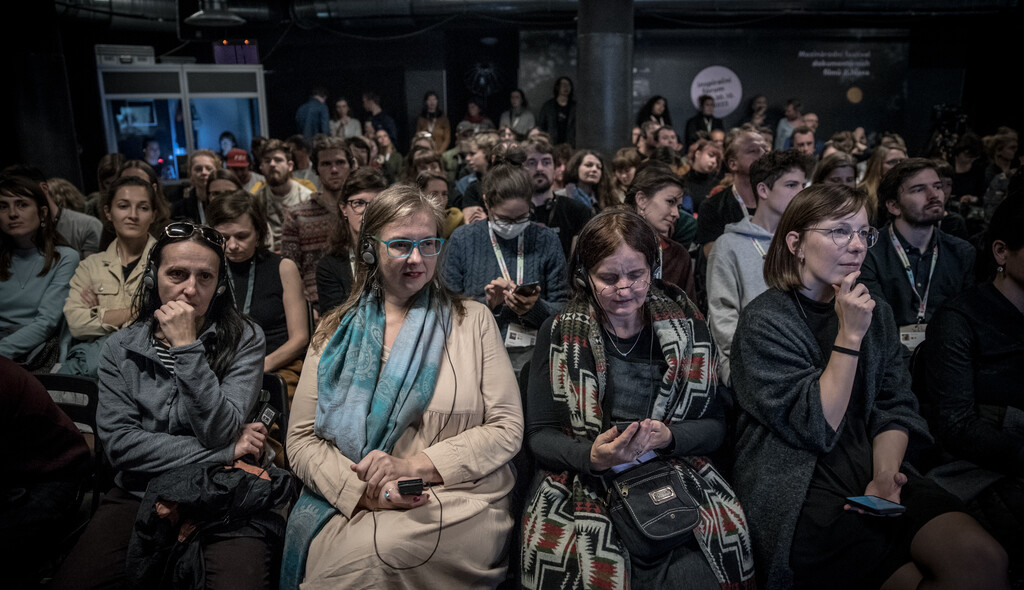
© Anna Šolcová for Ji.hlava IDFF
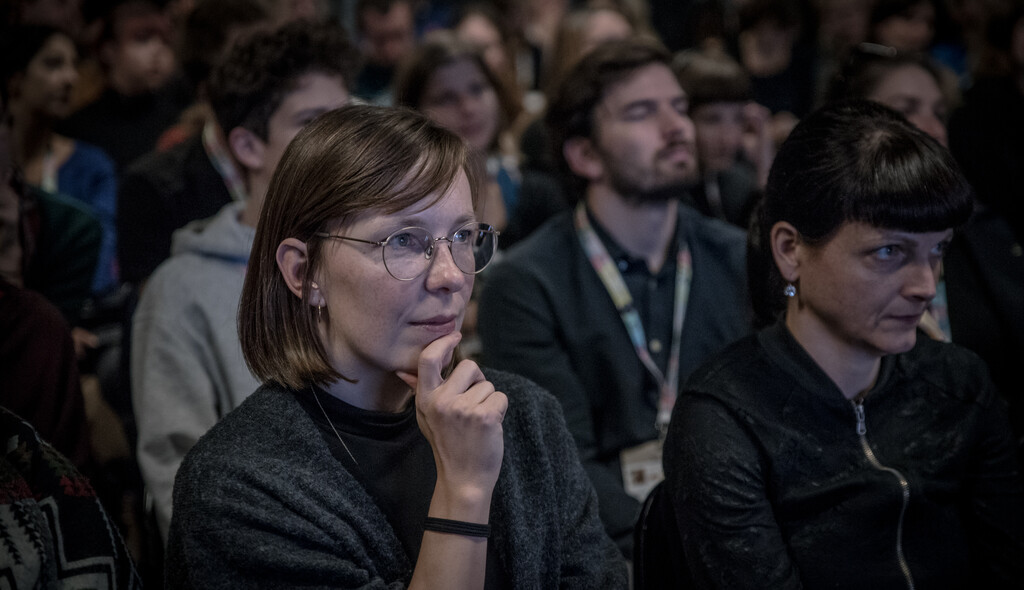
© Anna Šolcová for Ji.hlava IDFF
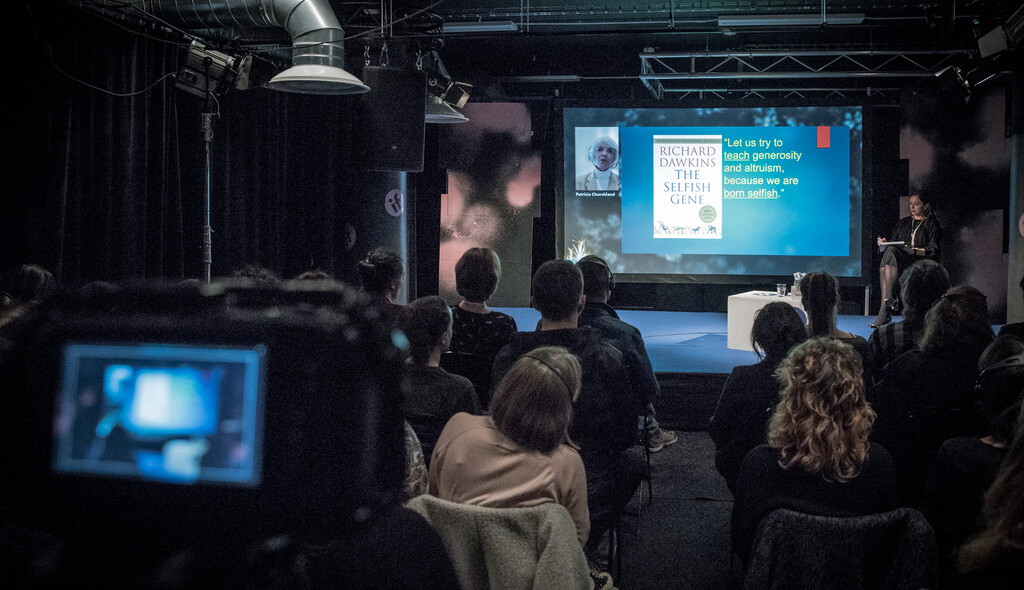
© Anna Šolcová for Ji.hlava IDFF
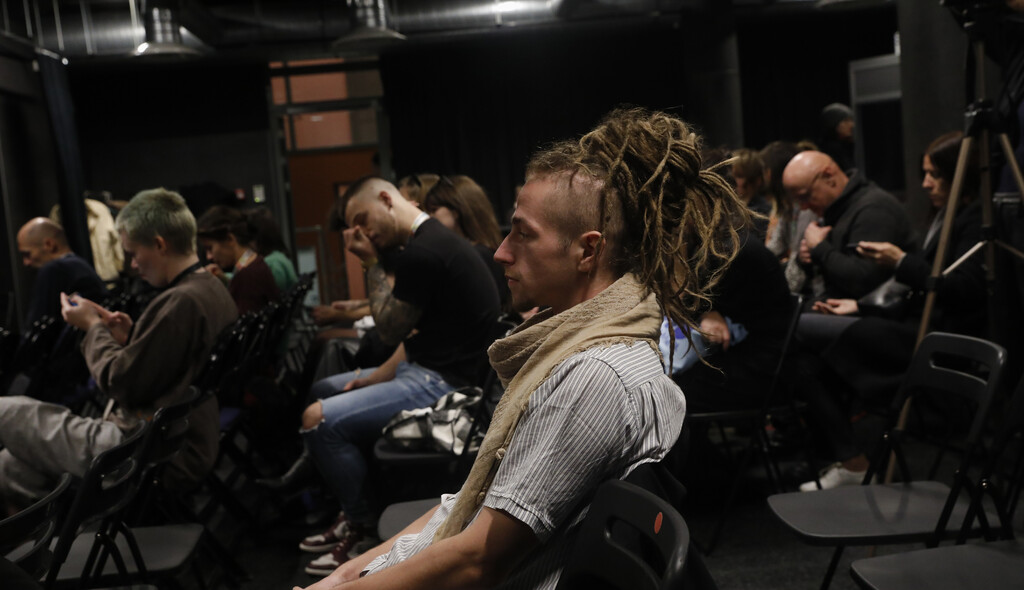
© Lenka Janíčková for Ji.hlava IDFF
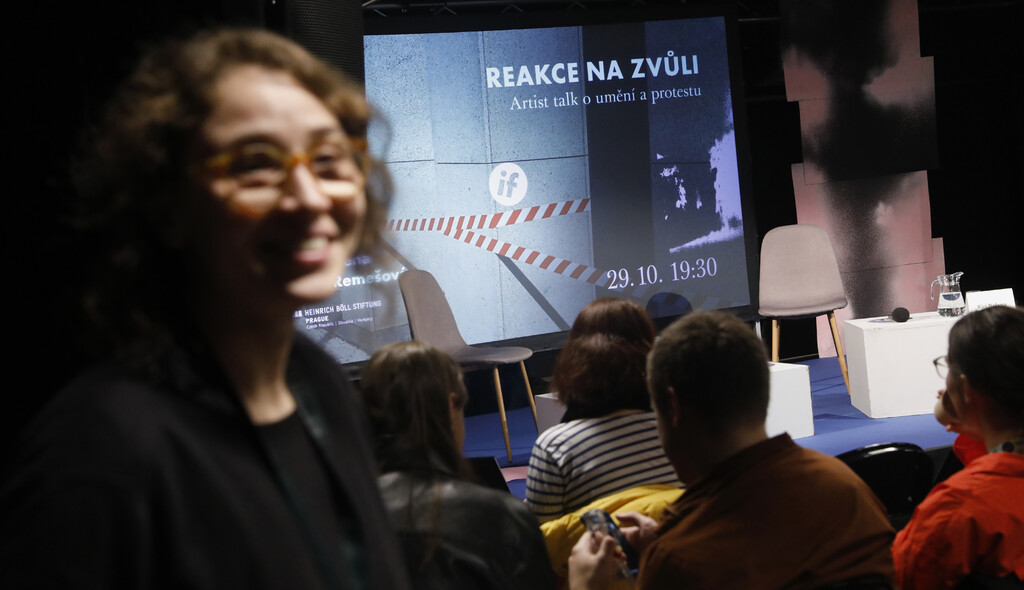
© Lenka Janíčková for Ji.hlava IDFF
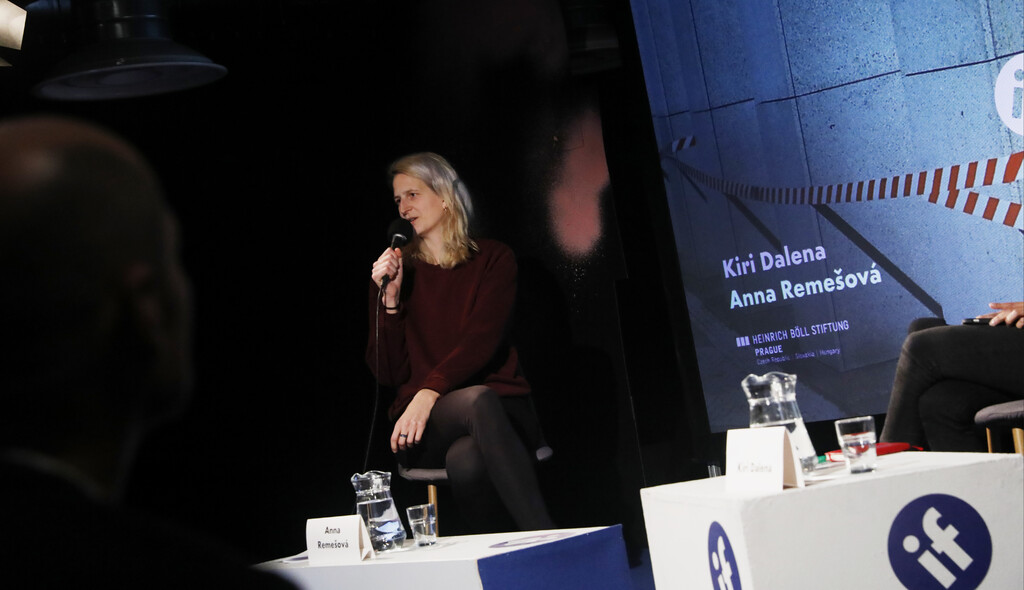
© Lenka Janíčková for Ji.hlava IDFF
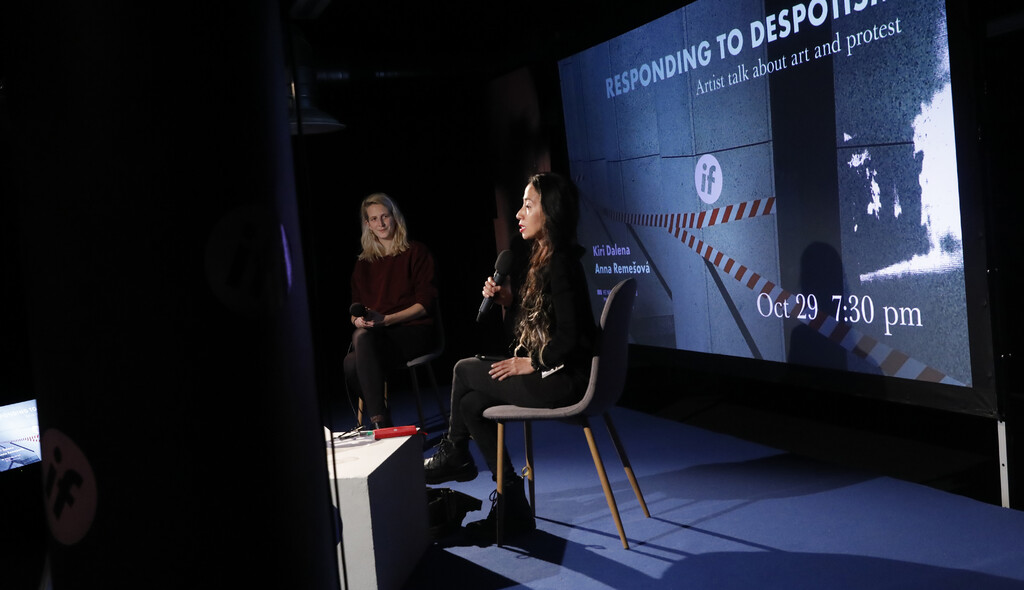
© Lenka Janíčková for Ji.hlava IDFF
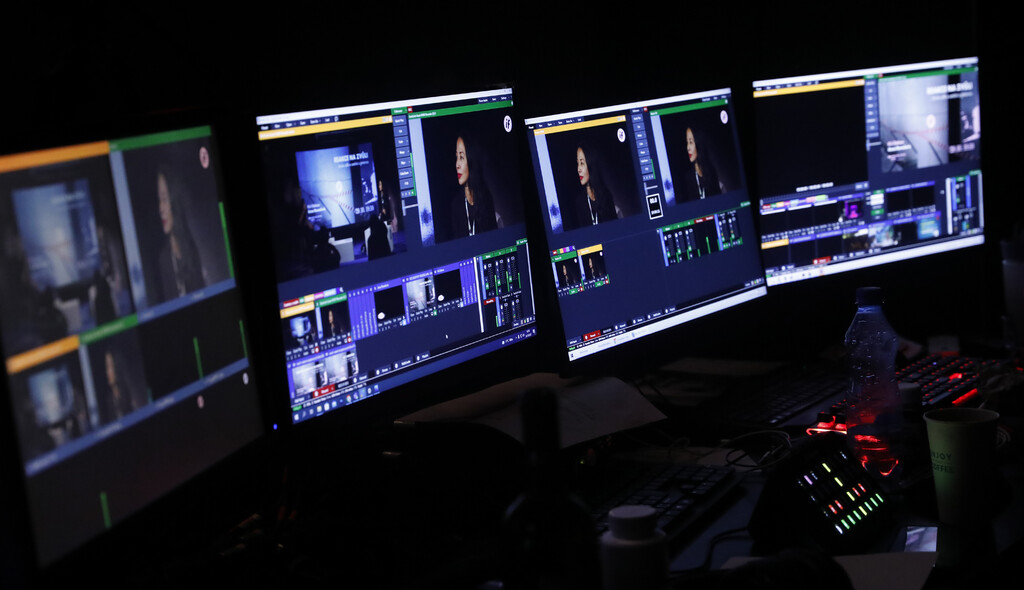
© Lenka Janíčková for Ji.hlava IDFF
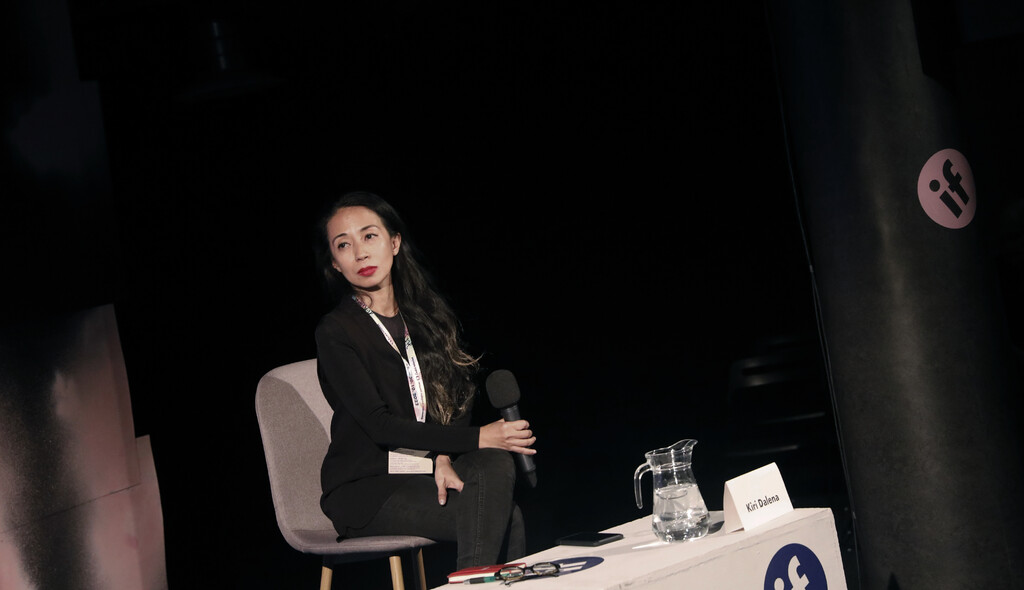
© Lenka Janíčková for Ji.hlava IDFF
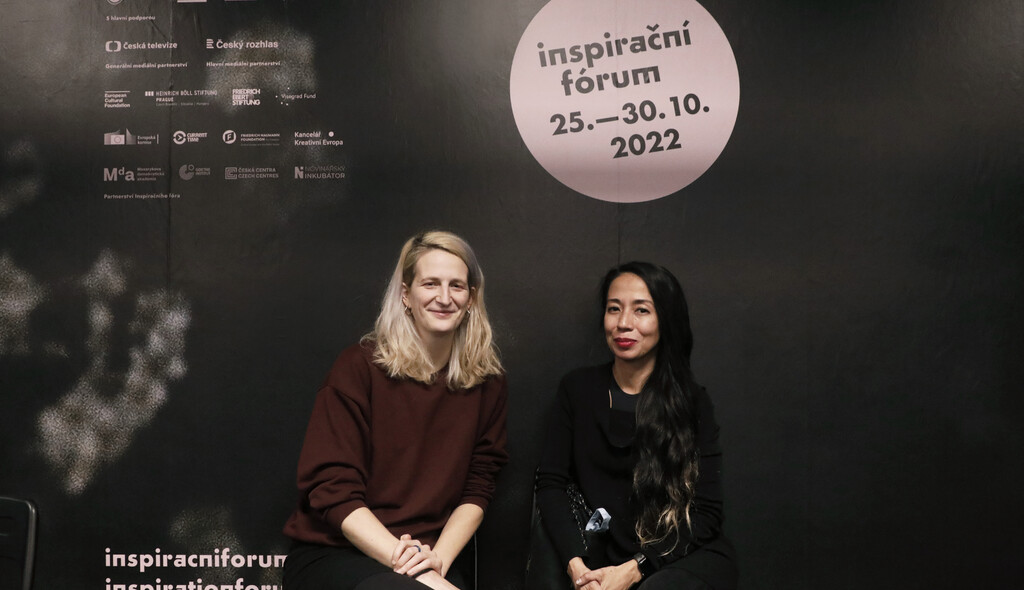
© Lenka Janíčková for Ji.hlava IDFF
On Saturday, October 29, we thought together about what it means to be truly free. Jan Drtina, a former prisoner and drug addict, shared his personal experience with two forms of unfreedom within his inner world, entitled Behind the Bars of Freedom. In a debate with journalist Filip Zajíček, lecturer Daniel Bunda, feminist columnist Eliška Koldová, climate activist Dominika Lasota, Trans*parent board member Matthias Oaks and anthropologist Sara Polak agreed that Real Freedom Has Not Yet Been Achieved. Gender studies theorist Dorottya Rédai talked about how (un)free contemporary Hungary is in her interview Fragile, Handle with Care! with journalist Linda Bartošová. We were Stripped Down to the Nerves by neurophilosopher Patricia Churchland, who opened up the question of free will in the context of new knowledge about the functioning of the human brain with journalist Silvia Lauder. Art as a Response to Despotism – visual artist and activist Kiri Dalena talked to curator Anna Remešová about her activist work dealing with political violence in the Philippines.